danceWEB Scholarship
The danceWEB programme is a 5 week further education and exchange programme taking place every year in July and August in Vienna in the frame of ImPulsTanz – Vienna International Dance Festival.
Founded in 1996, the danceWEB International Scholarship Programme has ever since been an example of an internationally co-financed programme. From its beginning it would not have been possible without the individual support of the participants by funding partners in their respective countries.
The programme offers young professional dancers and choreographers from mainly European but also non-European countries the possibility to take part in an intense multinational further training programme.
The programme focuses on the exchange of ideas and knowledge, not limited by national borders, on concentrated further training, on meeting with internationally renowned artists gathering at ImPulsTanz with the aim to orient the career of its participants and establish a network.
In order to achieve both its educational and artistic goals, the danceWEB participants are accompanied each year by artistic mentors selected amongst dance personalities, who have played a decisive part on an international level in the development of contemporary dance in recent years.
Application Information
A participation includes the following free services:
- free participation in the ImPulsTanz Research Projects (Pro Series & Field Projects)
- free participation in the ImPulsTanz workshops
- free admission to all productions of ImPulsTanz
- free accommodation in Vienna for the entire duration of the programme (5 weeks)
- artistic accompaniment by the artistic mentors
- exchange of ideas and contact with the international guests at ImPulsTanz
- lectures
- representation in the yearly growing, international danceWEB-database
- opportunity of building up international networks
The programme does not include travel, per diem, visa and insurance expenses! These expenses need to be covered by the participants themselves!
If selected for the danceWEB programme, the participants still need to find a financial contribution (EUR 2.500,-) to their total programme expenses from national/regional funding institutions in their home country/country of residence in order to secure their participations.
danceWEB Scholarship Mentors
2026 Raja Feather Kelly
2025 Raja Feather Kelly
2024 Isabel Lewis
2023 Clara Furey in dialogue with Lara Kramer and Caroline Monnet
2022 Wim Vandekeybus & Nicola Schössle
2020 Anne Juren & Frédéric Gies
2021 Anne Juren & Frédéric Gies
2019 Anne Juren & Annie Dorsen in Dialogue with Mette Ingvartsen
2018 Florentina Holzinger in Dialogue with Meg Stuart
2017 Doris Uhlich, Austria
2016 Tino Sehgal, Germany/UK
2015 Mentorship Collective Teachback!
2014 Chris Haring, Austria & David Wampach, France
2013 Ivo Dimchev, Bulgaria
2012 Benoît Lachambre, Canada & Robin Poitras, Canada
2011 Boyzie Cekwana, South Africa & Isabelle Schad, Germany
2010 Sarah Michelson (USA/UK) & Yasuko Yokoshi (USA/Japan)
2009 Philipp Gehmacher, Austria & Christine de Smedt, Belgium
2008 DD Dorvillier & Trajal Harrell, USA
2007 Jonathan Burrows & Adrian Heathfield, UK
2006 Mathilde Monnier & Loïc Touzé, France
2005 David Zambrano, The Netherlands
2004 Mark Tompkins, USA
2003 Ko Murobushi, Japan
2002 Vera Mantero, Portugal
2001 Mark Tompkins, France
2000 Emio Greco, Italy & Pieter C. Scholten, The Netherlands
1999 Emio Greco, Italy & Pieter C. Scholten, The Netherlands
1998 Jorma Uotinen, Finland
1997 Ismael Ivo, Germany & Susanne Linke, Germany
1996 Stephen Petronio, USA
danceWEB participants
2025
Murat Adash
Marlene Aigner
Nora Alami
Farage Barka
Ronald Alonso Berger
Angela Bettoni
Noémi Bezsán
Kéwè K. Bonono
Luca Büchler
Núria Carrillo Erra
Mina Clair
Felipe Faria
Irene Giró
Yours (mangoranges) Izundu
Stefan Jovanovic Kaasa
HyunJin Kim
Sofia Kistol
Ana Kljujev
Jonghyeon Lee
Baco Lepage-Acosta
Kenneth Constance Loe
Oscar M. Damianaki
Santiago Mariño
Nelson Mejia
Tejus Menon
Erika Mitsuhashi
Rey Molina Joichl
Nathaniel Moore
Clara-Marie Müller
Alen Nsambu
Maya Oliva
Alena Papina
Oksana Pawelko
Paulina Pawłowska
Michal Przybyla
Eshan Rafi
Celia Reyes
Kemelo Sehlapelo
Hamed Shafaneh Rad
Carro Sharkey
Aaron Josi Sternbauer
Elvan Tekin
Eliza Trefas
Alisson Valentina Trigos Sanabria
Saharla Vetsch
Andrea Vezga Acevedo
Kim Manuel Walz
Cassie Wang
jee chan
Justin de Luna
Sóley Ólafsdóttir
Anđela Žugić
Murat Adash

Name: Murat Adash
Program: danceweb
Year: 2025
Coach: Raja Feather Kelly
Nationality: Turkey
Country: Germany
Report:
I am not not an individual. I am not not a machine. I am not not a non-human. I am not not a part of you. I am not not made of water. I am not not a memory past. I am not not what’s yet to come. I am not not a porous threshold, a fugitive gesture, a tree branching into multiplicity. I am not not a subject, both subject of and subjected to a world that is never fully mine. I am not not an outline of myself, never closed nor open, never inside nor outside. I am not not-ness, neither this nor that. Do you know what the body does not? I do not.
In many ways, DanceWEB offered me the conditions to inhabit this paradoxical terrain: neither here nor there, but in movement, in relation, in process. I come to performance from the visual arts, with a long-standing choreographic practice but not from a conventional dance background. To enter the dance studio through DanceWEB was to enter a laboratory: a place where I could test somatic and choreographic methods, explore movement-based trainings, and work alongside other practitioners in real time.
This experience came at a pivotal moment in my practice, as I was bringing to a close my long-term series Correspondance (2019–25) and shifting toward a new body of work I call choreo-cinema. DanceWEB became a testing ground, where I could experiment with forms and processes that will carry me into this next phase. I saw it less as a programme and more as an extended field of relational research: a weaving of practices, presences, and methods that allowed me to think and move differently.
DanceWEB has marked me with its multiplicity — a crossing over of crossings, an expansion of what it means to move together. It was a ground of experimentation, a site of porous thresholds, and for me, an unforgettable laboratory for becoming otherwise.
Marlene Aigner
Name: Marlene Aigner
Program: danceweb
Year: 2025
Coach: Raja Feather Kelly
Nationality: Austria
Country: Austria
Report:
My time at Impulstanz, my five weeks at DanceWEB.
My 20 performances, 10 workshops, 2 intensives, and 1 research project.
My countless times of biking up the hill to Arsenal or crossing Mariahilferstraße, at times light-hearted, other times heavy-headed, sometimes singing together with the new friends I’ve made. Our multiple conversations about shows we hated, workshops we loved and crushes we had. The one time we went to the river right after partying at Vestibül to take a collective nap on one of those floating plastic platforms after skinny dipping at 7 am. Several meetings to work out a plan on how to address the ongoing Genocide happening in front of our eyes, on screens whenever we’re not busy dancing, and the ever-present reality that not all of us are here in the same way. That some of us, already dealing with the struggles of living the precarious lives of artists, had to take even more destabilizing measures to pay for the missing amount of 2.500 euros. All of those things have impacted me in ways that I am only now, slowly starting to comprehend.
I applied for this program with a desire for input and a need to ask questions. Questions about artistic expression, political responsibility, interpersonal relationships, questions about performativity, closeness, and transformation. A whole notebook full of notes and more than 2 months later, I look back on a summer that has shaped me both artistically and personally. DanceWEB was a process for me, a long moment of inspiration, overwhelm, and learning, a process that allowed me to find myself in all my multiplicity a little more.
For me, Vienna was different this July. Vienna was a Vienna full of pink bicycles, with dance and music on every corner, with exciting encounters, previously undiscovered bathing spots on the Danube, endless conversations about dance, and new places for cultural exchange. Although it was so rainy, Vienna seemed louder, more colorful, and more lively than usual this July. And I am incredibly grateful for this experience, which will remain a fond memory forever. Not enough time has passed yet to reap the fruits of this scholarship, but the seeds that were planted have begun to take root, and I am excited about what is to come, what has come into my life thanks to Impulstanz, thanks to DanceWEB, our mentor Raja and all my fellow DanceWEBbers with whom I hope to continue to grow – all in our own ways.
I myself, am in a very privileged position. I received a part of my funding from my university and was generously granted the rest of the sum by Impulstanz, through the city of Vienna. And I am grateful for everything that this experience has offered me, but I carry an amount of bitterness that comes with the knowledge that not everyone was able to go through the festival without the weight of the financial struggle that it caused for some. Therefore I urge you, whoever you are reading this, to also read the statement below and take those things into consideration.
Thank you!
****2025 Cohort Statement ****
As participants in DanceWEB, we encountered both the generosity and the structural challenges of the program. DanceWEB used to be known as a full scholarship programme. Today, the system requires that artists secure funding of 2,500 euros through the countries they live in, which makes it possible for us to come here. This model may have worked for a long time, but it now tends to benefit a select number of artists from wealthier, particularly Western European, countries with strong economies and a supportive attitude toward the arts. Artists from other regions, who lack such institutional structures, are often left to find their own means to arrive here. Beyond the co-funding fee itself, there are also visa, travel, and living costs to manage.
Many participants did not receive any state or private financial support to attend. In fact, 12 people paid from their own pockets a total of 21.435 euros. Some went into debt, some borrowed from friends and family, some relied on savings or crowdfunding. Others were given last-minute ultimatums to pay or lose their place. These are not isolated cases, they reflect a larger imbalance in access and opportunity.
A core strength of this festival is its international scope: it brings together artists from all over the world. This diversity is part of what defines ImPulsTanz, part of what makes it vibrant and unique. Yet, the artists who create this very diversity are often the ones who bear the greatest financial burden to be here. We do not all arrive equally.
This is not a personal grievance but a structural issue; one that disproportionately affects racialized and precarious artists. Everyone in this field is impacted by shifting funding systems and political uncertainty, but these inequalities are felt unevenly. As many cohorts before us have also observed, these concerns have been raised repeatedly over the years without sufficient structural response.
We therefore call on ImPulsTanz to publicly acknowledge these disparities and to take concrete steps toward addressing them. This includes developing a transparent and equitable funding model, creating dedicated support for artists without institutional backing, and ensuring that the program’s commitment to internationality is matched by genuine accessibility.
We urge the festival to engage directly with current and former DanceWEB participants in this process not only as beneficiaries, but as collaborators with valuable insight and lived experience. The sustainability and integrity of the program depend on it.
We are asking ImPulsTanz to adapt, respond, and act now in alignment with the values it promotes.
Nora Alami
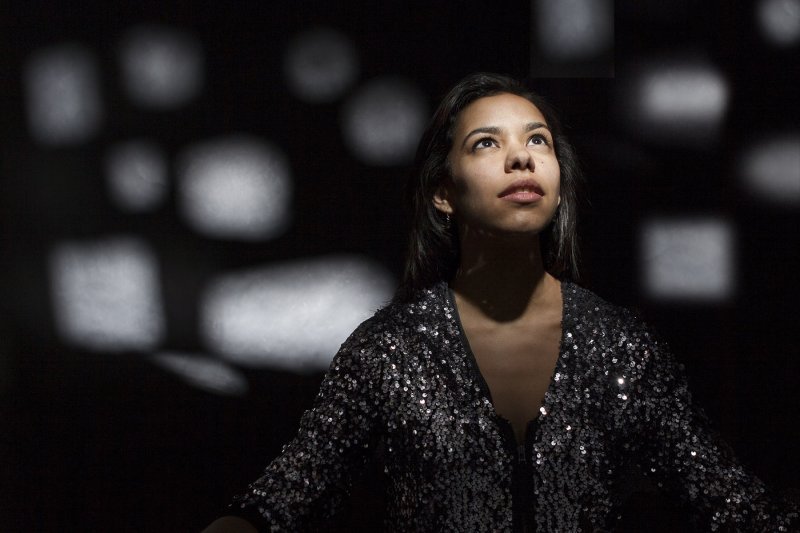
Name: Nora Alami
Program: danceweb
Year: 2025
Coach: Raja Feather Kelly
Nationality: Morocco
Country: United States
Report:
Nora Alami is a Moroccan experimental dance artist and creative producer, born and raised in Colorado. Dance is her tool for conducting research, building community, and organizing politically. Her artistic works research eros, the trappings of nostalgia, and join disparate realities through sensuality, absurdity, and materiality.
Recent awards include: Triskelion Arts Fellow (2026), danceWEB Scholar (2025), MANCC Forward Dialogues Artist (2024), CUNY Dance Initiative Artist (2023-2024), Resident Artist at Triskelion Arts (2022), and New York Live Arts Fresh Tracks Choreographic Resident Artist (2017-18). Nora’s choreographic work has been supported by residencies at JACK, BRIClab: Performing Arts, and The Petronio Center. Her choreography has been presented at Honey Pot Chicago, Nublu Classic, the UNDOXX Festival, the New York Arab Festival and LaMaMa Moves! Dance Festival, Danspace Project’s DraftWork, Triskelion Arts, Houston Metropolitan Dance Center, Center for Performance Research, New York Live Arts, and Movement Research at Judson Church. She earned a Masters in Performance Studies from Northwestern University.
Nora loves to collaborate across disciplines. Reach out to connect at thenoralami@gmail.com or @noralami on Instagram.
danceWEB Report:
It has been a long dream of mine to attend the danceWEB program. In fact, I applied three times over the last seven years. I had sort of tucked the dream away a couple of years ago, assuming that I had aged out and maybe that my artistic and political goals were not a good fit with the program. And then I saw the announcement, this time last year, that Raja Feather Kelly would be the danceWEB mentor and I knew that I had to apply one more time.
danceWEB 2025, mentored by Raja Feather Kelly, came at an ideal time for me, more than I could have ever realized. I am so fortunate to have joined the program in a time where I know my needs and desires as an artist and person, and could remain grounded and open to the voracity of connections available in the ImPulsTanz landscape. Raja as a mentor was fierce, grounded, available, and present. He was with us in every moment, choreographing the danceWEB cohort with one full of tenderness and cuntyness (read: curious understanding of nuance and transformation). Thank you, Raja, for generously sharing your research with us, for dancing with us, for your voice notes, and for your mentorship. I am so thankful to have joined the danceWEB program with Raja as mentor and with every danceWEB cohort member as friend, collaborator, and comrade. A special thank you to Stephan, who supported us as frog with humor, experience, and wise somatic tools. You have inspired me to think about the ways that we shape each other and what community means. danceWEB as portal of connection was such a powerful and unique convergence in time of incredible individuals coming together to consider deeply what it is to make art in a time of collapsing politics and what community looks like.
I now understand that I never gave up on my dream of joining danceWEB. I was waiting for the right timing both to know how to take care of myself in this festival of abundance, to be clear on my artistic goals, and to meet these people. It was a gift to be immersed in this five-week program with ImPulsTanz as the landscape. My artistic practice has been fortified and enriched by this experience and I hope to be able to return in many different forms in the future - as a student, performer, and maybe one day as a teacher or mentor.
Thank you to the danceWeb team Maira, Marianne, Sara, Chris, Karl and so many countless others for all that you do behind the scenes to support each of us and this program. As a former arts administrator, I can only imagine how challenging it is to be in these roles and thank you also for your continued commitment, reflection, and vigilance as we collectively build towards equitable arts programming in the ever-shifting arts landscape. DanceWEB is a unique and special program and I truly hope it continues.
Thank you to my teachers Angélique Wilkie, Isabel Lewis, and Jen Rosenblit among others who brought me back to dramaturgy, scores, prompts, and practices of making. I have already returned to these tools for my process and am grateful for the profound opportunity to keep learning and to study with each of you.
To each member of the 2025 danceWEB cohort - you have touched my life and practice. Thank you Murat, Marlene, Farage, Ron, Andrea, Angela, Noemi, Kewe, Luca, Nuria, Jee, Mina, Oscar, Justin, Felipe, Irene, Rey, Stefan, Raja, Hyunjin, Sofia, Ana, Jonghyeon, Baco, Kenneth, Yours, Santiago, Nelson, Tejus, Erika, Nathaniel, Clara, Alen, Solely, Maya, Alena, Oksana, Paulina, Michal, Hamed, Eshan, Celia, Kemelo, Elvan, Carro, Aaron Josi, Eliza, Alisson, Saharla, Andrea, Kim, Cassie, Andjela <3
****2025 Cohort Statement ****
As participants in DanceWEB, we encountered both the generosity and the structural challenges of the program. DanceWEB aims to be a full scholarship programme by securing funding from Austria and 2.500 euro from the host country, rather than from the artists directly. This model may have worked for a long time, but it now tends to benefit a select number of artists from wealthier, particularly Western European, countries with strong economies and a supportive attitude toward the arts. Artists from other regions, who lack such institutional structures, are often left to find their own means to arrive here. Beyond the co-funding fee itself, there are also visa, travel, and living costs to manage.
Many participants did not receive any state or private financial support to attend. This year, 12 people had to pay out of their own pockets and the total sum of that is 21.435€. While others went into debt, some borrowed from friends and family, some relied on savings or crowdfunding. Others were given last-minute ultimatums to pay or lose their place. These are not isolated cases, they reflect a larger imbalance in access and opportunity.
A core strength of this festival is its international scope: it brings together artists from all over the world. This diversity is part of what defines ImPulsTanz, part of what makes it vibrant and unique. Yet, the artists who create this very diversity are often the ones who bear the greatest financial burden to be here. We do not all arrive equally.
This is not a personal grievance but a structural issue; one that disproportionately affects racialized and precarious artists. Everyone in this field is impacted by shifting funding systems and political uncertainty, but these inequalities are felt unevenly. As many cohorts before us have also observed, these concerns have been raised repeatedly over the years without sufficient structural response.
We therefore call on ImPulsTanz to take concrete steps toward addressing these disparities. This includes developing a transparent and equitable funding model, creating dedicated support for artists without institutional backing, and ensuring that the program’s commitment to internationality is matched by genuine accessibility.
We urge the festival to engage directly with current and former DanceWEB participants in this process not only as beneficiaries, but as collaborators with valuable insight and lived experience. The sustainability and integrity of the program depend on it.
We are asking ImPulsTanz to adapt, respond, and act now in alignment with the values it promotes.
Farage Barka
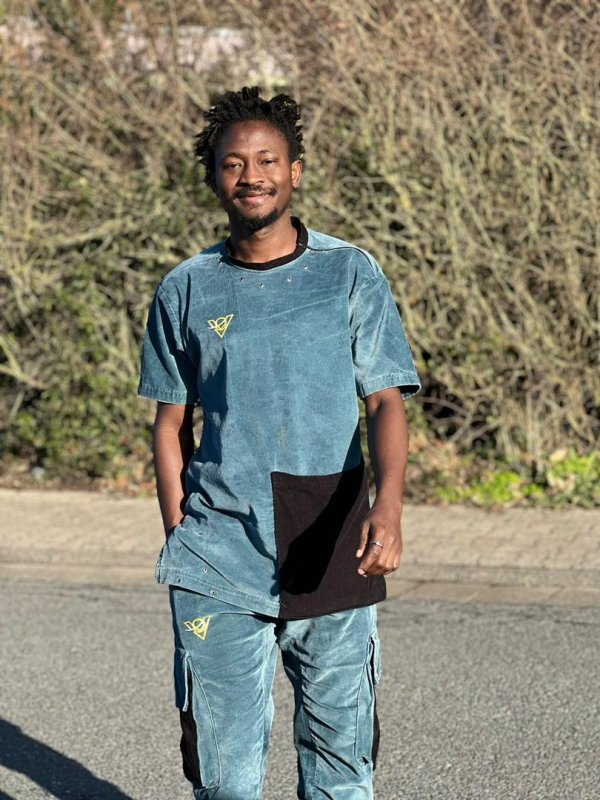
Name: Farage Barka
Program: danceweb
Year: 2025
Coach: Raja Feather Kelly
Nationality: Burkina Faso
Country: Burkina Faso
Report:
Participating in the DanceWEB program and the ImPulsTanz festival was a great honor for me and a profoundly impactful experience in my artistic career. I consider my participation in the 2025 edition a true miracle. Indeed, my journey to this program was not easy and demonstrates great perseverance and a constant commitment to my vocation as a dancer. In 2023, I had already been selected to participate in the DanceWEB program, but unfortunately, I was unable to take part due to visa and funding difficulties. In 2024, discouraged by this previous experience, I lacked the courage to apply again. However, in 2025, I decided to try again, and I was selected again. Once again, I faced the challenge of obtaining the second part of the grant from institutions in my country. Thanks to an artist residency in France, I was able to extend my visa and travel to Vienna to experience this exceptional adventure.
My stay in Vienna was excellent. I was impressed by the quality of the program's organization and the richness of the intercultural exchanges it fosters. I would like to sincerely thank the entire ImPulsTanz and DanceWEB team for this unique opportunity, which allowed me to discover a festival of exceptional scope, bringing together hundreds of artists and cultural figures from around the world. Special thanks to the exceptional mentor Raja Feather Kelly for her brilliant guidance, as well as to all the choreographers from whom I learned during these five weeks.
During this stay, I had the opportunity to participate in:
• 3 research projects
• 3 workshops
• 1 intensive workshop
• and to attend more than 35 performances.
These various activities allowed me to experience a total immersion in the world of international contemporary dance. They have greatly contributed to:
• improving my skills as a dancer-performer,
• enriching my choreographic culture,
• expanding my professional network by meeting artists from around the world,
• and enriching my vision of the world and of art.
Personal and Professional Assessment This experience at ImPulsTanz was profoundly transformative. It allowed me to become aware of the diversity of contemporary choreographic approaches, to deepen my personal artistic research, and to broaden my perspectives on the role of the dancer in society. I returned from this adventure with renewed energy, an increased open-mindedness, and a strong desire to share and pass on what I learned. The only difficulty encountered during my stay was related to my limited financial means. Not having received a local scholarship, I had to pay my residency allowance to finance my train ticket to Vienna and my meal expenses during the program.
My participation in the DanceWEB 2025 program will remain a decisive step in my artistic journey. Beyond the training I received, this experience reminded me of the power of perseverance, artistic solidarity, and dreams.
I would like to thank once again the entire ImPulsTanz team, my mentor, all the DanceWEBers and everyone who, directly or indirectly, contributed to making this dream possible.
In closing, I would like to express a concern regarding the program’s funding. It would be desirable for the organizers to consider, in the future, fully covering the DanceWEB grant, in order to offer true equality of opportunity to all dancers, regardless of their country of origin. Indeed, in many countries cultural policies remain limited and do not allow artists to benefit from sufficient institutional support. For many dancers from these backgrounds, raising the second half of the grant represents an almost insurmountable obstacle, depriving them of the opportunity to participate in this exceptional program.
A revision of this funding mechanism would greatly contribute to strengthening diversity, representation and cultural equity within the DanceWEB program, while allowing more talented artists to have this transformative experience.
2025 Cohort Statement ****
As participants in DanceWEB, we encountered both the generosity and the structural challenges of the program. DanceWEB used to be known as a full scholarship programme. Today, the system requires that artists secure funding of 2,500 euros through the countries they live in, which makes it possible for us to come here. This model may have worked for a long time, but it now tends to benefit a select number of artists from wealthier, particularly Western European, countries with strong economies and a supportive attitude toward the arts. Artists from other regions, who lack such institutional structures, are often left to find their own means to arrive here. Beyond the co-funding fee itself, there are also visa, travel, and living costs to manage.
Many participants did not receive any state or private financial support to attend. In fact, 31 people paid from their own pockets a total of 14,435 euros. Some went into debt, some borrowed from friends and family, some relied on savings or crowdfunding. Others were given last-minute ultimatums to pay or lose their place. These are not isolated cases, they reflect a larger imbalance in access and opportunity.
A core strength of this festival is its international scope: it brings together artists from all over the world. This diversity is part of what defines ImPulsTanz, part of what makes it vibrant and unique. Yet, the artists who create this very diversity are often the ones who bear the greatest financial burden to be here. We do not all arrive equally.
This is not a personal grievance but a structural issue; one that disproportionately affects racialized and precarious artists. Everyone in this field is impacted by shifting funding systems and political uncertainty, but these inequalities are felt unevenly. As many cohorts before us have also observed, these concerns have been raised repeatedly over the years without sufficient structural response.
We therefore call on ImPulsTanz to publicly acknowledge these disparities and to take concrete steps toward addressing them. This includes developing a transparent and equitable funding model, creating dedicated support for artists without institutional backing, and ensuring that the program’s commitment to internationality is matched by genuine accessibility.
We urge the festival to engage directly with current and former DanceWEB participants in this process not only as beneficiaries, but as collaborators with valuable insight and lived experience. The sustainability and integrity of the program depend on it.
We are asking ImPulsTanz to adapt, respond, and act now in alignment with the values it promotes.
Ronald Alonso Berger
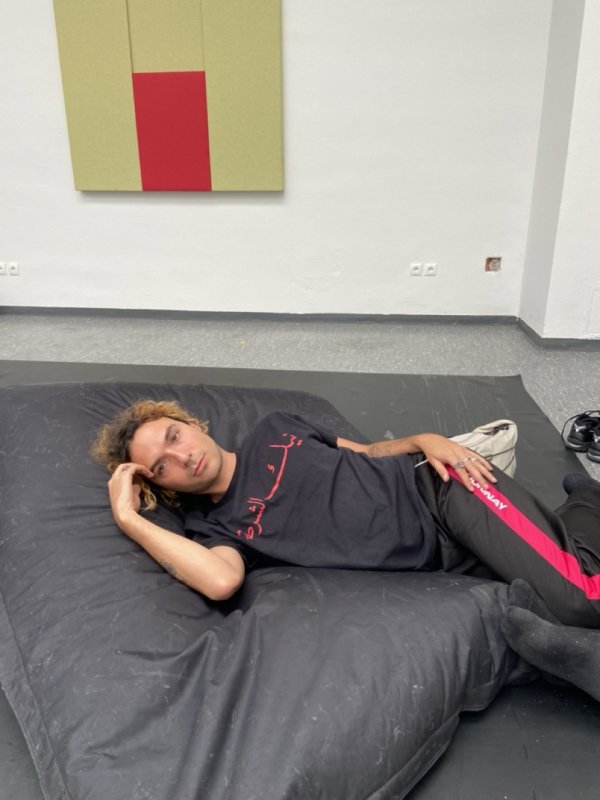
Name: Ronald Alonso Berger
Program: danceweb
Year: 2025
Coach: Raja Feather Kelly
Nationality: Costa Rica
Country: Germany
Report:
As participants in DanceWEB, we encountered both the generosity and the structural challenges of the program. DanceWEB used to be known as a full scholarship programme. Today, the system requires that artists secure funding of 2,500 euros through the countries they live in, which makes it possible for us to come here. This model may have worked for a long time, but it now tends to benefit a select number of artists from wealthier, particularly Western European, countries with strong economies and a supportive attitude toward the arts. Artists from other regions, who lack such institutional structures, are often left to find their own means to arrive here. Beyond the co-funding fee itself, there are also visa, travel, and living costs to manage.
Many participants did not receive any state or private financial support to attend. In fact, 31 people paid from their own pockets a total of 14,435 euros. Some went into debt, some borrowed from friends and family, some relied on savings or crowdfunding. Others were given last-minute ultimatums to pay or lose their place. These are not isolated cases, they reflect a larger imbalance in access and opportunity.
A core strength of this festival is its international scope: it brings together artists from all over the world. This diversity is part of what defines ImPulsTanz, part of what makes it vibrant and unique. Yet, the artists who create this very diversity are often the ones who bear the greatest financial burden to be here. We do not all arrive equally.
This is not a personal grievance but a structural issue; one that disproportionately affects racialized and precarious artists. Everyone in this field is impacted by shifting funding systems and political uncertainty, but these inequalities are felt unevenly. As many cohorts before us have also observed, these concerns have been raised repeatedly over the years without sufficient structural response.
We therefore call on ImPulsTanz to publicly acknowledge these disparities and to take concrete steps toward addressing them. This includes developing a transparent and equitable funding model, creating dedicated support for artists without institutional backing, and ensuring that the program’s commitment to internationality is matched by genuine accessibility.
We urge the festival to engage directly with current and former DanceWEB participants in this process not only as beneficiaries, but as collaborators with valuable insight and lived experience. The sustainability and integrity of the program depend on it.
We are asking ImPulsTanz to adapt, respond, and act now in alignment with the values it promotes.
Angela Bettoni

Name: Angela Bettoni
Program: danceweb
Year: 2025
Coach: Raja Feather Kelly
Nationality: Italy
Country: Malta
Report:
DANCEWEB 2025: THE SUMMER MY HEART FOUND ITS RHYTHM
ARRIVAL & TRANSFORMATION
It is now September. Over 1.5 months since I was in Vienna, since I was with the Webbers and yes, I’m still processing. DanceWEB lives in my dreams, in my body, in the way I move through the world. I feel my DanceWEB community behind me—holding space, lifting me up.
When I arrived in Vienna with my dad, red suitcase in hand, I was full of questions: Would I be included? Could I keep up? As a young artist with Down Syndrome, was there space for me and my work? I didn’t know how deeply I’d transform—as a person, an advocate, and a marginalized artist.
I entered DanceWEB with uncertainty. I left with clarity, strength, and a sense of belonging I’d never known before.
DAILY LIFE AT IMPULSTANZ
Life at the Festival was intense. Days were packed with workshops and performances; nights filled with dancing, connection, and reflection. I ran on coffee, naps in studios, Thai dinners at Arsenal, and the joy of The Lounge. Public transport was a daily puzzle, but my fellow DanceWebber Baco created a schedule to help me navigate it all. Others coordinated with me on Telegram, making sure I was never alone.
The support was constant. At parties, my group kept me close—ensuring I was safe while still free to enjoy myself. Andela messaged me: “You are really important for all of us.” That sentence stays with me.
I broke invisible barriers. I found answers. I found belonging.
WORKSHOPS & LESSONS LEARNED
Over five weeks, I became a human sponge—absorbing, growing, and transforming. The workshops empowered me, helping me discover strength, confidence, and clarity in my practice. I found answers to questions I’d carried with me: about my work, my approach, and my place in the dance world.
Each teacher challenged me to take risks, deepening my skills and expanding my technique. I grew not just as a dancer, but as a performer and advocate.
One highlight was attending the DanceAbility Teacher Training course during Week 1, led by Alito Alessi and Connie Vanadarkis. Though not part of the DanceWEB program, I was invited to join after reaching out to the organizers. The experience gave me valuable tools for inclusive practice and advocacy—lessons I’ll carry forward in both my art and my mission.
Although I found most of my workshops useful, due to lack of space I have shared below excerpts from my journal regarding a few of them.
INTENSIVE 1 / 19.+20.07. Isabel Lewis - Communal EPIC Performance Salon - Advanced .
We were asked to bring a work-in-progress and work on it during the workshop.
“I had the honour to develop and dive deeper into my work of ‘Labels’, a monologue that I wrote about the labels that I have encountered, in this weekend’s intensive with the inspiring Isabel facilitating the course of these two extraordinary days. I’m really grateful to have had the opportunity to experiment, dive deeper and found a new way of narrating my own stories.”
WEEK 2 / 21.-25.07. German Jauregui - Tools for Partnering - Advanced. The workshop focused on the study of basic concepts, concrete tools and movement dynamics, which are the basis of one of the possible approaches to partner work.
“Even though it was an advanced class I was amazed to see how much I was able to work as a total equal and how I could go deeper and deeper.” “Today’s partnering class was really fun. It is something truly exciting and thrilling to see how much I have grown, improved, taking on more risks and also becoming even stronger, controlled and being lighter in my own body.”
INTENSIVE 2 / 26.+27.07. Raja Feather Kelly - SONDER - Advanced.
“The weekend’s intensive was amazing. I loved it and I also found out that making mistakes is not the end of the world and that it can make dance even more beautiful and just sensing, feeling and giving more heart into it.”
WEEK 3 / 28.07.-01.08. Marta Coronado - Release Technique – Enjoying the Laws of Motion - Intermediate. The workshop was based on the main premises of Release Technique. The terms verticality and gravity are introduced to develop the relationship of the mover with the floor and gain awareness of total alignment.
“I was truly amazed to learn how I can be vertical (rigid) but at the same time remain relaxed, and how softer I am in my body. It’s so beautiful to witness how kinder and softer I have become.” “I am really enjoying Release Technique which is the first class of the day. I am truly, truly enjoying it. Not only have I witnessed strength and growth happening, but I am just learning so, so much more than I ever thought I would. It’s true that we barely have time for any kind of break except for a 3-minute water break, but it is just so amazing to see how much I am gaining and growing. These classes have been exactly what I have needed to become a stronger performer. One of the most important lessons that I have learnt is always being in momentum while keeping the body relaxed and that everything can only work when I am vertical.”
WEEK 4 / 04.-08.08. Martin Kilvády - Crafting Movements - Intermediate. This workshop was about describing what is happening right now, and using that description as a base for the instant composition to spontaneously create new movement patterns.
“I absolutely love starting the day with Crafting Movements, it really grounds me for the rest of the day. Today we were focusing on spiralling and spreading. I explored falling softly into the floor and how to transition back up to my feet, with the spiralling and spreading continuously flowing. It is honestly just so amazing that I now have my own movement language that is growing each day. I love feeling that growth and confidence in my own body as I take on new strides each day.”
WEEK 4 / 04.-08.08. Ori Flomin - The nature within us – Exploring the qualities of the 5 elements through movement, dance, and shiatsu - Open Level. This workshop guided participants to find connections between the dancing body and the natural flow of energy within and around us through the discovery of the five elements Earth, Water, Wood, Metal and Fire as expressed through the energy pathways that run through our bodies.
“It really helped me to become freer and more playful with my movements while being sensitive and taking care of what I need and at the same time realizing how my friendships are truly special and how they are filled with love and care, with grounding and stabilizing energy….I also feel that it is really helping me develop in my own artistic practice with a caring, sensitive approach to my own work which is deeply personal.”
SALONS & MENTORSHIP WITH RAJA FEATHER KELLY
Raja’s mentorship was a gift. In our Salons, we explored care, community, and artistic sensitivity. Raja created a space where I could voice struggles, ask questions, and find direction. His regular check-ins and one-on-one meetings helped me process everything I was experiencing. His lessons— “Be free” and “Don’t apologize for who you are”—will stay with me always.
On July 17th, the night before my 24th birthday, our Salon ran until midnight. As the clock struck twelve, everyone gathered around me and sang “Happy Birthday” in Italian. One friend lit a flame for me to blow out, and we all embraced in a warm group hug under the moonlight in the white studio. I felt deeply seen and held.
PERFORMANCES
With 125 performances and over 53,000 visitors, the Festival was overflowing with brilliance. I couldn’t see everything, but the shows I attended at venues like The Odeon and Burgtheater were unforgettable.
The performance that moved me most was Work Body by Michael Turinsky. Inspired by Pasolini’s Gramsci’s Ashes, Turinsky—who is disabled—explored the working class, masculinity, and disability justice with raw intensity. He built his own stage, handed out beer, and honoured his team by name before performing.
From my journal: “We watched Work Body with a dancer who has a physical disability. It was about disability justice and the effort it takes just to live in society. That was the best show I saw. The words truly hit home. It was the first time I cried through an entire performance.”
MY DANCEWEB COMMUNITY: TRUE INCLUSION, TRUE FRIENDSHIP, POWERFUL AND STRONG
When I think of my DanceWEB community, I don’t just think of people, I think of warmth. Of arms wrapped around me when I didn’t even know I needed holding. Of laughter that found me in silence. Of eyes that saw me, truly saw me, and never looked away.
They held space for me in ways I’ve never experienced before. When I was quiet, they listened. When I was overwhelmed, they stayed. When I stumbled, they reached out—not with pity, but with presence. A message. A voice note. A saved seat. A gentle check-in. A hug that said, “You don’t have to explain. I’m here.”
From my journal: “Here at DanceWEB, I’ve found something I’ve never felt before—a sense of safety, grounding, and home.”
This was my very first time experiencing community inclusion of this nature. Not the kind that’s spoken about, but the kind that’s lived. I wasn’t invited to the edges—I was held at the centre. My voice mattered. My needs mattered. I mattered.
We became each other’s mirrors and soft landings. We shared exhaustion, joy, awkward silences, and loud confessions. We whispered secrets in the dark and sang together in the light. We were the kind of friends who don’t ask what you need—they just show up with it.
And what we built together was a powerful and strong community. One that lifted me when I couldn’t lift myself. One that reminded me, again and again, that I belong—not just in the room, but in the story.
DanceWEB was a profound transformation. I arrived full of questions—about belonging, stamina, and inclusion—and left with answers, clarity, and strength. The workshops challenged me and deepened my practice. Raja Feather Kelly’s mentorship gave me space to reflect, heal, and grow. The performances, especially Work Body, moved me to tears and helped me see disability justice through new eyes.
But the heart of it all was my DanceWEB community. We shared meals, secrets, songs, and soul-deep care. They lifted me when I couldn’t lift myself. We built a powerful and strong community that made me feel safe, whole, and home.
This summer was unforgettable. And if I could live it all again—I would. Every single moment. Over and over, like a dream I never want to wake up from. If I could, I would return to every moment of this summer. To the tears that softened me, the laughter that lifted me, the struggles that shaped me, and the hugs that held me together. I want to feel the night air again as we whispered stories under the stars, to hear the songs that made us feel brave, and to walk back into rooms where I was fully seen. I want to experience all the intensity, the tenderness, the magic of true inclusion and true friendship. This summer changed me.
Thank you to my DanceWEB 2025 family: Kem, Andrea, Aaron, Kenneth, Yours, Tejus, Oscar, Hamed, Oskana, Clara-Marie, Jee, Nelson, Baco, Nuria, Eshan, Stefan, Irene, Alena, Kewe, Ron, Steven, Sofia, Nathanial, Soley, Erika, Jongdar, Ana, Nora, Andela, Sarharla, Maya, Farage, Justin, Celia, Mina, Elvan, Cassie, Murat, Rey, Allison, Kemelo, Paulina, Marlene, Luca, Filippe, Eliza, Carro, Michal, Hun Jin, Santiago—for giving me a home I didn’t know I was searching for. For giving me a community built on care, clarity, and love. You made me feel safe. You made me feel whole.
CONCLUDING WORDS
It was extraordinary—rare in the way only a few moments in life ever are. DanceWEB wasn’t just a summer. It was a world we built together, full of hugs that held me, tears that softened me, laughter that lifted me, and struggles we carried side by side. The power of friendship, of being truly included, of living in solidarity changed me. Every day was dreamy: mornings filled with movement, long conversations under the stars, spontaneous hugs, and laughter that echoed through the halls. What we shared was more than connection. It was presence. It was life. And I want to feel it all again—every hug, every moment of being held, every night sky conversation, every burst of joy and pain. I want to return to that rare magic, to re-experience the fullness of it—not just once, but again and again. Because something that extraordinary doesn’t fade. It stays. And I’m still carrying it. And it was crazy, too—in the best way. The intensity, the exhaustion, the emotional waves, the deep dives into art and self. We cried, we danced, we held each other through it all. Nothing was small. Everything mattered. It was wild and tender and full of life. It was magical in ways that felt unreal—like stepping into a world that shimmered with possibility.
WHAT I TAKE AWAY
As Raja wrote before we arrived: “Say goodbye to your old self—a new you will come back home in August.” I leaned in, and I transformed.
Marlene once told me, “You offered your heart to the group so generously, so fearlessly.” I did. And through that, I changed—how I see art, advocacy, and myself as a marginalized artist.
Thank you to Raja Feather Kelly, my mentor and friend, for choosing me when I chose my Curious Underdog of Nuance and Transformation.
Thank you to Sara, Marianne, Maria and the entire ImPulsTanz team for an unforgettable summer.
And last but not least, a huge thank you to Arts Council Malta and the Bank of Valletta-Joseph Calleja Foundation, which gave me the co-funding required for DanceWEB, as well as helped towards the travel costs for me and my dad, who provided me with access support.
“Alone we can do so little; together we can do so much.” — Helen Keller
Noémi Bezsán
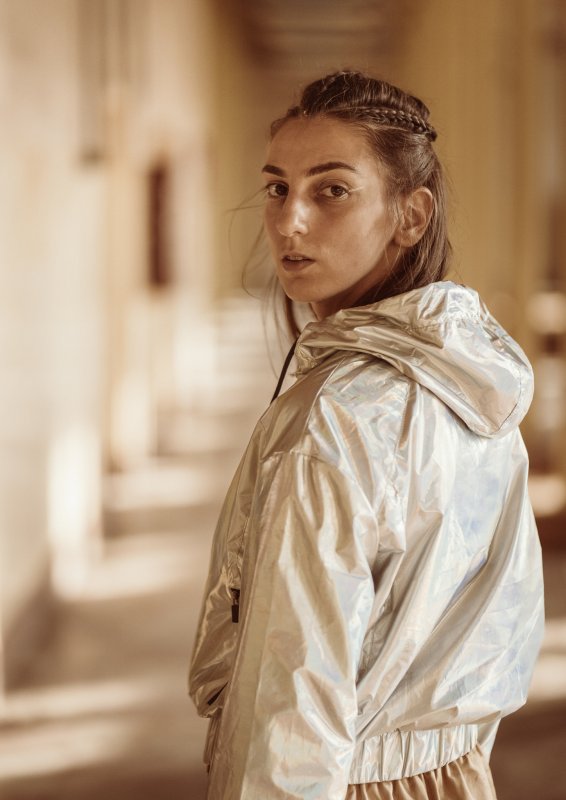
Name: Noémi Bezsán
Program: danceweb
Year: 2025
Coach: Raja Feather Kelly
Nationality: Romania
Country: Romania
Report:
DanceWEB report 2025
The danceWEB program was a platform full of challenges, encounters, experiences, and questions. Throughout this journey, the aspect of balancing accompanied me: moving between the inside and the outside, being alone and being in community, states of fullness and emptiness, energetic highs and exhaustion. It was an intense experience filled with reflection and self-reflection, and its processing is still ongoing.
The five-week program offered opportunities to encounter technical, methodological, artistic, philosophical, and aesthetic knowledge and perspectives, all of which contribute to the development of my artistic path. Through the diverse perspectives of training- or research-based workshops, I found ample opportunities for deepening, becoming aware, discovering, studying, connecting, expanding boundaries, or simply experiencing the joy inherent in dance.
While at times it was a struggle to navigate the conflict between oversaturation and the feeling of “I must not miss anything important,” I feel privileged to have been in a position—thanks to the scholarship—that allowed me to absorb such a wide spectrum of performances. The experience of seeing Pina Bausch’s "Nelken" allowed me to marvel again at the genius evident in the timelessness. As for crossing the threshold of perception, that was offered by Michael Turinsky’s “Work Body,” a performance that redefined the concept of virtuosity and, for me became the most important piece of the Festival.
Along this path full of impulses, in the alternation of turning inward and outward, I felt safe at all times—something for which I owe thanks to my fellow danceWEB participants, the teachers, our mentor Raja F. Kelly, the organizers, and everyone involved. Sometimes a familiar smiling glance was enough to provide this sense of safety. Other times it came from a bike ride, a deep conversation, a walk along the Danube, a tango evening, or a big shared silence.
Kéwè K. Bonono
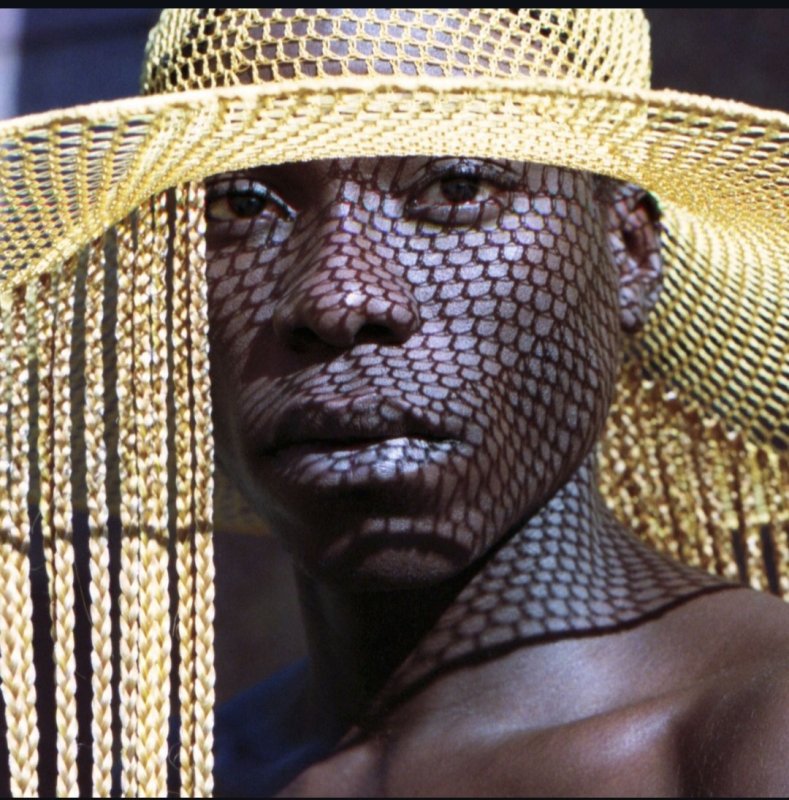
Name: Kéwè K. Bonono
Program: danceweb
Year: 2025
Coach: Raja Feather Kelly
Nationality: France
Country: Germany
Report:
As participants in DanceWEB, we encountered both the generosity and the structural challenges of the program. DanceWEB used to be known as a full scholarship programme. Today, the system requires that artists secure funding of 2,500 euros through the countries they live in, which makes it possible for us to come here. This model may have worked for a long time, but it now tends to benefit a select number of artists from wealthier, particularly Western European, countries with strong economies and a supportive attitude toward the arts. Artists from other regions, who lack such institutional structures, are often left to find their own means to arrive here. Beyond the co-funding fee itself, there are also visa, travel, and living costs to manage.
Many participants did not receive any state or private financial support to attend. In fact, 12 people paid from their own pockets a total of 21.435 euros. Some went into debt, some borrowed from friends and family, some relied on savings or crowdfunding. Others were given last-minute ultimatums to pay or lose their place. These are not isolated cases, they reflect a larger imbalance in access and opportunity.
A core strength of this festival is its international scope: it brings together artists from all over the world. This diversity is part of what defines ImPulsTanz, part of what makes it vibrant and unique. Yet, the artists who create this very diversity are often the ones who bear the greatest financial burden to be here. We do not all arrive equally.
This is not a personal grievance but a structural issue; one that disproportionately affects racialized and precarious artists. Everyone in this field is impacted by shifting funding systems and political uncertainty, but these inequalities are felt unevenly. As many cohorts before us have also observed, these concerns have been raised repeatedly over the years without sufficient structural response.
We therefore call on ImPulsTanz to publicly acknowledge these disparities and to take concrete steps toward addressing them. This includes developing a transparent and equitable funding model, creating dedicated support for artists without institutional backing, and ensuring that the program’s commitment to internationality is matched by genuine accessibility.
We urge the festival to engage directly with current and former DanceWEB participants in this process not only as beneficiaries, but as collaborators with valuable insight and lived experience. The sustainability and integrity of the program depend on it.
We are asking ImPulsTanz to adapt, respond, and act now in alignment with the values it promotes.
Luca Büchler
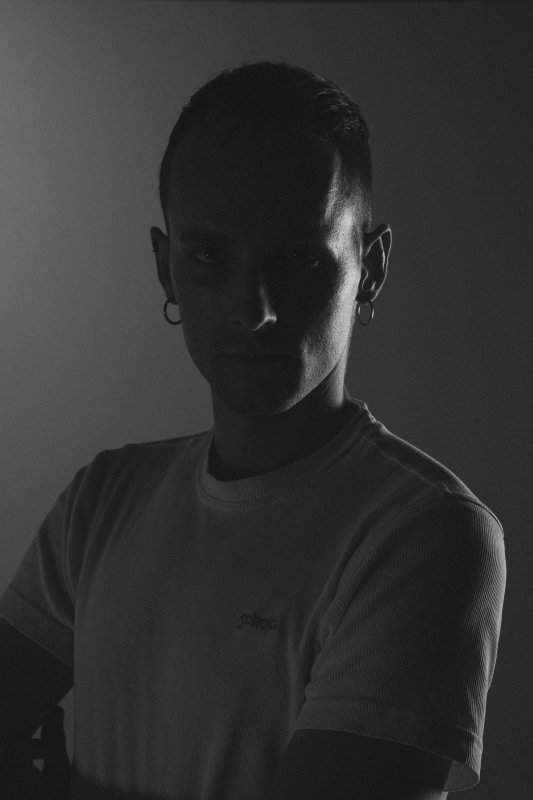
Name: Luca Büchler
Program: danceweb
Year: 2025
Coach: Raja Feather Kelly
Nationality: Switzerland
Country: Switzerland
Report:
Two months ago, I got spit out of a five-week program that felt like a lifetime and, at the same time, was passing so quickly I could feel time run through my hands. Already knowing a little of what to expect from friends who did DanceWEB in previous years, I was still not prepared for what was about to happen during this so-called scholarship.
Those weeks in Vienna felt like a dense constellation of experiences — workshops, performances, late-night conversations, overstimulation, exhaustion, discovery, connection. One moment I was dancing in a class, the next running to a show, the next at a lake, in a dorm kitchen, or sitting somewhere between laughter and collapse. There was barely space to process; everything was happening all at once, spilling over, vibrating.
And yet, within that chaos, something meaningful kept taking shape.
The intensity of being constantly surrounded by other artists — thinking, sweating, doubting, caring — opened up new layers in how I relate to my body, my practice, and my peers. It reminded me that dance is as much about relation as it is about movement: about how we share space, time, fatigue, and joy.
Some workshops stayed with me deeply, others less so, but all of them contributed to a sense of expansion. Seeing so many performances, sometimes two a night, offered both inspiration and confusion — a saturation that demanded reflection. Some pieces echoed for days; others made me restless, questioning what kind of work I want to make, and for whom.
The community around DanceWEB — our amazing mentor Raja Feder Kelly, the group, the friendships that formed through collective exhaustion and care — became one of the strongest parts of the experience. We held each other in moments of doubt, danced together through sleepless nights, and tried to make sense of what we were part of. There was laughter, tenderness, conflict, and solidarity. It felt like being inside a moving organism, alive and porous - containing multitude.
Looking back now, I realize how the program simultaneously nourished and challenged me. It brought clarity to my artistic intentions while also confronting me with the practical and emotional precarity that underlies being an artist today. The five weeks were not only about dance — they were about endurance, privilege, belonging, and desire.
And it’s precisely from that tension that I want to continue: to reflect on the structures that allow some of us to be here more easily than others, and what it means to sustain an “international” community under unequal conditions.
Solidarity Statement
As participants in DanceWEB, we encountered both the generosity and the structural challenges of the program. DanceWEB used to be known as a full scholarship programme. Today, the system requires that artists secure funding of 2,500 euros through the countries they live in, which makes it possible for us to come here. This model may have worked for a long time, but it now tends to benefit a select number of artists from wealthier, particularly Western European, countries with strong economies and a supportive attitude toward the arts. Artists from other regions, who lack such institutional structures, are often left to find their own means to arrive here. Beyond the co-funding fee itself, there are also visa, travel, and living costs to manage.
Many participants did not receive any state or private financial support to attend. In fact, 12 people paid from their own pockets a total of 21.435 euros. Some went into debt, some borrowed from friends and family, some relied on savings or crowdfunding. Others were given last-minute ultimatums to pay or lose their place. These are not isolated cases, they reflect a larger imbalance in access and opportunity.
A core strength of this festival is its international scope: it brings together artists from all over the world. This diversity is part of what defines ImPulsTanz, part of what makes it vibrant and unique. Yet, the artists who create this very diversity are often the ones who bear the greatest financial burden to be here. We do not all arrive equally.
This is not a personal grievance but a structural issue; one that disproportionately affects racialized and precarious artists. Everyone in this field is impacted by shifting funding systems and political uncertainty, but these inequalities are felt unevenly. As many cohorts before us have also observed, these concerns have been raised repeatedly over the years without sufficient structural response.
We therefore call on ImPulsTanz to publicly acknowledge these disparities and to take concrete steps toward addressing them. This includes developing a transparent and equitable funding model, creating dedicated support for artists without institutional backing, and ensuring that the program’s commitment to internationality is matched by genuine accessibility.
We urge the festival to engage directly with current and former DanceWEB participants in this process not only as beneficiaries, but as collaborators with valuable insight and lived experience. The sustainability and integrity of the program depend on it.
We are asking ImPulsTanz to adapt, respond, and act now in alignment with the values it promotes.
Núria Carrillo Erra
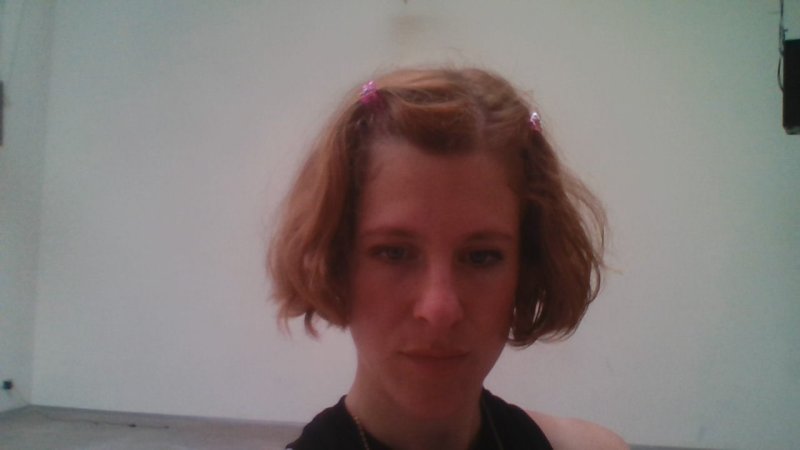
Name: Núria Carrillo Erra
Program: danceweb
Year: 2025
Coach: Raja Feather Kelly
Nationality: Spain
Country: Germany
Report:
DanceWEB is understood as a crossroads, a meeting place, a space for connection and exchange. Encounters on a social level, of ideas, of aesthetics, of politics. Ways of doing, of getting involved, of understanding and understanding oneself. DanceWEB is movement to inhabit—not only during the 5 weeks of its duration, but also in the weeks and months that follow.
DanceWEB, not without controversy, was for me a place where four main axes converged: connection / focus / care / difficulties. During the course of the 5 weeks, there were endless opportunities to connect. The connections I made navigated between what interests me and why some things don’t, between certain aesthetics and certain politics, between people I felt affinity with and the way I understand humour and imagination, between the places I put myself in and the position I occupy there, between the character and honesty, between what is learned and what is applied. These five weeks were a constant exercise in relating and in relating to myself, in seeing myself.
They were also weeks of losing focus and finding it again. “What strategy do you follow to navigate them?” Raja asked us at the beginning. The body is suddenly in the middle of a tide, facing new waves coming from all directions. The need to have a container, a line of work, a pair of glasses through which to see can be understood as a strategy—whether artistic or purely for survival. In this whole tide of bodies, references, inspirations, ideas, exchanges, places, narratives, dances, trajectories, new routines, lies, for me, the key to everything: movement. And with it, generosity, multiplicity, and learning.
Care was a key aspect that no one took for granted and that we learned to activate within a group of 53 people. From here, I want to thank our mentor Raja for giving care an important place and for opening conversations around it. I believe that caring for those around us is essential when it comes to building and maintaining our communities, especially in our contexts of rampant individualism. To see the other person, to give them time and attention. Far from being a simple task, it is a complex exercise of encounter, listening, and constant learning—one we must keep insisting on.
Despite all the positive aspects that danceWEB offered us, many of us also experienced a more bitter side of the story due to the financial difficulties that being there entailed. Securing the remaining part of the scholarship was a difficult task for many, and impossible for some. Those inequalities ran through the entire festival, adding another layer of difficulty to the program’s intensity.
Lastly, I want to thank the incredible teachers such as Isabel Lewis, Marko Milić, Edie Nightcrawler, Jen Rosenblit/Lukas Kötz, Ivo Dimchev, Dulce Villano/Michelle Stripes, and many others for their insights; the entire DanceWEB team; and all the artists who made the Impulstanz 2025 lineup possible. Special thanks to our mentor Raja Feather Kelly and to the whole group of sensitive, critical, generous, and great movers who made up this generation of dancewebbers 2025. I feel deeply grateful for the opportunity to be part of such a diverse and vibrant temporary research and artistic community.
*Solidarity Statement*
As participants in DanceWEB, we encountered both the generosity and the structural challenges of the program. DanceWEB used to be known as a full scholarship programme. Today, the system requires that artists secure funding of 2,500 euros through the countries they live in, which makes it possible for us to come here. This model may have worked for a long time, but it now tends to benefit a select number of artists from wealthier, particularly Western European, countries with strong economies and a supportive attitude toward the arts. Artists from other regions, who lack such institutional structures, are often left to find their own means to arrive here. Beyond the co-funding fee itself, there are also visa, travel, and living costs to manage.
Many participants did not receive any state or private financial support to attend. In fact, 12 out of the 32 people who responded paid a total of €21,435 out of their own pockets. Some went into debt, some borrowed from friends and family, some relied on savings or crowdfunding. Others were given last-minute ultimatums to pay or lose their place. These are not isolated cases; they reflect a larger imbalance in access and opportunity.
A core strength of this festival is its international scope: it brings together artists from all over the world. This diversity is part of what defines ImPulsTanz, part of what makes it vibrant and unique. Yet, the artists who create this very diversity are often the ones who bear the greatest financial burden to be here. We do not all arrive equally.
This is not a personal grievance but a structural issue; one that disproportionately affects racialized and precarious artists. Everyone in this field is impacted by shifting funding systems and political uncertainty, but these inequalities are felt unevenly. As many cohorts before us have also observed, these concerns have been raised repeatedly over the years without sufficient structural response.
We therefore call on ImPulsTanz to publicly acknowledge these disparities and to take concrete steps toward addressing them. This includes developing a transparent and equitable funding model, creating dedicated support for artists without institutional backing, and ensuring that the program’s commitment to internationality is matched by genuine accessibility.
We urge the festival to engage directly with current and former DanceWEB participants in this process not only as beneficiaries, but as collaborators with valuable insight and lived experience. The sustainability and integrity of the program depend on it.
We are asking ImPulsTanz to adapt, respond, and act now in alignment with the values it promotes.
Mina Clair

Name: Mina Clair
Program: danceweb
Year: 2025
Coach: Raja Feather Kelly
Nationality: France
Country: France
Report:
As participants in DanceWEB, we encountered both the generosity and the structural challenges of the program. DanceWEB used to be known as a full scholarship programme. Today, the system requires that artists secure funding of 2,500 euros through the countries they live in, which makes it possible for us to come here. This model may have worked for a long time, but it now tends to benefit a select number of artists from wealthier, particularly Western European, countries with strong economies and a supportive attitude toward the arts. Artists from other regions, who lack such institutional structures, are often left to find their own means to arrive here. Beyond the co-funding fee itself, there are also visa, travel, and living costs to manage.
Many participants did not receive any state or private financial support to attend. In fact, 12 people paid from their own pockets a total of 21.435 euros. Some went into debt, some borrowed from friends and family, some relied on savings or crowdfunding. Others were given last-minute ultimatums to pay or lose their place. These are not isolated cases, they reflect a larger imbalance in access and opportunity.
A core strength of this festival is its international scope: it brings together artists from all over the world. This diversity is part of what defines ImPulsTanz, part of what makes it vibrant and unique. Yet, the artists who create this very diversity are often the ones who bear the greatest financial burden to be here. We do not all arrive equally.
This is not a personal grievance but a structural issue; one that disproportionately affects racialized and precarious artists. Everyone in this field is impacted by shifting funding systems and political uncertainty, but these inequalities are felt unevenly. As many cohorts before us have also observed, these concerns have been raised repeatedly over the years without sufficient structural response.
We therefore call on ImPulsTanz to publicly acknowledge these disparities and to take concrete steps toward addressing them. This includes developing a transparent and equitable funding model, creating dedicated support for artists without institutional backing, and ensuring that the program’s commitment to internationality is matched by genuine accessibility.
We urge the festival to engage directly with current and former DanceWEB participants in this process not only as beneficiaries, but as collaborators with valuable insight and lived experience. The sustainability and integrity of the program depend on it.
We are asking ImPulsTanz to adapt, respond, and act now in alignment with the values it promotes.
Felipe Faria
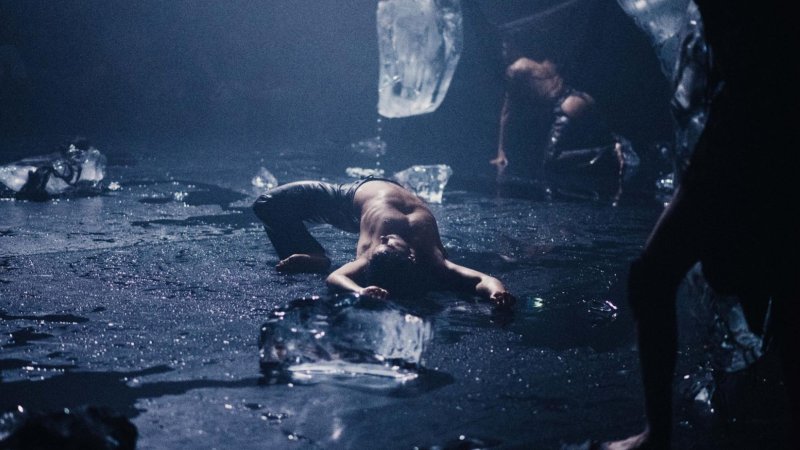
Name: Felipe Faria
Program: danceweb
Year: 2025
Coach: Raja Feather Kelly
Nationality: Brazil
Country: Germany
Report:
1
lançar-se
dentro verdade/ficção dentro
oceano profundo - nado sem fim
jogo perigoso
dança do que está por vir
1
****2025 Cohort Statement ****
As participants in DanceWEB, we encountered both the generosity and the structural challenges of the program. DanceWEB used to be known as a full scholarship programme. Today, the system requires that artists secure funding of 2,500 euros through the countries they live in, which makes it possible for us to come here. This model may have worked for a long time, but it now tends to benefit a select number of artists from wealthier, particularly Western European, countries with strong economies and a supportive attitude toward the arts. Artists from other regions, who lack such institutional structures, are often left to find their own means to arrive here. Beyond the co-funding fee itself, there are also visa, travel, and living costs to manage.
Many participants did not receive any state or private financial support to attend. In fact, 12 people paid from their own pockets a total of 21,435 euros. Some went into debt, some borrowed from friends and family, some relied on savings or crowdfunding. Others were given last-minute ultimatums to pay or lose their place. These are not isolated cases, they reflect a larger imbalance in access and opportunity.
A core strength of this festival is its international scope: it brings together artists from all over the world. This diversity is part of what defines ImPulsTanz, part of what makes it vibrant and unique. Yet, the artists who create this very diversity are often the ones who bear the greatest financial burden to be here. We do not all arrive equally.
This is not a personal grievance but a structural issue; one that disproportionately affects racialized and precarious artists. Everyone in this field is impacted by shifting funding systems and political uncertainty, but these inequalities are felt unevenly. As many cohorts before us have also observed, these concerns have been raised repeatedly over the years without sufficient structural response.
We therefore call on ImPulsTanz to publicly acknowledge these disparities and to take concrete steps toward addressing them. This includes developing a transparent and equitable funding model, creating dedicated support for artists without institutional backing, and ensuring that the program’s commitment to internationality is matched by genuine accessibility.
We urge the festival to engage directly with current and former DanceWEB participants in this process not only as beneficiaries, but as collaborators with valuable insight and lived experience. The sustainability and integrity of the program depend on it.
We are asking ImPulsTanz to adapt, respond, and act now in alignment with the values it promotes.
Irene Giró
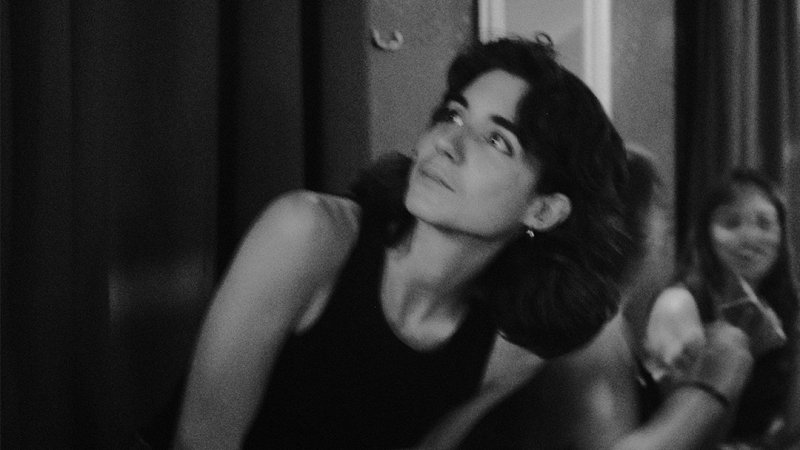
Name: Irene Giró
Program: danceweb
Year: 2025
Coach: Raja Feather Kelly
Nationality: Spain
Country: Germany
Report:
danceWEB is a complex place-happening: layers of encounters, frictions, expertises, questionings, soakings, learnings and adjustments at once. It was a continuous exercise in managing expectations, energies, and in tuning to both individual and collective intuition. I hold gratitude for the privilege of taking part in the programme, even if the process of gathering the co-funding sum without institutional support revealed the precarity that often underlies such opportunities for artists.
At the beginning of the experience, we were encouraged by our mentor Raja to collect questions as entry points of digestion and reflection, and to establish anchoring goals for the weeks to come. As I joined workshops, some of the questions that kept arising were: "Who is here, and who is missing?" And those of us who are here: "How do we arrive?" and "How can we (or not) continue to sustain our presence here?". With our different bodyminds, languages, heritages and financial circumstances.
danceWEB comes wrapped in a certain mythology, its sense of exceptionality amplified by word-of-mouth. Because of its long legacy, the number of participants involved, the magnitude of the institution it belongs to, a sense alternate bubble quickly emerges. It’s tempting to get swept up in a singular narrative of what this experience “should” be. Deflating this bubble meant, for me, decentering the myth and orienting myself towards the moments of mutual solidarity: small gestures of acknowledgement, shared meals, quick check-in chats and night walks-strolls to debrief about the daily workshops, the joys and the struggles. Some of my most significant memories were conversations with (old and new) peers, talking about representation (or lack thereof) and DIY-ing access within a context that too often structurally ignores disabled artists and audiences.
There is something undeniably special, vital, and unique about swarming through the buzzing studios at Arsenal, biking on the streets of Vienna to evening performances, and dedicating ourselves daily to the practice(s) of dance. I’m deeply grateful for the generosity of facilitators I shared space and time with during those weeks (Angélique Willkie, Isabel Lewis, Veza Fernandez & Oneka von Schrader in particular, among others…), from whom I learned new ways of thinking, sensing and moving. At the same time, this experience has reinforced my appreciation for the already existing network of colleagues, mentors, dear friends and encounters that sustain my day-to-day work; the slower, grounded spaces where creation, learning and exchange unfold with and over time, continuity and care.
Along with the contradictions, I left with a renewed sense of commitment to cultivating spaces of reciprocity and accessibility in my own practice, and to continuing the slow, collective labor of making dance a place where more of us can truly arrive and belong. Thank you to the fellow artists and movers in this cohort for co-navigating this multi-layered, confusing, overwhelming and nourishing experience together.
2025 Cohort Statement:
As participants in DanceWEB, we encountered both the generosity and the structural challenges of the program. DanceWEB used to be known as a full scholarship programme. Today, the system requires that artists secure funding of 2,500 euros through the countries they live in, which makes it possible for us to come here. This model may have worked for a long time, but it now tends to benefit a select number of artists from wealthier, particularly Western European, countries with strong economies and a supportive attitude toward the arts. Artists from other regions, who lack such institutional structures, are often left to find their own means to arrive here. Beyond the co-funding fee itself, there are also visa, travel, and living costs to manage.
Many participants did not receive any state or private financial support to attend. In fact, 12 people paid from their own pockets a total of 21.435 euros. Some went into debt, some borrowed from friends and family, some relied on savings or crowdfunding. Others were given last-minute ultimatums to pay or lose their place. These are not isolated cases, they reflect a larger imbalance in access and opportunity.
A core strength of this festival is its international scope: it brings together artists from all over the world. This diversity is part of what defines ImPulsTanz, part of what makes it vibrant and unique. Yet, the artists who create this very diversity are often the ones who bear the greatest financial burden to be here. We do not all arrive equally.
This is not a personal grievance but a structural issue; one that disproportionately affects racialized and precarious artists. Everyone in this field is impacted by shifting funding systems and political uncertainty, but these inequalities are felt unevenly. As many cohorts before us have also observed, these concerns have been raised repeatedly over the years without sufficient structural response.
We therefore call on ImPulsTanz to publicly acknowledge these disparities and to take concrete steps toward addressing them. This includes developing a transparent and equitable funding model, creating dedicated support for artists without institutional backing, and ensuring that the program’s commitment to internationality is matched by genuine accessibility.
We urge the festival to engage directly with current and former DanceWEB participants in this process not only as beneficiaries, but as collaborators with valuable insight and lived experience. The sustainability and integrity of the program depend on it.
We are asking ImPulsTanz to adapt, respond, and act now in alignment with the values it promotes.
Yours (mangoranges) Izundu
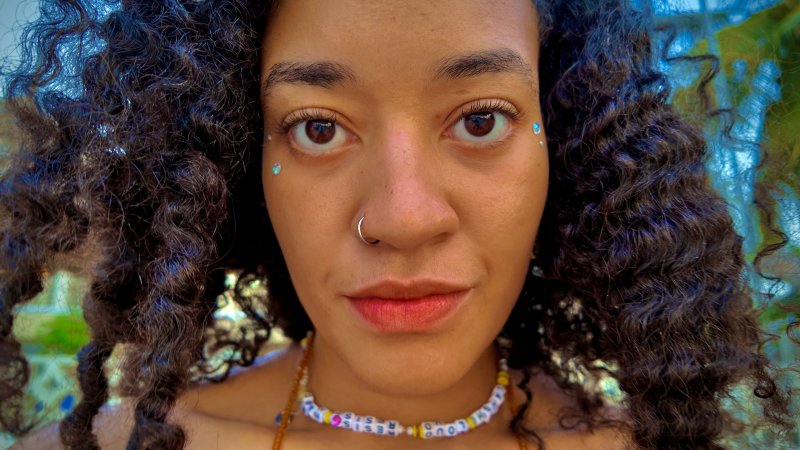
Name: Yours (mangoranges) Izundu
Program: danceweb
Year: 2025
Coach: Raja Feather Kelly
Nationality: Austria
Country: Austria
Report:
"My Life"
By applying for and accepting the DanceWEB scholarship, I gave myself permission to jump into the deep end and live my dreams.
To be honest, arriving at DanceWEB as a neurodivergent person, I was very worried about how I would manage all the demands of the scholarship. From the beginning, it was evident that I needed to create and prioritize my own schedule—one that differed greatly from most of my fellow DanceWebbers.
Because of my disabilities, minimizing overwhelm and respecting my emotional, sensory, and physical boundaries—while still pushing myself to get the most out of the vast program—were essential.
Three quarters into ImPulsTanz, I discovered how loose and autonomous the structure actually was. This freedom brought both relief and challenge. I had to be very determined not to let “imaginary“ peer pressure or the imaginary desire of wanting to fit in derail the boundaries I had set for myself. I had to become okay with not joining 90% of my peers’ leisure activities such as parties, the lounge, and excursions.
My top priorities were attending the workshops and performances I selected and making it to the end to the best of my ability. As the Alleyne sisters advised me: “Think of it as a marathon, not a sprint.” It was hard to find the balance between pushing myself out of my comfort zone to socialize and engage with people, and desperately needing more sleep and rest.
Throughout the program, I kept showing up even when it was stressful and extremely hard, because dancing is like medicine to my nervous system—it regulates me every time.
Raja’s message, stayed with me: “It is truly My Life”. In one conversation, he helped me notice that I had reached a personal milestone that I almost overlooked because of how overwhelmed I was: I had stayed committed throughout the whole program.
DanceWEB was also my experience of Sonder—“the feeling one has on realizing that every other individual one sees has a life as full and real as one’s own, in which they are the central character and others, including oneself, have secondary or insignificant roles.” This softened my fear of not fitting in.
My biggest accomplishments were:
- Showing up even when I really, really struggled to
- Resting when I was ill
- Looking after my body
- Showering, eating well, sleeping, getting up, packing my dance bag, and being fully present in class
- Challenging myself and talking to people
- Looking out for my physical and mental well-being, even though it was a massive challenge that I accomplished, even when in the moment I often felt I failed
My disabilities made it harder to keep up and show up consistently, and to meet the social demands, leisure activities, and bonding speed of the group. Nevertheless, my monotropic brain helped me succeed and meet my goals. It reinforced what I already know about being neurodivergent in any setting: I have to create my own frame—one that works for me—because the default schedule is made for neurotypicals.
It taught and showed me that in future dance projects I also have to take specific care of my needs and communicate them in advance. I cannot blindly follow the tempo and plans of others if I want to make it to the end.
Through participating, my focus shifted from “passing as neurotypical” and “functioning well to the outside“, to showing up for myself and honoring my needs. Although it was sad that I was not able to be as present with my colleagues as I would have liked, DanceWEB was my embodiment of the experience that I can trust my own word.
I am proud of myself for respecting my own boundaries by selecting the most essential workshops, performances, and encounters that now enrich and inform my artistic development.
I’m deeply grateful for this experience with special thanks to Raja, mwoyo, my DanceWEB colleagues and everyone who makes IMPULSTANZ happen. Big thank you to my fellow Viennese Dance colleagues who made it possible for me to participate by organizing, crowdfunding and communicating with Impulstanz - Impulstanz then generously granted the remaining participation sum. Without your support the scholarship would not have been accessible to me. I hope future participants can also receive financial support especially when coming from marginalized, racialized backgrounds.
Thank You!
Stefan Jovanovic Kaasa

Name: Stefan Jovanovic Kaasa
Program: danceweb
Year: 2025
Coach: Raja Feather Kelly
Nationality: Serbia
Country: United Kingdom
Report:
As the frog this year, it was both a joy and a privilege to help facilitate and hold the DanceWEB experience alongside our mentor, Raja Feather Kelly. Supporting the cohort through this journey was deeply rewarding and revealed quite a lot to me—not only about what it means to be a dancer and maker in these times of economic and humanitarian precarity, but also about the subtle and demanding art of holding space for a large group of very diverse international artists. I learned a great deal about group dynamics, responsiveness, and care—particularly how to balance facilitation with listening, and structure with spaciousness, both on a professional and personal level.
This year also marked a personal return. I first received the DanceWEB scholarship in 2016. Nearly a decade later, I came back not as someone trying to find their artistic identity, but as someone ready to reinhabit it—specifically, to reawaken my performing self after years focused on directing, teaching, and somatic therapy. DanceWEB and ImPulsTanz offered the ideal space for that encounter. Through workshops in butoh, composition, dervish spinning, rhythmic footwork, and sensuality, I accessed a part of myself that I had put in the back seat for a number of years. The movement experiences—especially with François Chaignaud, Shinichi Iova-Koga, Clara Furey and Raja himself—reminded me of the power of surrender, repetition, and embodied story.
My time here has directly impacted my upcoming solo When the Clarion Came to Call, premiering this autumn. I feel more grounded in my approach, more confident in my soloist identity, and inspired by the choreographic risk-taking I witnessed. Performances like Último Helecho (Chaignaud et al.), I Have Such an Ugly Voice (Gui B.B.), and GUSH IS GREAT (Production XX) left lasting impressions—reaffirming that the kind of intimate, mythic, and visually rich performance I’m developing has a place in contemporary choreography and physical theatre.
Equally significant were the bonds formed—among the cohort, across disciplines, and within the web of international artists that ImPulsTanz uniquely convenes. Some of these connections have already evolved into invitations for teaching and new collaborations. Others continue as meaningful artistic friendships, with plans underway to co-develop a transnational residency in 2026 spanning the UK, Croatia, Singapore, and Canada, centered around the art of hosting.
Looking back, I am struck by how much was exchanged—formally and informally, somatically and socially. DanceWEB reminded me that artistic development doesn’t only happen in the studio or on stage. It happens in the kitchens, under trees, on trams, and during late-night salons. It happens in shared silences, small gestures of care, and courageous acts of showing up.
With heartfelt gratitude,
Stefan Jovanović Kaasa
HyunJin Kim
Name: HyunJin Kim
Program: danceweb
Year: 2025
Coach: Raja Feather Kelly
Nationality: South Korea
Country: South Korea
Report:
Sofia Kistol
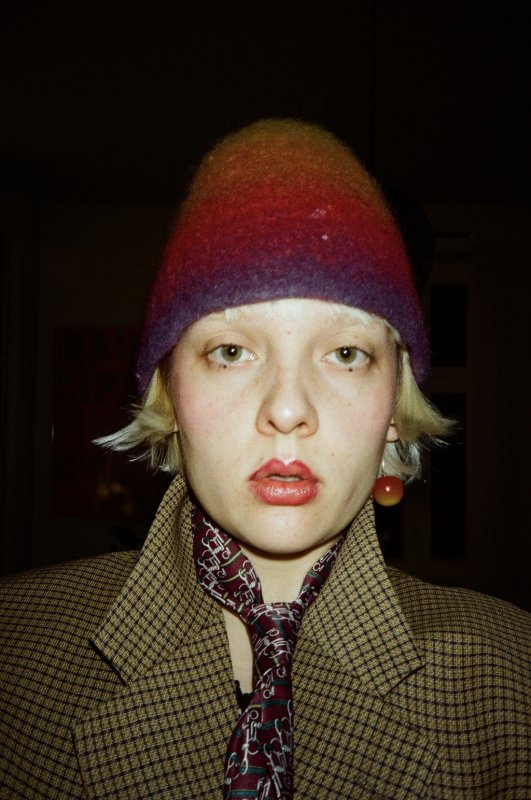
Name: Sofia Kistol
Program: danceweb
Year: 2025
Coach: Raja Feather Kelly
Nationality: Finland
Country: Finland
Report:
Being part of the danceWEB 2025 was an unexpected journey that had so many small paths and big roads that it is almost impossible to put into words. So many sensations, emotions, thoughts on this adventure I shared with other danceWEBers and Impulstanz participants. Small synchronicities of lives, for a short period of time left memories, friendships and things to go back to. Once a dream, now a past memory accompanied by the loveliest mentor, Raja Feather Kelly.
The danceWEB offered a platform that gave inspiration and thoughts in many diverse forms. Having a platform where there was a possibility to experience new things, thoughts, and movements in numerous places like in different workshops spaces, in enormous Arsenals halls, in historical buildings while watching perfromances, and in the evenings social events. All those places activated my mind and body in different ways, leading to interesting conversations that opened my mind. Also, moments between places like bike rides and after-performance hangouts in the streets had a strong impact on me.
Not only places but also the material inside the workshops left a strong impression on me. I got new tools in my toolbox from the workshops and a big curiosity to dig deeper into new ways of approaching movement. I had the possibility to enjoy so many workshops. As a circus artist I especially enjoyed the workshop Labour Zirkus Dance by Mannott and Schneider. It had such playfull approach that I will take with me. Additionally, the heartwarming workshop Provocation x Care by Keith Hennessy left an indelible imprint. Trying new things impressed me, such as karate in Martial Art and Dance by Krc and Kilvady. Emboding something unfamiliar and being open to it challenged my usual paths of moving and ways of thinking.
This unforgettable experience left me with a lot of questions to work in the future:
How to find sustainable ways to do art?
How to thrive in surrounding that overwhelm you?
How to keep up with the phase if you are exhausted?
Special thank you to the danceWEBers for the openness that made it easier to reach out and share the processes during the festival. I felt encourage to be also active member and, most importantly, to show up.
***2025 Cohort Statement***
As participants in DanceWEB, we encountered both the generosity and the structural challenges of the program. DanceWEB used to be known as a full scholarship programme. Today, the system requires that artists secure funding of 2,500 euros through the countries they live in, which makes it possible for us to come here. This model may have worked for a long time, but it now tends to benefit a select number of artists from wealthier, particularly Western European, countries with strong economies and a supportive attitude toward the arts. Artists from other regions, who lack such institutional structures, are often left to find their own means to arrive here. Beyond the co-funding fee itself, there are also visa, travel, and living costs to manage.
Many participants did not receive any state or private financial support to attend. In fact, 12 people paid from their own pockets a total of 21,435 euros. Some went into debt, some borrowed from friends and family, some relied on savings or crowdfunding. Others were given last-minute ultimatums to pay or lose their place. These are not isolated cases, they reflect a larger imbalance in access and opportunity.
A core strength of this festival is its international scope: it brings together artists from all over the world. This diversity is part of what defines ImPulsTanz, part of what makes it vibrant and unique. Yet, the artists who create this very diversity are often the ones who bear the greatest financial burden to be here. We do not all arrive equally.
This is not a personal grievance but a structural issue; one that disproportionately affects racialized and precarious artists. Everyone in this field is impacted by shifting funding systems and political uncertainty, but these inequalities are felt unevenly. As many cohorts before us have also observed, these concerns have been raised repeatedly over the years without sufficient structural response.
We therefore call on ImPulsTanz to publicly acknowledge these disparities and to take concrete steps toward addressing them. This includes developing a transparent and equitable funding model, creating dedicated support for artists without institutional backing, and ensuring that the program’s commitment to internationality is matched by genuine accessibility.
We urge the festival to engage directly with current and former DanceWEB participants in this process not only as beneficiaries, but as collaborators with valuable insight and lived experience. The sustainability and integrity of the program depend on it.
We are asking ImPulsTanz to adapt, respond, and act now in alignment with the values it promotes.
Ana Kljujev
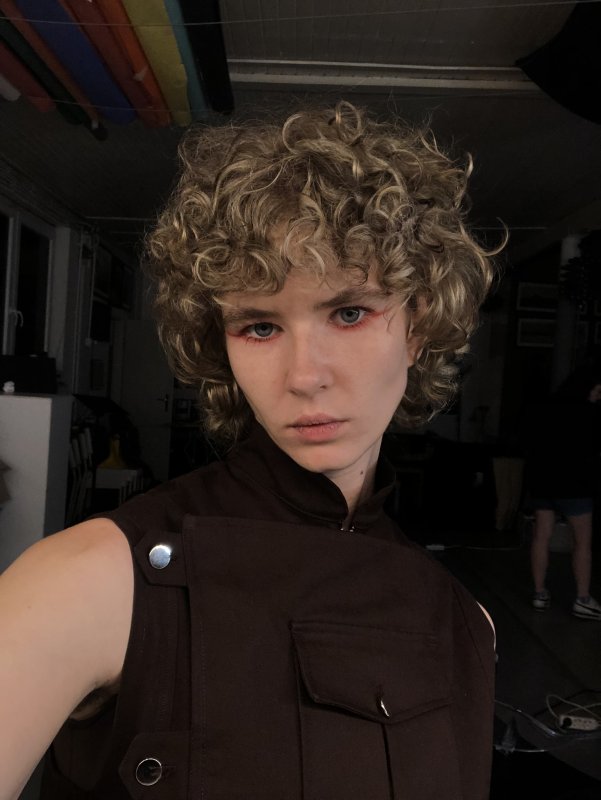
Name: Ana Kljujev
Program: danceweb
Year: 2025
Coach: Raja Feather Kelly
Nationality: Croatia
Country: Croatia
Report:
It’s hard to describe what these five weeks were.
It really felt like living another life — dense, bright, overflowing with movement, sound, people, and everything in between. Days folded into each other: workshops, performances, bike rides, late-night talks, laughter, moments of silence and moments of stillness that existed somewhere between exhaustion and bliss.
I had no time for myself, yet I didn’t miss it. Everything was shared — space, thoughts, sweat, doubts, care. We became each other’s mirrors, reflecting back curiosity, vulnerability, and a kind of courage that can only come from being fully immersed together.
Raja’s mentorship was a guiding thread throughout the experience. His humour, care, and honesty reminded us to stay open, to show up fully, to embrace discomfort as a path to growth.
The workshops and performances were like small worlds, each one awakening something new. Some were challenging, others playful, some left quiet marks that still echo.
The most precious part of DanceWEB was the people — this constellation of artists who became a temporary home. With them I felt seen, inspired, and understood in a way that transcends words. I carry the warmth of those connections, the laughter in the kitchen, the bike rides through rain, the collective pulse of a group moving through time together.
When it ended, I didn’t quite know how to return to my old rhythm. Coming back, I felt like another version of myself — fuller, softer, expanded. Something had shifted quietly but deeply. DanceWEB gave me not only experiences and inspiration, but a sense of belonging that continues to echo.
It wasn’t just a program. It was a life condensed into five weeks — one that will keep unfolding in everything I do next.
****2025 Cohort Statement ****
As participants in DanceWEB, we encountered both the generosity and the structural challenges of the program. DanceWEB used to be known as a full scholarship programme. Today, the system requires that artists secure funding of 2,500 euros through the countries they live in, which makes it possible for us to come here. This model may have worked for a long time, but it now tends to benefit a select number of artists from wealthier, particularly Western European, countries with strong economies and a supportive attitude toward the arts. Artists from other regions, who lack such institutional structures, are often left to find their own means to arrive here. Beyond the co-funding fee itself, there are also visa, travel, and living costs to manage.
Many participants did not receive any state or private financial support to attend. In fact, 12 people paid from their own pockets a total of 21,435 euros. Some went into debt, some borrowed from friends and family, some relied on savings or crowdfunding. Others were given last-minute ultimatums to pay or lose their place. These are not isolated cases, they reflect a larger imbalance in access and opportunity.
A core strength of this festival is its international scope: it brings together artists from all over the world. This diversity is part of what defines ImPulsTanz, part of what makes it vibrant and unique. Yet, the artists who create this very diversity are often the ones who bear the greatest financial burden to be here. We do not all arrive equally.
This is not a personal grievance but a structural issue; one that disproportionately affects racialized and precarious artists. Everyone in this field is impacted by shifting funding systems and political uncertainty, but these inequalities are felt unevenly. As many cohorts before us have also observed, these concerns have been raised repeatedly over the years without sufficient structural response.
We therefore call on ImPulsTanz to publicly acknowledge these disparities and to take concrete steps toward addressing them. This includes developing a transparent and equitable funding model, creating dedicated support for artists without institutional backing, and ensuring that the program’s commitment to internationality is matched by genuine accessibility.
We urge the festival to engage directly with current and former DanceWEB participants in this process not only as beneficiaries, but as collaborators with valuable insight and lived experience. The sustainability and integrity of the program depend on it.
We are asking ImPulsTanz to adapt, respond, and act now in alignment with the values it promotes.
Jonghyeon Lee
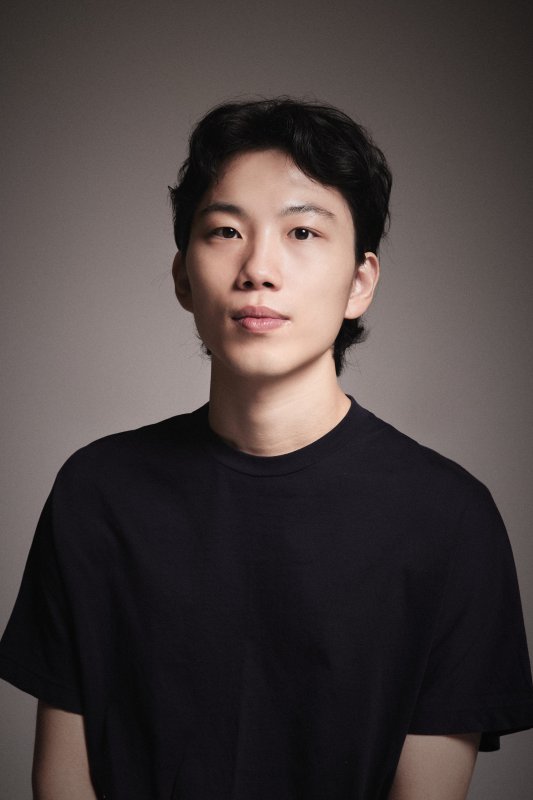
Name: Jonghyeon Lee
Program: danceweb
Year: 2025
Coach: Raja Feather Kelly
Nationality: South Korea
Country: South Korea
Report:
The danceWEB program was a great opportunity to form connections within an international dance community. It allowed me not only to meet the artists participating in the danceWEB program but also to encounter a variety of artists through classes at the Impulstanz Festival. This year, I felt that I needed learning and experience more than creation, so taking various classes provided me with a chance to expand my understanding of dance and the language of the body. Finding teachers that suited me was not always easy, but I was glad to meet several excellent educators.
What impressed me most was the accessibility for people with disabilities. It was surprising to see many people with disabilities attending dance classes at this festival. This is something rarely seen in Korea, where there are not many facilities or movement programs with good accessibility. Additionally, classes preferred by older adults were also well organized, showing a clear effort to ensure accessibility for diverse bodies.
I also gained insights into teaching by observing how each teacher conducts their classes—what words they use, how they guide students, and the directions or instructions they provide. I am particularly interested in Body-Mind Centering, Contact Improvisation, improvisation, embodied anatomy, and somatics, and I was happy to meet Daphne, a teacher who shares these interests.
My experience at danceWEB could manifest in creation, extend into teaching, or simply become a small part of daily life. It strengthened the connection between dance and life and allowed me to build relationships with artists from various countries. I am very grateful for this opportunity.
Baco Lepage-Acosta
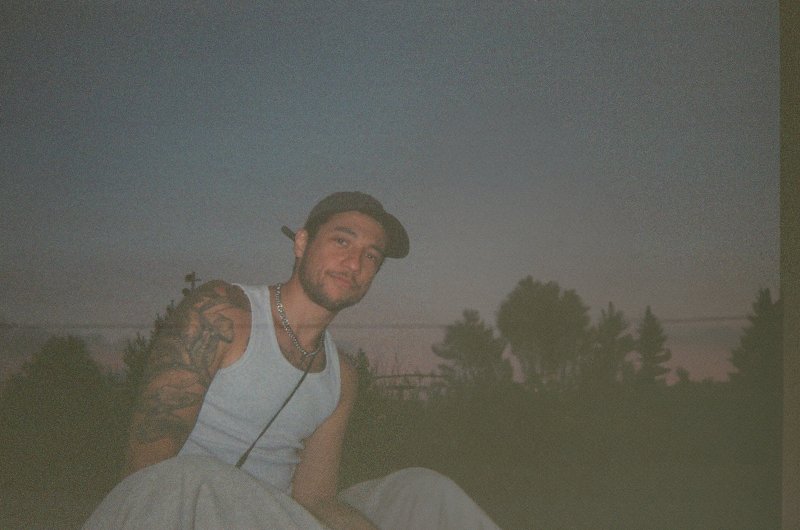
Name: Baco Lepage-Acosta
Program: danceweb
Year: 2025
Coach: Raja Feather Kelly
Nationality: Canada
Country: Canada
Report:
Dance camp, I thought I knew but I truly had no idea. A paradox that oscillates between the complex and the magical, danceWEB is many things. A whirlwind that takes you out of your world and lets you live inside a blip of a wild and chaotic dream. A nourishing place, if you let it. A place like no other and a place where you still can't escape systemic dynamics.
I loved the footwork, the grooving, the wall climbing and sliding (you really do need the proper shoes for that) , the fast and small movements, the seeing through and behind, the sound listening and making, the waving, seeing a ridiculous amount of shows, the swimming, the ice cream, the food sharing, the discovering, the thinking, the friend making.... I have done and seen so much and somehow there was still more.
The cohort 🧡... I feel blessed by the connections I made. Truly beautiful and inspiring people who's presence was key to unlocking precious memories. I'm left wondering when we will see each other again. My heart is warm when I think of them.
Raja 💚. Such a fun weirdo. Thanks for letting me come hang out. We ride at dawn, B****.
Holding deep gratitude and discomfort at once. Understanding both feelings, thank you, danceWEB, for having me.
What a strange place.
**Solidarity Statement**
As participants in DanceWEB, we encountered both the generosity and the structural challenges of the program. DanceWEB used to be known as a full scholarship programme. Today, the system requires that artists secure funding of 2,500 euros through the countries they live in, which makes it possible for us to come here. This model may have worked for a long time, but it now tends to benefit a select number of artists from wealthier, particularly Western European, countries with strong economies and a supportive attitude toward the arts. Artists from other regions, who lack such institutional structures, are often left to find their own means to arrive here. Beyond the co-funding fee itself, there are also visa, travel, and living costs to manage.
Many participants did not receive any state or private financial support to attend. In fact, 12 people paid from their own pockets a total of 21.435 euros. Some went into debt, some borrowed from friends and family, some relied on savings or crowdfunding. Others were given last-minute ultimatums to pay or lose their place. These are not isolated cases, they reflect a larger imbalance in access and opportunity.
A core strength of this festival is its international scope: it brings together artists from all over the world. This diversity is part of what defines ImPulsTanz, part of what makes it vibrant and unique. Yet, the artists who create this very diversity are often the ones who bear the greatest financial burden to be here. We do not all arrive equally.
This is not a personal grievance but a structural issue; one that disproportionately affects racialized and precarious artists. Everyone in this field is impacted by shifting funding systems and political uncertainty, but these inequalities are felt unevenly. As many cohorts before us have also observed, these concerns have been raised repeatedly over the years without sufficient structural response.
We therefore call on ImPulsTanz to publicly acknowledge these disparities and to take concrete steps toward addressing them. This includes developing a transparent and equitable funding model, creating dedicated support for artists without institutional backing, and ensuring that the program’s commitment to internationality is matched by genuine accessibility.
We urge the festival to engage directly with current and former DanceWEB participants in this process not only as beneficiaries, but as collaborators with valuable insight and lived experience. The sustainability and integrity of the program depend on it.
We are asking ImPulsTanz to adapt, respond, and act now in alignment with the values it promotes.
Kenneth Constance Loe
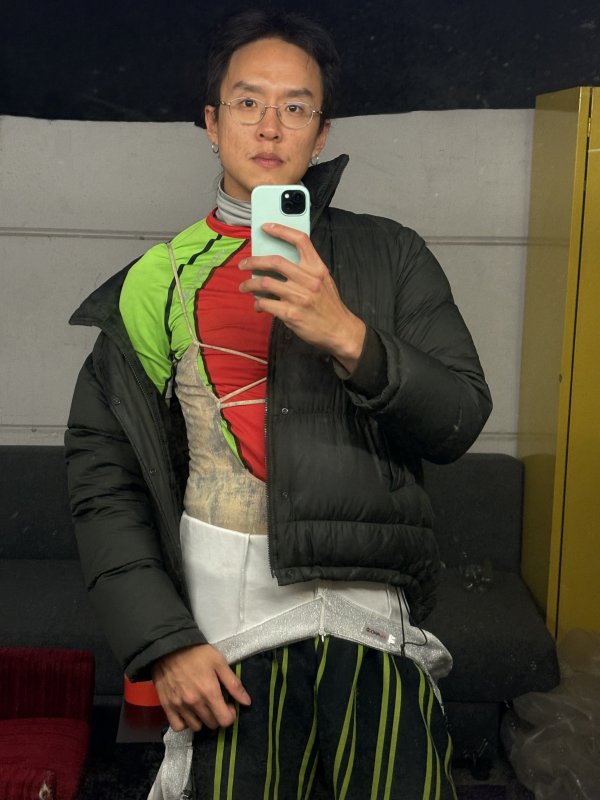
Name: Kenneth Constance Loe
Program: danceweb
Year: 2025
Coach: Raja Feather Kelly
Nationality: Singapore
Country: Austria
Report:
i.
The body feels very finite today, like a
congealed blob of bone broth augmenting
reality with its collagen-infused density.
My mother's reality is, or rather,
I often times confuse my reality with
that of my mother's, whose tears are
so opaque I cannot fathom
its depth
nor the valleys they contain.
Singularity and plurality seem to
be treacherous bedfellows, like
a black hole and its event horizon,
"Who is this spaghetti?"
ii.
Scripts that govern human behaviour,
lines from a play that I memorised
19 years ago float into space,
memory displace senses; bodies cannot
replace entropy.
How can fatigue be felt without
resorting to a cliché? Fatigue
is beyond feeling, or an inability to
feel energy. Pulse, pulse, sloth,
koala bending eucalyptus pole as
bodies seek out each other
for grounding and always
falling against a hardened earth,
bumpy knees like cephalopods
grunting for candy on the
mucky seabed without any care
in the world for the sensitivities
of social relations
iii.
Synchronicity is a red herring,
a fleeting snack in the
mouth of a killer whale; Willy nilly
calls for community in abundance, but
material realities are stripped to not
even the bare necessities can derail
the onslaught of cursed time,
specifically pockets of time
where depth is neither
numerical nor tangible,
existing as prolonged and intentional
gestures that withstand and widerstand.
Naming conventions treat the body
and community as feline.
iv.
SAFE from spiralling,
hurricane takes two,
welcome home, a bridge
is unburnt, her name is Misako,
a beaver under
troubled water is a creature
comfort bar none, barricade,
is hard to commute
against, d** i*,
7 minutes in Hell, 13
levels, why earth?
Arsenal 4, profundity, hands
touch, many close encounters, deepening.
v.
Theatrical immemorial
floating ponds, pooling
on hot tiles, days are numbered,
ouroboros, the week where
tail eats head and
everything floods the synapses.
Nothing in particular sticks out,
everything is significant,
the body is a repository
in repose. Calm your nerves,
this ride is not over yet
even though it may seem
like a forgone conclusion.
—Excerpts from texts I wrote during danceWEB in the frame of Angélique Willkie's No Neutral Canvas: a personal dramaturgy workshop, August 2025
****2025 Cohort Statement of Solidarity ****
As participants in DanceWEB, we encountered both the generosity and the structural challenges of the program. DanceWEB used to be known as a full scholarship programme. Today, the system requires that artists secure funding of 2,500 euros through the countries they live in, which makes it possible for us to come here. This model may have worked for a long time, but it now tends to benefit a select number of artists from wealthier, particularly Western European, countries with strong economies and a supportive attitude toward the arts. Artists from other regions, who lack such institutional structures, are often left to find their own means to arrive here. Beyond the co-funding fee itself, there are also visa, travel, and living costs to manage.
Many participants did not receive any state or private financial support to attend. In fact, 12 people paid from their own pockets a total of 21.435 euros. Some went into debt, some borrowed from friends and family, some relied on savings or crowdfunding. Others were given last-minute ultimatums to pay or lose their place. These are not isolated cases, they reflect a larger imbalance in access and opportunity.
A core strength of this festival is its international scope: it brings together artists from all over the world. This diversity is part of what defines ImPulsTanz, part of what makes it vibrant and unique. Yet, the artists who create this very diversity are often the ones who bear the greatest financial burden to be here. We do not all arrive equally.
This is not a personal grievance but a structural issue; one that disproportionately affects racialized and precarious artists. Everyone in this field is impacted by shifting funding systems and political uncertainty, but these inequalities are felt unevenly. As many cohorts before us have also observed, these concerns have been raised repeatedly over the years without sufficient structural response.
We therefore call on ImPulsTanz to publicly acknowledge these disparities and to take concrete steps toward addressing them. This includes developing a transparent and equitable funding model, creating dedicated support for artists without institutional backing, and ensuring that the program’s commitment to internationality is matched by genuine accessibility.
We urge the festival to engage directly with current and former DanceWEB participants in this process not only as beneficiaries, but as collaborators with valuable insight and lived experience. The sustainability and integrity of the program depend on it.
We are asking ImPulsTanz to adapt, respond, and act now in alignment with the values it promotes.
Oscar M. Damianaki

Name: Oscar M. Damianaki
Program: danceweb
Year: 2025
Coach: Raja Feather Kelly
Nationality: Greece
Country: Switzerland
Report:
i went into danceweb, this trip called danceweb,
wondering if dancing was still the right path for me.*
two days in, ImpulsTanz hasn’t officially started yet,
i find myself moved by those 50+ energies/presences and the air they create with their movement, as Raja guides us through the first day of his CUNT mentorship.
i have my answer, i know i’m doomed, i feel that i’m falling for dance again
and that this trip is only gonna make it go deeper and deeper.
i know then that i have to make a way for dancing in this world to feel right because it’s dancing towards hopeful futures and actually moving/grabbing structures by the shoulders and shaking them. because hopeful futures won’t come by hope alone.
this group taught me to trust being vulnerable within a group again.
it proved that collectivity is powerful and that we can be part of writing The Rules if we stand together. this is the strongest group in solidarity i’ve been part of in the performing arts world, and it has put my bar high for what to look for and what to work towards.
in terms of surviving the danceweb intensity, for me it proved of vital importance to have gravitated towards my anchors from the start of this journey (they know who they are, they know how bottomlessly i’ve grown to love them). they allowed me to be me-in-changing/transforming/always-transitioning and not allow any pressure to weigh me down: not professional, not emotional, not relational, not personal. i hold immense gratitude for my people, and for danceweb making the start of our meeting possible.
*i went into danceweb knowing the socio-political inequalities its structures puts in place, year after year, depending on each participant’s context privilege or lack of it to manage to get the rest of the “scholarship” that the festival and LLB do not provide. i went into danceweb knowing that this is a core issue that has been addressed by every danceweb assembly before ours. i went into danceweb knowing all that because with my group we came together before arriving in Vienna to create our own pathways of solidarity, to stand together facing institutions that hold so much power in the performing arts world that they do not acknowledge when facing ‘emerging’ artists. i am proud of my group, i am proud of our Palestine action group formed during the festival.
i left danceweb knowing that dancing or not is not the question for me. the question is how to keep creating ecologies of solidarity, of collectivity and of togetherness in a professional world that wants us separated, individualised, silenced in order to get the job, get the gig, get the coproduction, get the residency, get the “scholarship.”
speaking of all this here is important for me, as is important to thank the people that made this experience special for me: Kemelo Sehlapelo, Tejus Menon, Baco Lepage-Acosta, Jee Chan, Rey Molina Joichl, Hyunjin Kim, Kéwè K. Bonono, Paulina Pawłowska, Angela Bettoni, Justin de Luna, Clara Furey, Jassem Hindi, Raja Feather Kelly, François Chaignaud, Isabel Lewis, Olympia Bukkakis, Maria F. Scaroni, Mathilde Invernon Chan, Andreas Haglund, Carl Aquilizan, Courtney Mackedanz, and all the danceWEB and ATLAS beautiful angels and partners in crime.
thank you all for inspiring me, moving me and with me.
this is a transformative experience,
but guess what is necessary along with personal transformation: institutional change. therefore i kindly ask you to pay attention to my cohort’s solidarity statement below.
with love and rage,
oscar
****2025 Cohort Statement ****
As participants in DanceWEB, we encountered both the generosity and the structural challenges of the program. DanceWEB used to be known as a full scholarship programme. Today, the system requires that artists secure funding of 2,500 euros through the countries they live in, which makes it possible for us to come here. This model may have worked for a long time, but it now tends to benefit a select number of artists from wealthier, particularly Western European, countries with strong economies and a supportive attitude toward the arts. Artists from other regions, who lack such institutional structures, are often left to find their own means to arrive here. Beyond the co-funding fee itself, there are also visa, travel, and living costs to manage.
Many participants did not receive any state or private financial support to attend. In fact, 12 people paid from their own pockets a total of 21,435 euros. Some went into debt, some borrowed from friends and family, some relied on savings or crowdfunding. Others were given last-minute ultimatums to pay or lose their place. These are not isolated cases, they reflect a larger imbalance in access and opportunity.
A core strength of this festival is its international scope: it brings together artists from all over the world. This diversity is part of what defines ImPulsTanz, part of what makes it vibrant and unique. Yet, the artists who create this very diversity are often the ones who bear the greatest financial burden to be here. We do not all arrive equally.
This is not a personal grievance but a structural issue; one that disproportionately affects racialized and precarious artists. Everyone in this field is impacted by shifting funding systems and political uncertainty, but these inequalities are felt unevenly. As many cohorts before us have also observed, these concerns have been raised repeatedly over the years without sufficient structural response.
We therefore call on ImPulsTanz to publicly acknowledge these disparities and to take concrete steps toward addressing them. This includes developing a transparent and equitable funding model, creating dedicated support for artists without institutional backing, and ensuring that the program’s commitment to internationality is matched by genuine accessibility.
We urge the festival to engage directly with current and former DanceWEB participants in this process not only as beneficiaries, but as collaborators with valuable insight and lived experience. The sustainability and integrity of the program depend on it.
We are asking ImPulsTanz to adapt, respond, and act now in alignment with the values it promotes.
Santiago Mariño
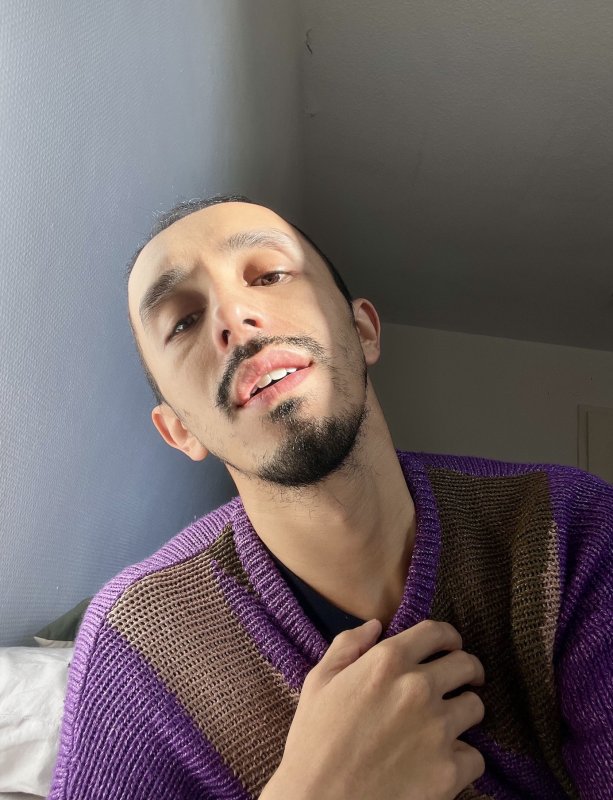
Name: Santiago Mariño
Program: danceweb
Year: 2025
Coach: Raja Feather Kelly
Nationality: Colombia
Country: Germany
Report:
Dear reader:
Here you find my personal report followed by the 2025 Cohort Statement. Scroll up and down between the two as you wish.
****Report: An Eden of five weeks****
It is perhaps not needed to note now unique the DanceWEB program is. All of us who have dreamt of belonging to it do because we recognize how privileged of an experience it is. Yet I say it again, now after having experienced it in my own body: the program is really unique. Where else would life provide for such an ecosystem, as ephemeral as it is, in which dance fellows can make their lives revolve around this celebration of dance that the festival is? Simply put—although the experience is everything but simple: meet people, go to workshops, meet people, go to performances, go to parties, meet people, rest, repeat. Dance all along. Write, think, speak, laugh, fight. One devotes exclusively to the experience of the festival, almost with no other option: it is an almost all-or-nothing type of thing.
Upon my arrival, breaking the ice with fifty strangers was, as you can guess, awkward. I felt lost, unsure and empty, almost sad. I was nevertheless convinced that I am truly lucky to be in Vienna in the face of a beautiful summer, while the world’s political climate collapses to fascist politics that jeopardize all of our lives. We fortunately had the genius, sensitive mentorship of Raja Feather Kelly, who I didn’t know before, but who easily became a channel of joy, care and love to ground us on those intense weeks of becoming acquainted with each other. Raja’s cunty eloquence facilitated to share common struggles, alignments, utopias. Thank you Raja for bringing over so many people together and mesh a rightly needed intersectionality within it in these times of hopelessness.
I name here barely a few of my workshop highlights. With Alleyne Dance we made a good match: to my honor they invited me to a residency, after sharing a vibrant, embodied, challenging workshop. I discovered Andrew Champlin’s ballet pedagogy, which felt very close to my own practice as a ballet facilitator and who held insightful conversations thereafter. To my personal movement pleasure, I also took Peter Jasko’s workshop, whose work I saw years ago back in Bogotá and who continues to be today the inspiration he became back then: crazy, skillful, ever surprising improvisations.
I watched over 40 performances. You know I did not miss the big names (and neither should you): Pina, Akram, Anne Teresa; Vantournhout, Jalet, Waltz… But I most cherished the more local, younger choreographers in the program (don’t miss those either): Melissa Guex, Michael Turinsky, Tiran Willemse, Luca Bonamore… And of course showstoppers like Amala Dianor and Tao Dance Theater, just to give you a brief. To see so many performances has inspired me to trust my own creative choreographic work, to further nourish it, to insist, and embrace that my corporeality in our shared dancescape has something to manifest. It triggers the inspiration to continue creating and experimenting with choreography and performance, both as a place of movement expression and as a political place of vindication of marginalized struggles.
Now, I am just as deeply grateful to the Tanja Liedtke Foundation for co-founding my participation in the festival, as I am in full solidarity with the fight that united us fifty-plus strangers in the demand for equality of opportunities coming to the DanceWEB and ATLAS programs: the requirement to fund 2,500 from external sources is, let’s be clear, a criteria of exclusion for many. Despite the climatic experience of the festival, an in order to honor, manifest, and reiterate that structural changes in the organization of the programs are more urgent than ever, here is the 2025 cohort statement.
****2025 Cohort Statement ****
As participants in DanceWEB, we encountered both the generosity and the structural challenges of the program. DanceWEB used to be known as a full scholarship programme. Today, the system requires that artists secure funding of 2,500 euros through the countries they live in, which makes it possible for us to come here. This model may have worked for a long time, but it now tends to benefit a select number of artists from wealthier, particularly Western European, countries with strong economies and a supportive attitude toward the arts. Artists from other regions, who lack such institutional structures, are often left to find their own means to arrive here. Beyond the co-funding fee itself, there are also visa, travel, and living costs to manage.
Many participants did not receive any state or private financial support to attend. In fact, 12 people paid from their own pockets a total of 21.435 euros. Some went into debt, some borrowed from friends and family, some relied on savings or crowdfunding. Others were given last-minute ultimatums to pay or lose their place. These are not isolated cases, they reflect a larger imbalance in access and opportunity.
A core strength of this festival is its international scope: it brings together artists from all over the world. This diversity is part of what defines ImPulsTanz, part of what makes it vibrant and unique. Yet, the artists who create this very diversity are often the ones who bear the greatest financial burden to be here. We do not all arrive equally.
This is not a personal grievance but a structural issue; one that disproportionately affects racialized and precarious artists. Everyone in this field is impacted by shifting funding systems and political uncertainty, but these inequalities are felt unevenly. As many cohorts before us have also observed, these concerns have been raised repeatedly over the years without sufficient structural response.
We therefore call on ImPulsTanz to publicly acknowledge these disparities and to take concrete steps toward addressing them. This includes developing a transparent and equitable funding model, creating dedicated support for artists without institutional backing, and ensuring that the program’s commitment to internationality is matched by genuine accessibility.
We urge the festival to engage directly with current and former DanceWEB participants in this process not only as beneficiaries, but as collaborators with valuable insight and lived experience. The sustainability and integrity of the program depend on it.
We are asking ImPulsTanz to adapt, respond, and act now in alignment with the values it promotes.
Nelson Mejia
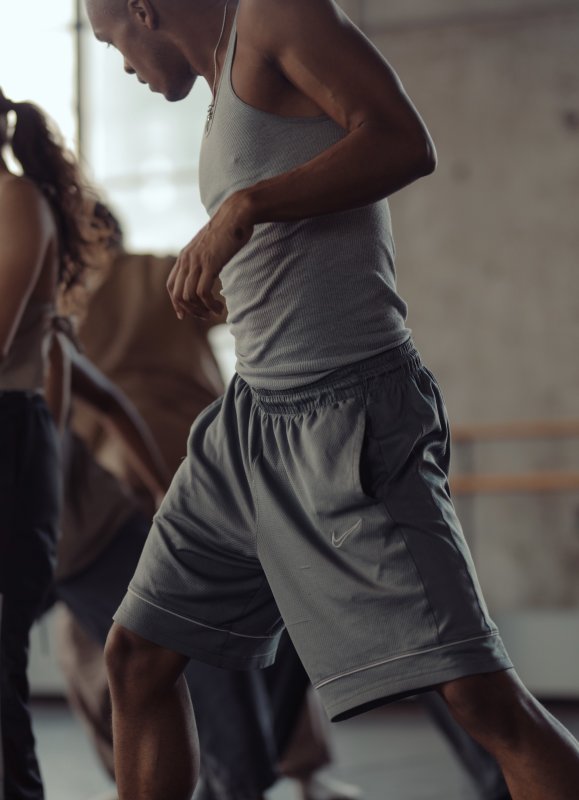
Name: Nelson Mejia
Program: danceweb
Year: 2025
Coach: Raja Feather Kelly
Nationality: United States
Country: United States
Report:
This summer, I attended the DanceWEB scholarship programme. Over five weeks, I became immersed in the world of Impulstanz and Vienna, seeing over 30 shows, taking workshops and intensives, connecting with like-minded individuals on intimate and personal levels both in and outside the studios.
This was an impactful experience. Exhausting, it certainly was…7:00 wake up, breakfast, gym, bike to the Arsenal, there at 10:00, leave at 4:00, dorms to change, eat, back out at 6:00…see a show, bike again, see another show, connect with others, 2:00 bed, 7:00 repeat. I would be remiss not to add that as a dancer living and working in New York City, I thrive off of high energy environments such as this, although this scenario slightly differs; I felt as though I could fully commit to the program, my peers, and my artistic desires and passions.
Often times, I bounce from project to project with many overlapping, and time moves so fast that while I’m certainly learning and taking in information, there gets to a point, i believe, in every freelancers head, where it’s not about development anymore, its about maintenance. I can say that before coming to Vienna, my strategies for handling exhaustion and self-care were incongruent or self-destructive.
It’s only now, months later, that I realize what my time at Impulstanz taught me is how to center myself in my own life. I’m at a point in age, where I’m self-admittedly just now learning how to make decisions for myself, which was both hard to come to terms with, in addition to being exactly what I needed to come to terms with.
The opportunity gave me agency to re-invest in my artistry and technique, not for a goal or performance, but for the sake of the work itself. It reminded me that my desires as an artist are truly personal, unique, and ought to be built upon in ways conducive to my own personal growth. This opportunity taught me about empathy, for the artists i was working and dancing alongside and the folks supporting our journeys. But most of all, The opportunity to attend DanceWEB brought in a newfound sense of clarity to my practice; Why I dance, what or who I dance for, and what I desire to see and create.
In conclusion, the DanceWEB Programme was an infusion that re-ignited my commitment and passion to being a dance artist in the world we live in today. It was truly an honor and experience I will never forget, and I would like to thank the DanceWEB team, teaching artists, and Raja Feather Kelly for making a moment like this possible in a world where moments like these become harder and harder to come by.
Tejus Menon
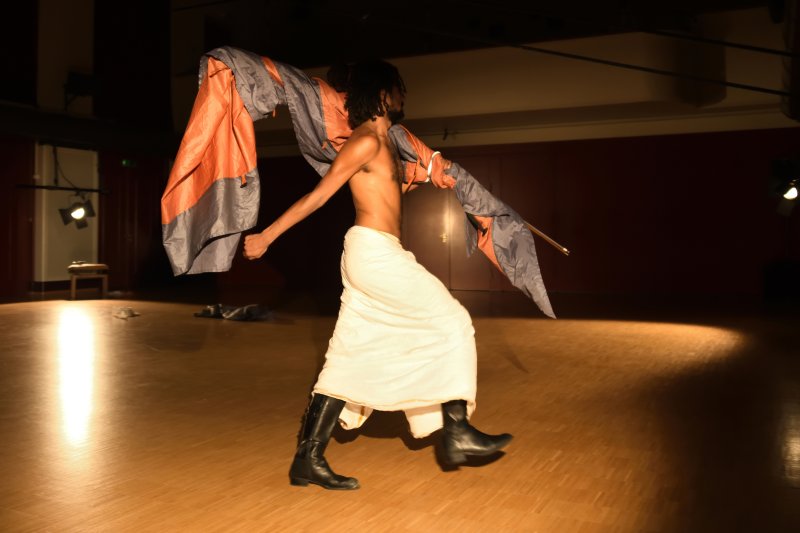
Name: Tejus Menon
Program: danceweb
Year: 2025
Coach: Raja Feather Kelly
Nationality: India
Country: Switzerland
Report:
Danceweb 2025
Danceweb in Vienna was a trial in encountering the monolith of institutional legitimacy and practice, while at the same time trying to stand by my application letter on avoiding yet another unaffected European Summer™
I am deeply grateful for the opportunity to have been present for these days, for being chosen to share time and space with such beautiful and strong presences and for being given the almost immediate but deeply honest manifestation of community.
The people I witnessed have left me deeply impressed. Equally so, it was incredibly potent to engage with the practices of artists who inspire me and also of those who left me in joy and awe on our first encounter.
Thank you Jassem, Keith, Angelique, Clara, Francois, Isabel, Guy, Jen, Lukas and Mei for holding your space with such clarity, precision and care.
I must acknowledge the acute lack of earth signs in this entire group and the resulting lightheadedness we all encountered. Thank you Raja, for being a queen and guiding through all the chaos.
I’m in love and deeply inspired by the cohort I shared my time with – you’ve been generous, honest and despicably attentive. I hate you because you levelled up my standard so much for what potency a group can carry and I can only hope I get to be part of something like this once more in life. Love is in the air and it transcends summer.
SOLIDARITY STATEMENT
****2025 Cohort Statement ****
As participants in DanceWEB, we encountered both the generosity and the structural challenges of the program. DanceWEB used to be known as a full scholarship programme. Today, the system requires that artists secure funding of 2,500 euros through the countries they live in, which makes it possible for us to come here. This model may have worked for a long time, but it now tends to benefit a select number of artists from wealthier, particularly Western European, countries with strong economies and a supportive attitude toward the arts. Artists from other regions, who lack such institutional structures, are often left to find their own means to arrive here. Beyond the co-funding fee itself, there are also visa, travel, and living costs to manage.
Many participants did not receive any state or private financial support to attend. In fact, 31 people paid from their own pockets a total of 14,435 euros. Some went into debt, some borrowed from friends and family, some relied on savings or crowdfunding. Others were given last-minute ultimatums to pay or lose their place. These are not isolated cases, they reflect a larger imbalance in access and opportunity.
A core strength of this festival is its international scope: it brings together artists from all over the world. This diversity is part of what defines ImPulsTanz, part of what makes it vibrant and unique. Yet, the artists who create this very diversity are often the ones who bear the greatest financial burden to be here. We do not all arrive equally.
This is not a personal grievance but a structural issue; one that disproportionately affects racialized and precarious artists. Everyone in this field is impacted by shifting funding systems and political uncertainty, but these inequalities are felt unevenly. As many cohorts before us have also observed, these concerns have been raised repeatedly over the years without sufficient structural response.
We therefore call on ImPulsTanz to publicly acknowledge these disparities and to take concrete steps toward addressing them. This includes developing a transparent and equitable funding model, creating dedicated support for artists without institutional backing, and ensuring that the program’s commitment to internationality is matched by genuine accessibility.
We urge the festival to engage directly with current and former DanceWEB participants in this process not only as beneficiaries, but as collaborators with valuable insight and lived experience. The sustainability and integrity of the program depend on it.
We are asking ImPulsTanz to adapt, respond, and act now in alignment with the values it promotes.
Erika Mitsuhashi
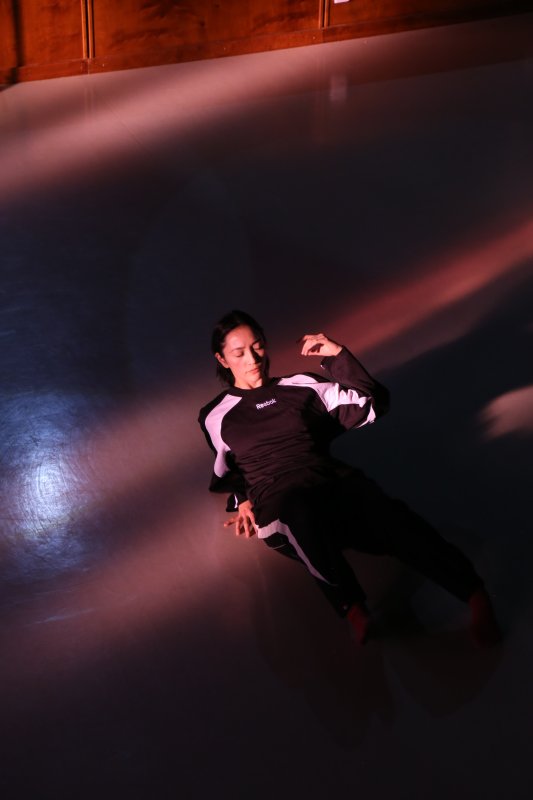
Name: Erika Mitsuhashi
Program: danceweb
Year: 2025
Coach: Raja Feather Kelly
Nationality: Canada
Country: Canada
Report:
danceWEB was nothing short of transformative. To dance everyday for five weeks and to be in the company of peers from around the world was a gift I didn’t know would keep giving even after returning home. I feel so inspired by the people I met, who have chosen dance and the arts as a life path, not an easy one by any means. I felt kinship and deep curiosity about each other’s contexts. It was just the beginning of more exchanges and conversations to come. I experienced a time when I got to be fully immersed in eating, thinking, breathing, witnessing, talking all things dance. I felt unmasked in the dance nerd that I am, that part was glorious.
I am writing this from my home in Vancouver, which often feels far from parts of the world but I made some really meaningful connections and look forward to tracking my new friends and peer’s trajectories. I truly cannot wait to see shows by my friends in this cohort and look forward to the times I'll delight in the feeling of "I know that person" from this time.
The sheer buffet of experiences I had is hard to summarize. I saw so much performance and am so grateful for the opportunity to be with SO many different kinds of works, especially by artists who I don’t have access to here in Western Canada. Seeing the Pina Bausch Company was surreal and a history lesson I didn’t anticipate.
Thank you to the teachers I got to learn from, I cannot express my gratitude enough. A sincere thank you to Keith Hennesey and Jassem Hindi who truly shook me awake in my commitment to dancing.
And thank you to Raja, for the realness, humour and care. It was subtle and overt all in the same breath.
As a cohort we experience such a multifaceted experience, with joy and complexities. Nothing is perfect, in its imperfection, I think it was exactly what it needed to be.
****2025 Cohort Statement ****
As participants in DanceWEB, we encountered both the generosity and the structural challenges of the program. DanceWEB used to be known as a full scholarship programme. Today, the system requires that artists secure funding of 2,500 euros through the countries they live in, which makes it possible for us to come here. This model may have worked for a long time, but it now tends to benefit a select number of artists from wealthier, particularly Western European, countries with strong economies and a supportive attitude toward the arts. Artists from other regions, who lack such institutional structures, are often left to find their own means to arrive here. Beyond the co-funding fee itself, there are also visa, travel, and living costs to manage.
Many participants did not receive any state or private financial support to attend. In fact, 12 people paid from their own pockets a total of 21.435 euros. Some went into debt, some borrowed from friends and family, some relied on savings or crowdfunding. Others were given last-minute ultimatums to pay or lose their place. These are not isolated cases, they reflect a larger imbalance in access and opportunity.
A core strength of this festival is its international scope: it brings together artists from all over the world. This diversity is part of what defines ImPulsTanz, part of what makes it vibrant and unique. Yet, the artists who create this very diversity are often the ones who bear the greatest financial burden to be here. We do not all arrive equally.
This is not a personal grievance but a structural issue; one that disproportionately affects racialized and precarious artists. Everyone in this field is impacted by shifting funding systems and political uncertainty, but these inequalities are felt unevenly. As many cohorts before us have also observed, these concerns have been raised repeatedly over the years without sufficient structural response.
We therefore call on ImPulsTanz to publicly acknowledge these disparities and to take concrete steps toward addressing them. This includes developing a transparent and equitable funding model, creating dedicated support for artists without institutional backing, and ensuring that the program’s commitment to internationality is matched by genuine accessibility.
We urge the festival to engage directly with current and former DanceWEB participants in this process not only as beneficiaries, but as collaborators with valuable insight and lived experience. The sustainability and integrity of the program depend on it.
We are asking ImPulsTanz to adapt, respond, and act now in alignment with the values it promotes.
Rey Molina Joichl
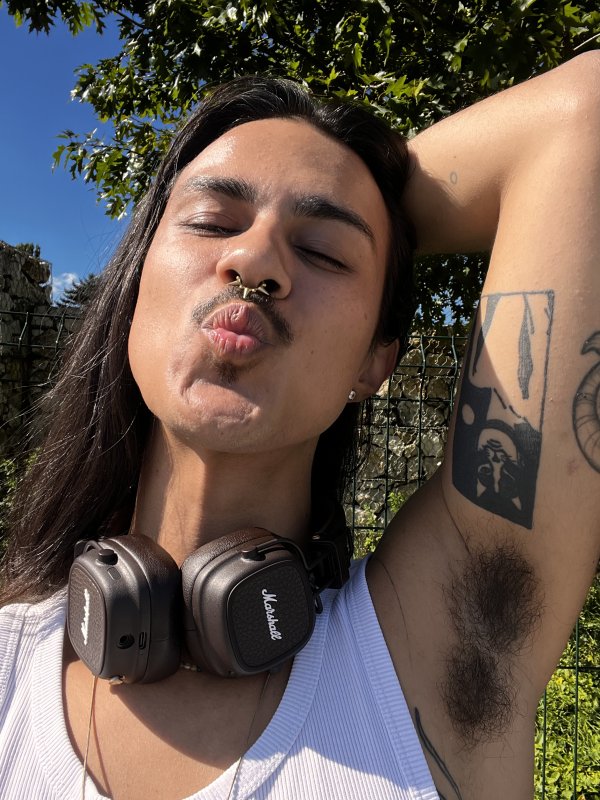
Name: Rey Molina Joichl
Program: danceweb
Year: 2025
Coach: Raja Feather Kelly
Nationality: Peru
Country: Austria
Report:
Five weeks of dancing, sweating, crying, laughing, drinking, watching shows, lounging, resisting, and holding each other. Five weeks of collective care, of strangers turned into new life companions, of waking up at 8 in the morning and going to bed at 5 am. Of napping between workshops and shows, of realizing after the first three days that you will never make it to the 8:30 am morning class. Communal epic fiction for five weeks straight - or rather, queer. A communal epic fictive fever-dream from which it takes you at least two months to properly wake up from. At least, in my case, two months later I’m still asking myself WTF, friends? What happened in those five weeks? The aftermath feels a bit like having brutally been spat out from an alternate reality, a queer dancing utopia. Much like summer dance camp, but for queer adults and with a lot of very inspiring personalitiess, so it’s much better.
Being in Vienna afterwards is emotional, to say the least. Like a break-up from an intense situationship and you keep bumping into memories made together at every corner that reminds you of them. Anyway, life is moving on now again, but somehow in different ways than before.
With more unanswered questions, answers to questions I do not know yet, questions with answers I didn’t expect and a relentless drive to create, create, create.
I feel incredibly privileged and grateful having had the opportunity and resources to immerse myself fully in this experience. The social overwhelm of it all was at times too much, but it also taught me to take some steps back, take time off, focus on my needs and nourish the connections that truly felt genuine.
I am beyond grateful to have had the chance to learn from wonderful artists and critical thinkers such as Isabel Lewis, Jassem Hindi, and Francois Chaignaud. And to have had experienced the works of and engaged in conversation with Marika Peura (Amalgam Melee), Mélissa Geux (DOWN), Mufutau Yusuf (Impasse), Michael Turinsky (Work Body) and Nadia Beugré (Épique) - I find them still deeply resonating within myself.
I also want to express my deepest gratitude to our mentor, Raja Feather Kelly, who hosted us with so much love and care, and made sure to guide us softly through these feverish five weeks. And, I want to thank my fellow dancewebbers. For showing up for each other, for bringing things into movement, for being the magical, dramatic, soft, relentless beings that you all are.
****2025 Cohort Statement ****
As participants in DanceWEB, we encountered both the generosity and the structural challenges of the program. DanceWEB used to be known as a full scholarship programme. Today, the system requires that artists secure funding of 2,500 euros through the countries they live in, which makes it possible for us to come here. This model may have worked for a long time, but it now tends to benefit a select number of artists from wealthier, particularly Western European, countries with strong economies and a supportive attitude toward the arts. Artists from other regions, who lack such institutional structures, are often left to find their own means to arrive here. Beyond the co-funding fee itself, there are also visa, travel, and living costs to manage.
Many participants did not receive any state or private financial support to attend. In fact, 12 people paid from their own pockets a total of 21,435 euros. Some went into debt, some borrowed from friends and family, some relied on savings or crowdfunding. Others were given last-minute ultimatums to pay or lose their place. These are not isolated cases, they reflect a larger imbalance in access and opportunity.
A core strength of this festival is its international scope: it brings together artists from all over the world. This diversity is part of what defines ImPulsTanz, part of what makes it vibrant and unique. Yet, the artists who create this very diversity are often the ones who bear the greatest financial burden to be here. We do not all arrive equally.
This is not a personal grievance but a structural issue; one that disproportionately affects racialized and precarious artists. Everyone in this field is impacted by shifting funding systems and political uncertainty, but these inequalities are felt unevenly. As many cohorts before us have also observed, these concerns have been raised repeatedly over the years without sufficient structural response.
We therefore call on ImPulsTanz to publicly acknowledge these disparities and to take concrete steps toward addressing them. This includes developing a transparent and equitable funding model, creating dedicated support for artists without institutional backing, and ensuring that the program’s commitment to internationality is matched by genuine accessibility.
We urge the festival to engage directly with current and former DanceWEB participants in this process not only as beneficiaries, but as collaborators with valuable insight and lived experience. The sustainability and integrity of the program depend on it.
We are asking ImPulsTanz to adapt, respond, and act now in alignment with the values it promotes.
Nathaniel Moore
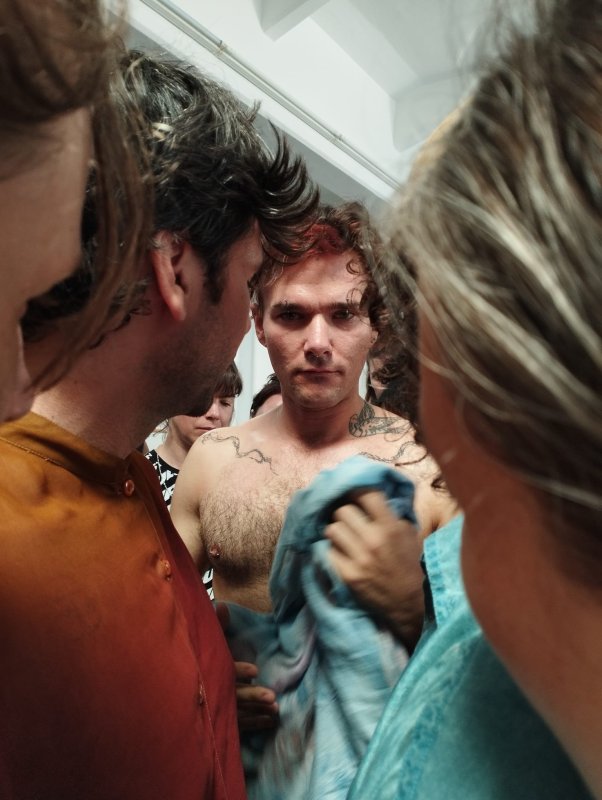
Name: Nathaniel Moore
Program: danceweb
Year: 2025
Coach: Raja Feather Kelly
Nationality: Belgium
Country: Belgium
Report:
Danceweb is something between a dancer sweepstakes lottery, a who's who, an ego boost, a chance to be seen, a situation which will set one up for disappointment, a sparkle without a body (yet with lots of wine), many potential dance moves, many performances, a flash, a vomit, a wet dream with nightmarish qualties. Any experience portrayed as a "once in a lifetime opportunity that will change you forever" is likely bound to not be that. In our group we were, like most groups, a highly politicized bunch. This was a pretty immediate contrast to the mentor, gifted as they were, who from his 11 plus times from being in the festival had learned to walk the line carefully, which is to say, not step out of line. People are there to work, and therefore risk, stakes, the real, is not as present as it might otherwise be intended to be. For dancewebers this is different. Ambitions might be a drive for some, however for most the desire is to experience life inside of the sparkly dance market machine and meet the artists who made and maintained a position for themselves within this spectacle. Our group gathered around the economic inequalities which the festival glossed over-you can read about that more below in the shared statement we wrote-and we gathered around the genocide in Gaza which the festival did not publicly acknowledge. We did a "die in" on the steps of the volkstheatre, and made a speech during the gala, as they did in many of the past years, calling out the economic inequalities and calling in a chance to revisit the structure of the program to account for this.
Artistically, Impulstanz gathers incredible dance artists. This is undeniable. I'm very thankful for my experiences I had in the studio with each and every artist who's practice I joined, from the mentor Raja to the very last workshop with Clara. The artists teaching workshops and sharing practices are the GEMS of this festival. Danceweb as a program is difficult in the most privileged sense of being in a buffet, not being able to come back to the buffet, and being tired the whole time. With 50 plus webbers it was difficult to connect with everyone in more than a superficial way. It seems some people fell under the radar, were left to their own devices. The moments we came together were curated, but often left people feeling annoyed for the very reason that it interrupted their rhythms. I think these moments were cared for well. The only thing I would have wished more for was from the start have a more intimate chance to get to know every persons work, and what they are busy with in terms of dance an thought. This came only as an after thought near the end, as we were invited to meet in a foreign frame of the mentors world and artistic work. A place where we adjusted and learned something, but concretely did not serve as a place to get to know each other artistically. Getting to know each other artistically, in the moments it did happen, was the most beautiful thing danceweb could offer because the artist in the group were all incredible, sensitive, generous humans who were distinctly working on their own specific things. When a conversation about ones work did come up, it would be like a light came on. I wanted, and needed, more of these moments from the start. Although Raja's work is interesting, I don't think it served the best as a mediator for us to open our artistic work to each other, which of course would be and is the basis for any future collaborations.
I'm thankful for the danceweb programme, for what it offers and all the work that goes into it. I would continue to advise the ones in charge of organising to rethink the economic structure. At very least to emphasis the problematics and contradictions to participants before they enter. If the problems were acknowledged earlier on it would save everyone a lot of energy an time and conflict. You can read below the statement our group made during the Gala.
Thank you!!
As a participant in DanceWEB, we encountered both the generosity and the structural challenges of the program.DanceWEB used to be known as a full scholarship programme. Today, the system requires that artists secure funding of 2,500 euros through the countries they live in, which makes it possible for us to come here. This model may have worked for a long time, but it now tends to benefit a select number of artists from wealthier, particularly Western European, countries with strong economies and a supportive attitude toward the arts. Artists from other regions, who lack such institutional structures, are often left to find their own means to arrive here. Beyond the co-funding fee itself, there are also visa, travel, and living costs to manage.
Many participants did not receive any state or private financial support to attend. In fact, 12 people paid from their own pockets a total of 21.435 euros. Some went into debt, some borrowed from friends and family, some relied on savings or crowdfunding. Others were given last-minute ultimatums to pay or lose their place. These are not isolated cases, they reflect a larger imbalance in access and opportunity.
A core strength of this festival is its international scope: it brings together artists from all over the world. This diversity is part of what defines ImPulsTanz, part of what makes it vibrant and unique. Yet, the artists who create this very diversity are often the ones who bear the greatest financial burden to be here. We do not all arrive equally.
This is not a personal grievance but a structural issue; one that disproportionately affects racialized and precarious artists. Everyone in this field is impacted by shifting funding systems and political uncertainty, but these inequalities are felt unevenly. As many cohorts before us have also observed, these concerns have been raised repeatedly over the years without sufficient structural response.
We therefore call on ImPulsTanz to publicly acknowledge these disparities and to take concrete steps toward addressing them. This includes developing a transparent and equitable funding model, creating dedicated support for artists without institutional backing, and ensuring that the program’s commitment to internationality is matched by genuine accessibility.
We urge the festival to engage directly with current and former DanceWEB participants in this process not only as beneficiaries, but as collaborators with valuable insight and lived experience. The sustainability and integrity of the program depend on it.
We are asking ImPulsTanz to adapt, respond, and act now in alignment with the values it promotes.
Clara-Marie Müller
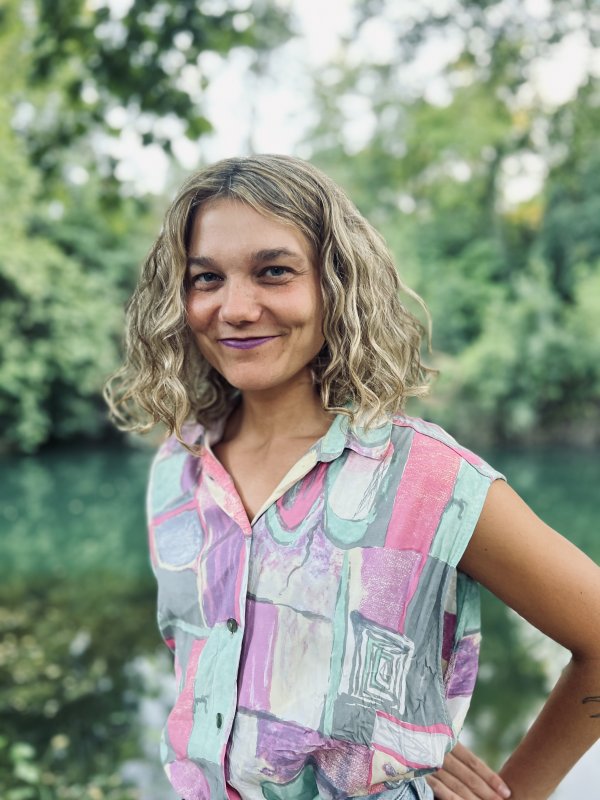
Name: Clara-Marie Müller
Program: danceweb
Year: 2025
Coach: Raja Feather Kelly
Nationality: Germany
Country: France
Report:
Danceweb…
I haven’t had so many experiences like this in my life, where I feel there is a clear before and after, in this time between June and October, where sooo many things happened. This one, was a confrontation of life dancing with me.
It feels like a huge exercise in choice making and listening, like a test: how do I make choices in moments of overload, when things are happening around me all the time, wonderful things wonderful people, important things, urgent things... What does it mean in this to choose oneself? To be intentional? How much is too much? What does my heart yearn for? I am deeply grateful for all the things I experienced in danceweb2025, the people I met, the dances I danced and I am still digesting them. This confronted me with my life-long constant restlessness, which suddenly, almost three months later, transformed. Looking back now, danceweb feels like a river, like something I wished I had been more ready, that I had arrived more rested, and something knowing maybe we get only ready through the experience itself…I loved the feeling of continuation and fluidity...like when the day becomes night, becomes a dance piece, becomes a party, becomes an encounter, becomes a dance, becomes a smile, becomes rain, becomes a solo, becomes a song, becomes bodywork, becomes a confrontation, becomes tiredness, becomes presence, becomes sharing, becomes a dream, becomes a bike ride, becomes a demonstration, becomes a performance, becomes a discussion, becomes Nelken, becomes a new encounter, becomes sleep, becomes silence, becomes a touch, becomes a kiss, becomes the river, becomes too much, becomes the last party, becomes a gaze, becomes a picture, becomes a promise, becomes a hope, becomes a relief, becomes a longing, becomes dance steps, becomes a decision, becomes something far away, becomes a sensation, and the too much becomes the new mode of living, and there is a new me, because also it all happens in this limited amount of time, change is inevitable…it seems like, in this life, the moments of deep sharing, joy, deep trust and belonging are temporary. now is the time. I am leaving with the sense of being more wise about the power of connection, which is immense, and this feels like the seed of a beginning.
I feel very honored to be with this exceptional danceweb cohort 2025, and I am deeply grateful to meeting each one of these amazing people. I think one of the most valuable experiences of danceweb is for me, to manage to exchange and organize within this group despite the overload of all that was happening. I want to deeply thank each of one of my group and Raja for sharing who they are. I am grateful also for the genius input of Raja’s mentorship. The sessions were to me a connective tissue between all other things, and a connective tissue to this life outside the danceweb excitement-overload. Like, how and where all comes together, is where and how we meet. And how I meet myself, how I allow myself to be myself as fully as I can.
I loved to see so many dance-pieces and to discuss about them with my colleagues. What does resonate and why and how?
Danceweb has not only sharpened my sensation of myself and on art, dance and choreography but also on the politics and dynamics of the (dance) world.
****2025 Cohort Statement ****
As participants in DanceWEB, we encountered both the generosity and the structural challenges of the program. DanceWEB used to be known as a full scholarship programme. Today, the system requires that artists secure funding of 2,500 euros through the countries they live in, which makes it possible for us to come here. This model may have worked for a long time, but it now tends to benefit a select number of artists from wealthier, particularly Western European, countries with strong economies and a supportive attitude toward the arts. Artists from other regions, who lack such institutional structures, are often left to find their own means to arrive here. Beyond the co-funding fee itself, there are also visa, travel, and living costs to manage.
Many participants did not receive any state or private financial support to attend. In fact, 12 people paid from their own pockets a total of 21.435 euros. Some went into debt, some borrowed from friends and family, some relied on savings or crowdfunding. Others were given last-minute ultimatums to pay or lose their place. These are not isolated cases, they reflect a larger imbalance in access and opportunity.
A core strength of this festival is its international scope: it brings together artists from all over the world. This diversity is part of what defines ImPulsTanz, part of what makes it vibrant and unique. Yet, the artists who create this very diversity are often the ones who bear the greatest financial burden to be here. We do not all arrive equally.
This is not a personal grievance but a structural issue; one that disproportionately affects racialized and precarious artists. Everyone in this field is impacted by shifting funding systems and political uncertainty, but these inequalities are felt unevenly. As many cohorts before us have also observed, these concerns have been raised repeatedly over the years without sufficient structural response.
We therefore call on ImPulsTanz to publicly acknowledge these disparities and to take concrete steps toward addressing them. This includes developing a transparent and equitable funding model, creating dedicated support for artists without institutional backing, and ensuring that the program’s commitment to internationality is matched by genuine accessibility.
We urge the festival to engage directly with current and former DanceWEB participants in this process not only as beneficiaries, but as collaborators with valuable insight and lived experience. The sustainability and integrity of the program depend on it.
We are asking ImPulsTanz to adapt, respond, and act now in alignment with the values it promotes.
Alen Nsambu

Name: Alen Nsambu
Program: danceweb
Year: 2025
Coach: Raja Feather Kelly
Nationality: Finland
Country: Finland
Report:
I don't think I'm good at reflecting, nor writing. So this will be what it will be, and we all just have to live with that. Or perhaps we all get to live with that.
5 weeks
a fever dream???
38 performances
so many workshops
Vienna in July
welcome to fomotown...
ahh the people <3
It’s a loooot of emotions and memories moving me and awakening when I think of my time in danceweb. Many things still feel like a blur, and by many things I mean the whole (?) time in Vienna. I mean it’s like I landed in a city called Vienna and then a few moments later it was time to leave already. The time between these two moments could’ve been a day, a year or exactly five weeks at Impulstanz.
(perhaps saying that it’s all a blur may be overexaggerating, since there are these crystals here and there that I see and hear very clear - I will list some of them now )
people smiling, everything sandy, perhaps a sunset
first day, the chandelier, and the blonde
all those fucking flowers on that stage, damn
Arsenale A and quads cramping
the ocean of affect
us waving together against the blue floor
fridge beeping waaaay to fast and loud
sound massage and us almost giving you a heart attack
the last time we were ALL together, a luxury
the pink bikes, and that time we listened to Rihanna
When I think of my time at danceweb I find it impossible to comprehend that it was only five weeks. To have that amount of inspiring artists and dance around you, it feels like a year's worth of something that cannot be named. I wanted to write material or content, but that is the wrong word and doesn’t feel right. That something is events and encounters that still keep changing me. It’s truly a treat, a luxury in these days, where everything is so individualistic, to have a little danceweb community or a family for those five weeks.
But there is so much that lives beyond those five weeks. There are people that now are in my life and that continue changing my life. There is that once performance that still inspires me (it was AMAZING). There is that one performance that I still think of because I HATED it. When I now dance and find myself waving, I still think of that one workshop. And sometimes I think of that other workshop that was so vague, confusing and loosely stitched together that I question so many things of what professionalism means. When I see a group fooling around and dancing in the club, I still think of us in July. I can now roll a cigarette, thanks K! That is what danceweb is - soaking in all those wonderful moments, knowledge and art, then going back and feeling the change. Because something always changes. And it keeps going still - and now when I do my craft I feel the change. Maybe it was a workshop that I took during the last week or that one conversation while biking-for-our-lives to not be late to a show. But the change reaches way beyond practicing the craft, it reaches the social, the private and personal. It expands horizons and how I approach the world beyond my profession.
DanceWEB is magical, and it was nothing that I’ve ever experienced before. There’s nothing like it in Europe that I know of - I hope it continues to support emerging artists in the future and even more, since times are getting even more precarious. It is the people that make the experience. Thank you everybody who made it possible for us to be there. Thank you Raja. Thank you danceWEB cohort 2025, my endless gratitude to you.
****2025 Cohort Statement of Solidarity ****
As participants in DanceWEB, we encountered both the generosity and the structural challenges of the program. DanceWEB used to be known as a full scholarship programme. Today, the system requires that artists secure funding of 2,500 euros through the countries they live in, which makes it possible for us to come here. This model may have worked for a long time, but it now tends to benefit a select number of artists from wealthier, particularly Western European, countries with strong economies and a supportive attitude toward the arts. Artists from other regions, who lack such institutional structures, are often left to find their own means to arrive here. Beyond the co-funding fee itself, there are also visa, travel, and living costs to manage.
Many participants did not receive any state or private financial support to attend. In fact, 12 people paid from their own pockets a total of 21.435 euros. Some went into debt, some borrowed from friends and family, some relied on savings or crowdfunding. Others were given last-minute ultimatums to pay or lose their place. These are not isolated cases, they reflect a larger imbalance in access and opportunity.
A core strength of this festival is its international scope: it brings together artists from all over the world. This diversity is part of what defines ImPulsTanz, part of what makes it vibrant and unique. Yet, the artists who create this very diversity are often the ones who bear the greatest financial burden to be here. We do not all arrive equally.
This is not a personal grievance but a structural issue; one that disproportionately affects racialized and precarious artists. Everyone in this field is impacted by shifting funding systems and political uncertainty, but these inequalities are felt unevenly. As many cohorts before us have also observed, these concerns have been raised repeatedly over the years without sufficient structural response.
We therefore call on ImPulsTanz to publicly acknowledge these disparities and to take concrete steps toward addressing them. This includes developing a transparent and equitable funding model, creating dedicated support for artists without institutional backing, and ensuring that the program’s commitment to internationality is matched by genuine accessibility.
We urge the festival to engage directly with current and former DanceWEB participants in this process not only as beneficiaries, but as collaborators with valuable insight and lived experience. The sustainability and integrity of the program depend on it.
We are asking ImPulsTanz to adapt, respond, and act now in alignment with the values it promotes.
Maya Oliva
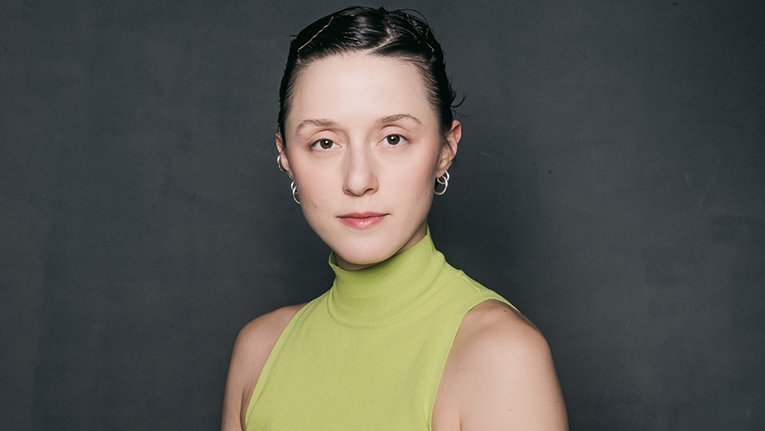
Name: Maya Oliva
Program: danceweb
Year: 2025
Coach: Raja Feather Kelly
Nationality: Italy
Country: Finland
Report:
It’s true what everyone says. It’s a lot (:
The thing is also, and I keep reminding myself of this, I could choose to do less. However, the quantity of things being there, the amount of new people constantly populating each hour of the day, the desire to take it all in, the desire to do, feel, see, and learn, was there.
How to be in a condensed landscape of things that you love?
An agglomeration of information I could have received over a few years. Part of it became about how to communicate daily with my desires, understanding them and directing them, while also knowing when to let go into the fever dream, so that I could pick myself up again and continuously renegotiate.
My love for dance bloomed once again within the tiredness and overwhelm, but mostly through the dancers with whom I shared this time, including our mentor Raja. I fell in love with them, and they inspire me. What also inspires me greatly is that, between all the mess, between all the institutional lack of humanity, we still kept fighting to hold a spark inside ourselves, to feel together, to speak, to think, to dance.
The people I have met here reminded me of why I dance.
Thank you.
SOLIDARITY STATEMENT
As participants in DanceWEB, we encountered both the generosity and the structural challenges of the program. DanceWEB used to be known as a full scholarship programme. Today, the system requires that artists secure funding of 2,500 euros through the countries they live in, which makes it possible for us to come here. This model may have worked for a long time, but it now tends to benefit a select number of artists from wealthier, particularly Western European, countries with strong economies and a supportive attitude toward the arts. Artists from other regions, who lack such institutional structures, are often left to find their own means to arrive here. Beyond the co-funding fee itself, there are also visa, travel, and living costs to manage.
Many participants did not receive any state or private financial support to attend. In fact, 12 people paid from their own pockets a total of 21.435 euros. Some went into debt, some borrowed from friends and family, some relied on savings or crowdfunding. Others were given last-minute ultimatums to pay or lose their place. These are not isolated cases, they reflect a larger imbalance in access and opportunity.
A core strength of this festival is its international scope: it brings together artists from all over the world. This diversity is part of what defines ImPulsTanz, part of what makes it vibrant and unique. Yet, the artists who create this very diversity are often the ones who bear the greatest financial burden to be here. We do not all arrive equally.
This is not a personal grievance but a structural issue; one that disproportionately affects racialized and precarious artists. Everyone in this field is impacted by shifting funding systems and political uncertainty, but these inequalities are felt unevenly. As many cohorts before us have also observed, these concerns have been raised repeatedly over the years without sufficient structural response.
We therefore call on ImPulsTanz to publicly acknowledge these disparities and to take concrete steps toward addressing them. This includes developing a transparent and equitable funding model, creating dedicated support for artists without institutional backing, and ensuring that the program’s commitment to internationality is matched by genuine accessibility.
We urge the festival to engage directly with current and former DanceWEB participants in this process not only as beneficiaries, but as collaborators with valuable insight and lived experience. The sustainability and integrity of the program depend on it.
We are asking ImPulsTanz to adapt, respond, and act now in alignment with the values it promotes.
Alena Papina
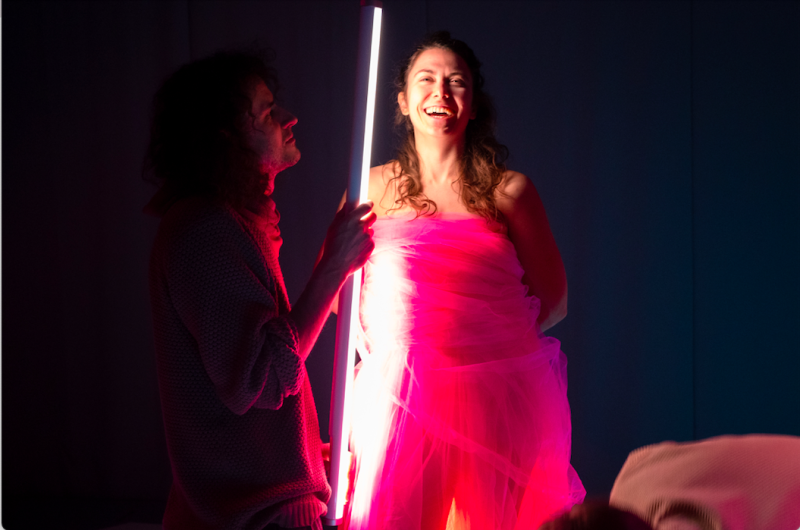
Name: Alena Papina
Program: danceweb
Year: 2025
Coach: Raja Feather Kelly
Nationality: Russia
Country: Georgia
Report:
I will not be sharing artistic discoveries, potential collaborators or friendships I made during the festival - this you can check on my Instagram: @pap_pix in the danceWEB highlight and hopefully in my feed in the form of a post or a reel afterwards. Instead, I would like to use this platform for the less visible yet essential problem - the place of danceWEBers in the framework of the festival. Below I will break it down for you on my own example, where I represent the many other similar cases.
/ Portrait of a danceWEBer in the framework of the scholarship
It is stated to be a long-established and a highly prestigious scholarship for emerging and middle career dance artists, changing their careers for the good through taking classes, watching performances and networking. Yet many of these opportunities took twice a challenge of just being selected for the program: it also involved a co-funding struggle for the 1/3 of the scholarship, visa struggle, struggle for money for travels and per diems during the festival, health insurance and savings in case of emergency - given the fact one gives up their work, family and friends for 5 weeks. In many situations, that would be considered an art-residency or a time-based project, and a person who does that is obviously driven by the love of dance and performance in a deeply professional way - which in current economy and global political situation makes one a full-time freelance dancer/teacher/creator/manager on the project (meaning - highly precarious) base. This person has to be healthy, have a very adjustable (or wealthy) partner and a back-up plan. Money either come from the hard exhausting work of self-promotion, grant applications and selling any services one got - or from family's heritage or a sponsor (who is many times a partner of a person).
With this target audience in mind, being given a scholarship can not be considered as an act of mercy or a miraculous event - it is a simple payoff for the time one spent and lasted in the field till the time they got selected.
I am including here the solidarity statement that had been composed collectively by the DanceWeb participants 2025. It is expressing the concerns about the festival organization that I share entirely.
****2025 Cohort Statement ****
As participants in DanceWEB, we encountered both the generosity and the structural challenges of the program. DanceWEB used to be known as a full scholarship programme. Today, the system requires that artists secure funding of 2,500 euros through the countries they live in, which makes it possible for us to come here. This model may have worked for a long time, but it now tends to benefit a select number of artists from wealthier, particularly Western European, countries with strong economies and a supportive attitude toward the arts. Artists from other regions, who lack such institutional structures, are often left to find their own means to arrive here. Beyond the co-funding fee itself, there are also visa, travel, and living costs to manage.
Many participants did not receive any state or private financial support to attend. In fact, 31 people paid from their own pockets a total of 14,435 euros. Some went into debt, some borrowed from friends and family, some relied on savings or crowdfunding. Others were given last-minute ultimatums to pay or lose their place. These are not isolated cases, they reflect a larger imbalance in access and opportunity.
A core strength of this festival is its international scope: it brings together artists from all over the world. This diversity is part of what defines ImPulsTanz, part of what makes it vibrant and unique. Yet, the artists who create this very diversity are often the ones who bear the greatest financial burden to be here. We do not all arrive equally.
This is not a personal grievance but a structural issue; one that disproportionately affects racialized and precarious artists. Everyone in this field is impacted by shifting funding systems and political uncertainty, but these inequalities are felt unevenly. As many cohorts before us have also observed, these concerns have been raised repeatedly over the years without sufficient structural response.
We therefore call on ImPulsTanz to publicly acknowledge these disparities and to take concrete steps toward addressing them. This includes developing a transparent and equitable funding model, creating dedicated support for artists without institutional backing, and ensuring that the program’s commitment to internationality is matched by genuine accessibility.
We urge the festival to engage directly with current and former DanceWEB participants in this process not only as beneficiaries, but as collaborators with valuable insight and lived experience. The sustainability and integrity of the program depend on it.
We are asking ImPulsTanz to adapt, respond, and act now in alignment with the values it promotes.
Oksana Pawelko
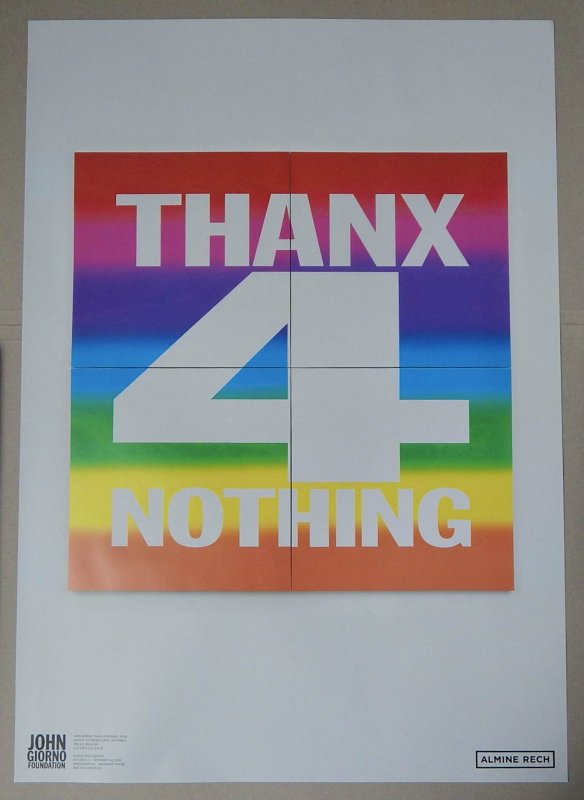
Name: Oksana Pawelko
Program: danceweb
Year: 2025
Coach: Raja Feather Kelly
Nationality: Poland
Country: Germany
Report:
As participants in DanceWEB, we encountered both the generosity and the structural challenges of the program. DanceWEB used to be known as a full scholarship programme. Today, the system requires that artists secure funding of 2,500 euros through the countries they live in, which makes it possible for us to come here. This model may have worked for a long time, but it now tends to benefit a select number of artists from wealthier, particularly Western European, countries with strong economies and a supportive attitude toward the arts. Artists from other regions, who lack such institutional structures, are often left to find their own means to arrive here. Beyond the co-funding fee itself, there are also visa, travel, and living costs to manage.
Many participants did not receive any state or private financial support to attend. In fact, 31 people paid from their own pockets a total of 14,435 euros. Some went into debt, some borrowed from friends and family, some relied on savings or crowdfunding. Others were given last-minute ultimatums to pay or lose their place. These are not isolated cases, they reflect a larger imbalance in access and opportunity.
A core strength of this festival is its international scope: it brings together artists from all over the world. This diversity is part of what defines ImPulsTanz, part of what makes it vibrant and unique. Yet, the artists who create this very diversity are often the ones who bear the greatest financial burden to be here. We do not all arrive equally.
This is not a personal grievance but a structural issue; one that disproportionately affects racialized and precarious artists. Everyone in this field is impacted by shifting funding systems and political uncertainty, but these inequalities are felt unevenly. As many cohorts before us have also observed, these concerns have been raised repeatedly over the years without sufficient structural response.
We therefore call on ImPulsTanz to publicly acknowledge these disparities and to take concrete steps toward addressing them. This includes developing a transparent and equitable funding model, creating dedicated support for artists without institutional backing, and ensuring that the program’s commitment to internationality is matched by genuine accessibility.
We urge the festival to engage directly with current and former DanceWEB participants in this process not only as beneficiaries, but as collaborators with valuable insight and lived experience. The sustainability and integrity of the program depend on it.
We are asking ImPulsTanz to adapt, respond, and act now in alignment with the values it promotes.
Paulina Pawłowska
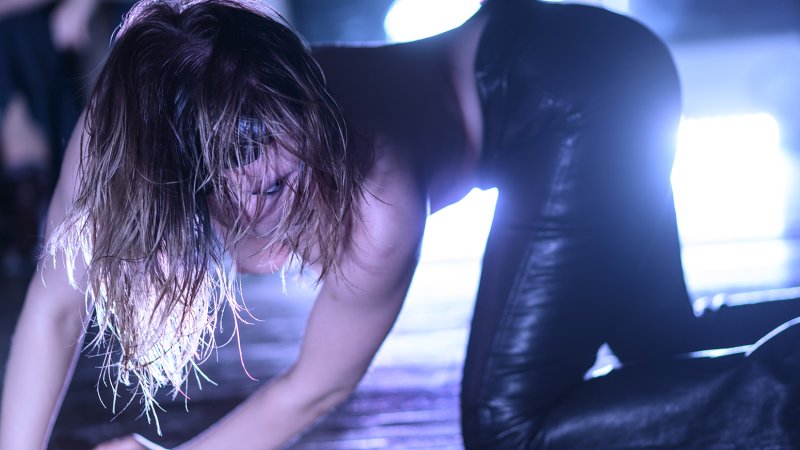
Name: Paulina Pawłowska
Program: danceweb
Year: 2025
Coach: Raja Feather Kelly
Nationality: Poland
Country: Germany
Report:
Danceweb was, for me, a challenging five-week journey of learning to listen to my own needs and bodily energy. It was a time of questioning, of connecting with my desires and fears, of observing what worked for me as inspiring and what didn’t. I explored the direction in which I want to further develop my practice, and once again asked myself who I am on stage, within a collective experience, and in moments of solitude — and how each of these dimensions can bring something meaningful into my work and my life. It was special to observe how all the Dancewebbers were navigating such an intense program, and what their various needs were. Since I’m always thinking about how we can create safe and accessible spaces for people with different experiences and conditions — physical, mental, or neurological — as well as different desires, it was an invaluable space to learn.
****2025 Cohort Statement ****
As participants in DanceWEB, we encountered both the generosity and the structural challenges of the program. DanceWEB used to be known as a full scholarship programme. Today, the system requires that artists secure funding of 2,500 euros through the countries they live in, which makes it possible for us to come here. This model may have worked for a long time, but it now tends to benefit a select number of artists from wealthier, particularly Western European, countries with strong economies and a supportive attitude toward the arts. Artists from other regions, who lack such institutional structures, are often left to find their own means to arrive here. Beyond the co-funding fee itself, there are also visa, travel, and living costs to manage.
Many participants did not receive any state or private financial support to attend. In fact, 12 people paid from their own pockets a total of 21,435 euros. Some went into debt, some borrowed from friends and family, some relied on savings or crowdfunding. Others were given last-minute ultimatums to pay or lose their place. These are not isolated cases, they reflect a larger imbalance in access and opportunity.
A core strength of this festival is its international scope: it brings together artists from all over the world. This diversity is part of what defines ImPulsTanz, part of what makes it vibrant and unique. Yet, the artists who create this very diversity are often the ones who bear the greatest financial burden to be here. We do not all arrive equally.
This is not a personal grievance but a structural issue; one that disproportionately affects racialized and precarious artists. Everyone in this field is impacted by shifting funding systems and political uncertainty, but these inequalities are felt unevenly. As many cohorts before us have also observed, these concerns have been raised repeatedly over the years without sufficient structural response.
We therefore call on ImPulsTanz to publicly acknowledge these disparities and to take concrete steps toward addressing them. This includes developing a transparent and equitable funding model, creating dedicated support for artists without institutional backing, and ensuring that the program’s commitment to internationality is matched by genuine accessibility.
We urge the festival to engage directly with current and former DanceWEB participants in this process not only as beneficiaries, but as collaborators with valuable insight and lived experience. The sustainability and integrity of the program depend on it.
We are asking ImPulsTanz to adapt, respond, and act now in alignment with the values it promotes.
Michal Przybyla
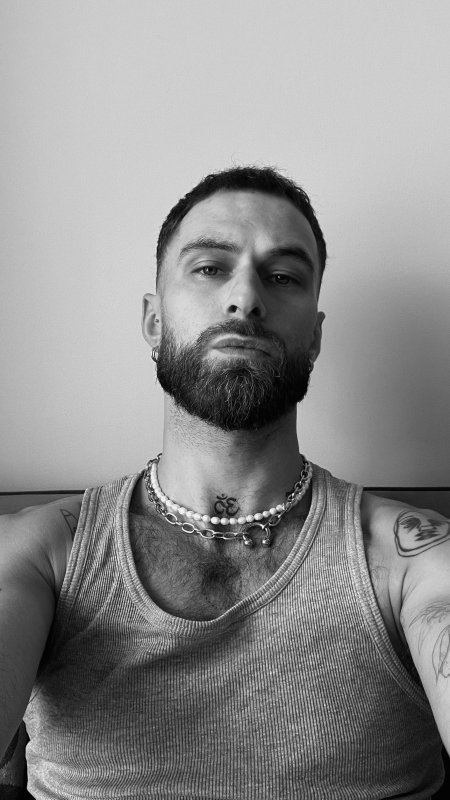
Name: Michal Przybyla
Program: danceweb
Year: 2025
Coach: Raja Feather Kelly
Nationality: Poland
Country: Poland
Report:
Looking back on my time at danceWEB 2025, I feel both gratitude and exhaustion. These five weeks in Vienna were some of the most intense I have ever experienced — a constant flow of workshops, performances, and social encounters that demanded presence on every level. It was a privilege to be there, but it was also difficult. The density of the program often left me overstimulated, and I had to find my own strategies to cope with the feeling of overload. I realized that I needed to protect my inner space in order to stay open and engaged. Sometimes that meant stepping back, finding quiet moments alone, and letting things settle before I could take them in.
While the program offered many opportunities to connect, I found myself unable to fully participate in the idea of a “community.” I appreciated being surrounded by other artists, sharing meals, conversations, and small daily moments — like going to the river or lake together on our days off — but I didn’t always feel I had the energy to engage deeply. I learned that being part of a collective doesn’t always mean being constantly available; sometimes presence takes quieter forms.
The most valuable experiences for me were the workshops with Matteo Fargion and Jonathan Burrows. Matteo’s “Crossing the Stage and Other Scores” opened up an entirely new way of thinking about choreographic composition — one rooted in musical structures and clear, elegant systems of organization. Jonathan’s “Questioning Choreography” was equally impactful, offering a space to reflect on the relationships between choreography, spectatorship, and materiality. Their approaches resonated deeply with my own interests in structure, rhythm, and the tension between form and freedom. These workshops grounded me and gave me tools I know I will return to in my own work.
In contrast, participating in the research project with Ivo Dimchev was disappointing. I have long admired Ivo as an artist — his courage, his queerness, his unfiltered expressivity — but the process itself felt chaotic and directionless. While it was interesting to witness his personality and working style up close, the project lacked a sense of purpose and depth. It was a reminder that not every encounter needs to be transformative; sometimes the learning comes from frustration and from understanding what doesn’t work for you.
Watching performances at ImPulsTanz was another significant part of the experience. The range of works — from established choreographers to emerging artists — offered a broad view of contemporary dance practice. Some performances left a strong impression, others less so, but collectively they expanded my sense of what choreography can be, and where my own work sits in that evolving landscape. The most remarkable performance for me was “Gush is Great” by production Xx — it perfectly aligned with my own artistic interests in exhausting a single topic over a long duration, in the use of grotesque and comedy on stage, and in maintaining intense physical and performative engagement. Another piece that struck me deeply was “DOWN (Full Album)” by Melissa Gaux, whose astonishing physicality and powerful vocal presence were nothing short of phenomenal. Both performances reminded me how endurance, humor, and embodied sincerity can coexist in one artistic gesture.
An important part of my danceWEB experience was also witnessing acts of solidarity with Palestine. Several artists chose to express this solidarity through their performances, and within our danceWEB group, many of us came together to share this stance collectively. It felt necessary and urgent to acknowledge what is happening in the world, even within the context of art. However, I was disappointed by the lack of visible and explicit support for this cause from the festival itself. In a space that celebrates artistic freedom and social engagement, I believe such silence is noticeable — and significant.
Since returning home, I’ve noticed subtle changes in my artistic perspective. I feel more attuned to structure, rhythm, and clarity in composition, and more aware of my personal limits as an artist navigating intense environments. danceWEB reminded me that growth isn’t always about expansion — sometimes it’s about slowing down, listening, and finding balance between exposure and introspection.
I’m grateful for the experience, even with its difficulties. It challenged my stamina, my expectations, and my understanding of artistic community. It left me with a clearer sense of how I want to work and what kind of artistic spaces I want to cultivate — ones that allow for complexity, rest and honest engagement.
****2025 Cohort Statement ****
As participants in DanceWEB, we encountered both the generosity and the structural challenges of the program. DanceWEB used to be known as a full scholarship programme. Today, the system requires that artists secure funding of 2,500 euros through the countries they live in, which makes it possible for us to come here. This model may have worked for a long time, but it now tends to benefit a select number of artists from wealthier, particularly Western European, countries with strong economies and a supportive attitude toward the arts. Artists from other regions, who lack such institutional structures, are often left to find their own means to arrive here. Beyond the co-funding fee itself, there are also visa, travel, and living costs to manage.
Many participants did not receive any state or private financial support to attend. In fact, 31 people paid from their own pockets a total of 14,435 euros. Some went into debt, some borrowed from friends and family, some relied on savings or crowdfunding. Others were given last-minute ultimatums to pay or lose their place. These are not isolated cases, they reflect a larger imbalance in access and opportunity.
A core strength of this festival is its international scope: it brings together artists from all over the world. This diversity is part of what defines ImPulsTanz, part of what makes it vibrant and unique. Yet, the artists who create this very diversity are often the ones who bear the greatest financial burden to be here. We do not all arrive equally.
This is not a personal grievance but a structural issue; one that disproportionately affects racialized and precarious artists. Everyone in this field is impacted by shifting funding systems and political uncertainty, but these inequalities are felt unevenly. As many cohorts before us have also observed, these concerns have been raised repeatedly over the years without sufficient structural response.
We therefore call on ImPulsTanz to publicly acknowledge these disparities and to take concrete steps toward addressing them. This includes developing a transparent and equitable funding model, creating dedicated support for artists without institutional backing, and ensuring that the program’s commitment to internationality is matched by genuine accessibility.
We urge the festival to engage directly with current and former DanceWEB participants in this process not only as beneficiaries, but as collaborators with valuable insight and lived experience. The sustainability and integrity of the program depend on it.
We are asking ImPulsTanz to adapt, respond, and act now in alignment with the values it promotes.
Eshan Rafi
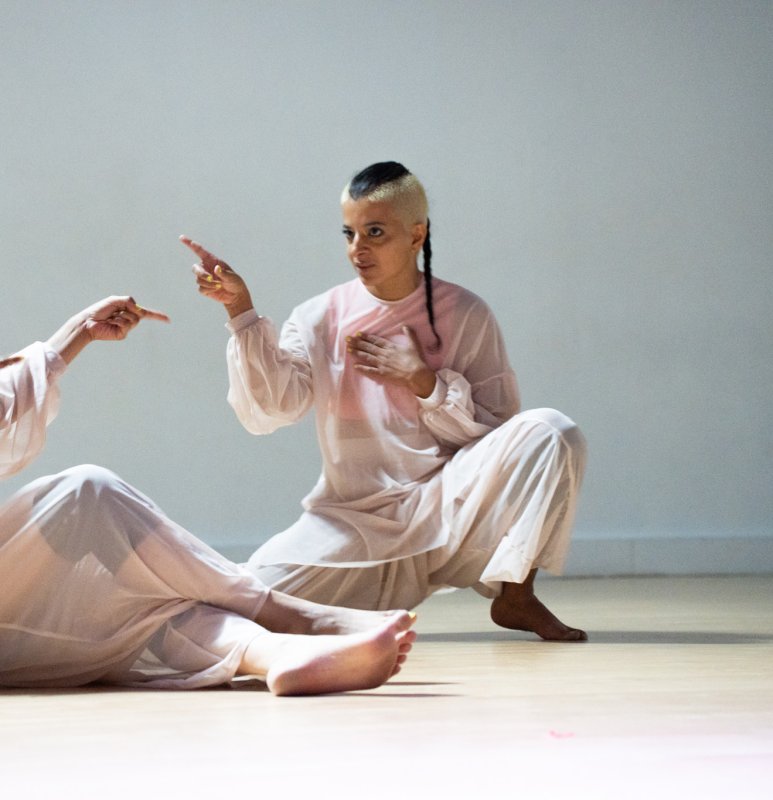
Name: Eshan Rafi
Program: danceweb
Year: 2025
Coach: Raja Feather Kelly
Nationality: Canada
Country: Canada
Report:
As participants in DanceWEB, we encountered both the generosity and the structural challenges of the program. DanceWEB used to be known as a full scholarship programme. Today, the system requires that artists secure funding of 2,500 euros through the countries they live in, which makes it possible for us to come here. This model may have worked for a long time, but it now tends to benefit a select number of artists from wealthier, particularly Western European, countries with strong economies and a supportive attitude toward the arts. Artists from other regions, who lack such institutional structures, are often left to find their own means to arrive here. Beyond the co-funding fee itself, there are also visa, travel, and living costs to manage.
Many participants did not receive any state or private financial support to attend. In fact, 12 people paid from their own pockets a total of 21.435€. Some went into debt, some borrowed from friends and family, some relied on savings or crowdfunding. Others were given last-minute ultimatums to pay or lose their place. These are not isolated cases, they reflect a larger imbalance in access and opportunity.
A core strength of this festival is its international scope: it brings together artists from all over the world. This diversity is part of what defines ImPulsTanz, part of what makes it vibrant and unique. Yet, the artists who create this very diversity are often the ones who bear the greatest financial burden to be here. We do not all arrive equally.
This is not a personal grievance but a structural issue; one that disproportionately affects racialized and precarious artists. Everyone in this field is impacted by shifting funding systems and political uncertainty, but these inequalities are felt unevenly. As many cohorts before us have also observed, these concerns have been raised repeatedly over the years without sufficient structural response.
We therefore call on ImPulsTanz to publicly acknowledge these disparities and to take concrete steps toward addressing them. This includes developing a transparent and equitable funding model, creating dedicated support for artists without institutional backing, and ensuring that the program’s commitment to internationality is matched by genuine accessibility.
We urge the festival to engage directly with current and former DanceWEB participants in this process not only as beneficiaries, but as collaborators with valuable insight and lived experience. The sustainability and integrity of the program depend on it.
We are asking ImPulsTanz to adapt, respond, and act now in alignment with the values it promotes.
Celia Reyes
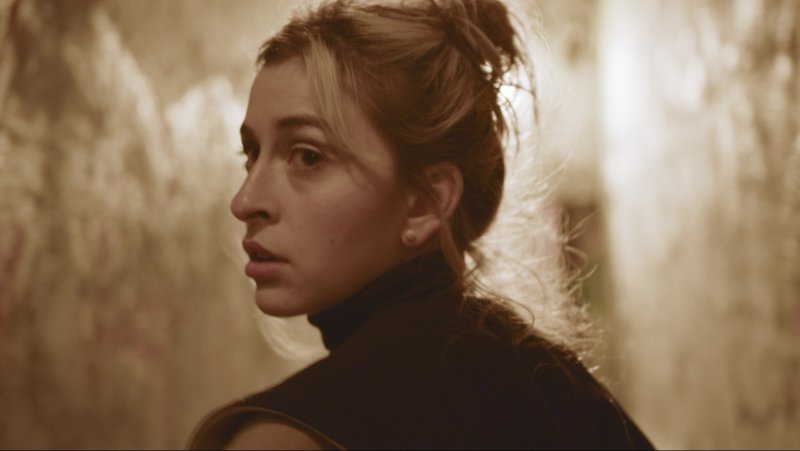
Name: Celia Reyes
Program: danceweb
Year: 2025
Coach: Raja Feather Kelly
Nationality: Spain
Country: Spain
Report:
Danceweb came into my life at a moment when questioning desire was already simmering beneath the surface of both my artistic and personal practice.
My wish, going into Danceweb, was to deepen certain aspects of my choreographic practice that I felt needed further development and learning — to focus more on my role as a director and choreographer rather than as a dancer. What shaped my experience the most was the challenge of keeping that desire alive throughout a process that pulls you in so many directions at once. I’m deeply grateful to have been able to carry that desire through to the end — to bring my practice into a more reflective, argument-driven space, where creation took precedence over execution.
And although this focus has undoubtedly strengthened my work as a choreographer and director, it’s also unearthed — perhaps not desire itself, but the feeling of dancing as an act of survival, and lately, as something I was in danger of losing: a pleasure.
That desire was already with me when I arrived at Danceweb — it stayed, and it’s still transforming. But new desires also appeared along the way. One of them was to look at artistic postmodernity with less desire, and to rediscover, in earlier stage works, a genuine sense of dance’s power to move through bodies and individualities — to “speak” of universal matters with a sensitivity that now feels tinged with nostalgia. Luckily, that same sense kept resurfacing in contemporary performances and workshops, where tenderness and a kind of quiet mysticism took centre stage.
Those two — tenderness and mysticism — are without doubt revelations that came from seeing, moving, listening, and speaking among so many diverse artistic visions and proposals for dance. I now feel it’s vital to create from that place meaning with both gravity and vulnerability — and for dance to propose, not just deconstruct, realities. This experience has given me a direction — it’s been a vector, one I’m truly grateful for.
Of course, many desires were left unrealised along the way — among them, the wish for the platform itself to serve more as a space for artistic but not only social connection. Danceweb is full of complexities; everyone goes through their own restlessness and concerns. It’s also a kind of bubble that can leave you feeling either very inside or very outside — and moving between those two states can be hard work. I personally found that reconciliation difficult: at times claustrophobic, at others deeply pleasurable, but always with a sense of trying, that was also exhausting for me.
I’m left with many open questions — social, political, artistic — and with the feeling that Danceweb is a kind of mirage (desire vs trap) framed in a transnational precarity context of our profession.
*Additionaly, speaking in broad terms I subscribe what others dancewebers have stated in regards to the need for transparency of the festival and the wish for Danceweb to become a platform economically accesible to even more people that It is now.
Kemelo Sehlapelo
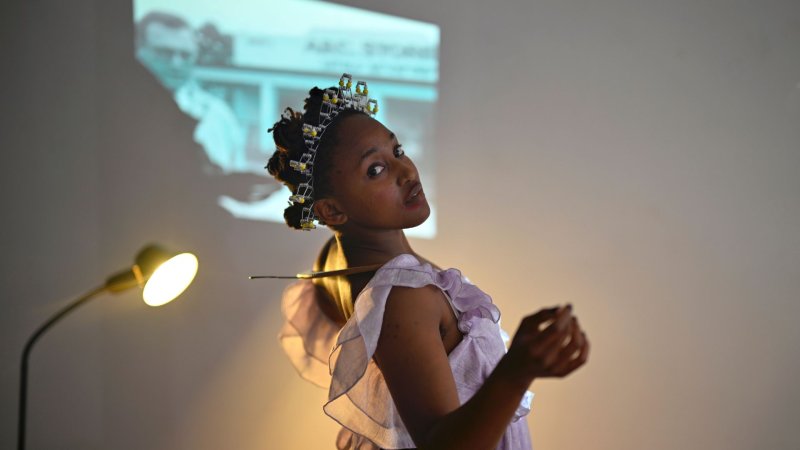
Name: Kemelo Sehlapelo
Program: danceweb
Year: 2025
Coach: Raja Feather Kelly
Nationality: South Africa
Country: Germany
Report:
I don’t know how to begin a reflection of an experience that, in many ways, hasn’t ended.
I came to Vienna that cloudy and rainy day, from Frankfurt, in precarity, and in some ways, I am still there.
I came not knowing what to expect other than the promised intensity previous DanceWebbers had told me about. I came with a physical injury, and that remains so, although I learnt that I can find a comforting discipline in this state of perpetual injury. I came knowing two or three people: some were close friends, some were crushes from afar, some were old friends. I left knowing more people than I thought I had the space to hold (and I left having felt known).
There is something that happened here. And I could not tell you if it was the fact that as a cohort, we found each other pre-Impulstanz storm, and exercised our efforts towards solidarity in such courageous ways. Or, maybe there is something that happened to me; which is to say that I feel significantly and profoundly moved by the ways that my heart was cracked open, and my personhood – my dance(s) and my praxis – were solidified, validated, and questioned. That I became porous in ways that allowed these contradictions to exist in me, as if I knew them already. As if they were already there!
And
I remember the comfort of meeting the eyes of someone I knew (even if barely) after a very physically intense class, sharing the fatigue through caffeinated conversations (rain or shine). I cherish the softness, of the hugs, kisses, and hyping up of each other (rain or shine). I honour the steadfastness of action towards solidarity, the tenacity of going after what I/we believe in.
And still, while I continue making dances, and placing my marked (signified) body on stage, and in the studio, and strolling on the sidewalks of a country slipping towards fascism, my bubble is burst. I recognise that this 5 week long “fever dream” exists while putting the participating artists in precarity. [we do not arrive the same, nor do we leave the same]. I understand the workings of the “money” and the actors that play with it, but I care more about the artists (the people) those games affect.
And still, (cue Anaphora as Coping Mechanism by Ocean Vuong), I am grateful. I would not have made it to DanceWeb had it not been for the beautiful darlings in my cohort, and my friends and their friends, who donated to my crowdfunding campaign, and who reminded me every day who the fuck I am and why I deserve to be there. I am grateful to have been taught and shared many precious moments with black and queer teachers. I am grateful for Raja, our cunt-i-licious mentor, whose reminder to “lock-the-fuck-in” is forever etched in my mind (and on my skin – I got a tattoo. ask me more later). I honour myself and my tenacity to stare old school imperial power in the face, but that couldn’t have happened without my cohort and mentor.
So, if you’re reading this, I hope you have those people who remind you who you are. (Hold them close.) And if not, maybe you’ll meet them in a 5-week-long “fever dream” such as this.
****2025 Cohort Statement of Solidarity ****
As participants in DanceWEB, we encountered both the generosity and the structural challenges of the program. DanceWEB used to be known as a full scholarship programme. Today, the system requires that artists secure funding of 2,500 euros through the countries they live in, which makes it possible for us to come here. This model may have worked for a long time, but it now tends to benefit a select number of artists from wealthier, particularly Western European, countries with strong economies and a supportive attitude toward the arts. Artists from other regions, who lack such institutional structures, are often left to find their own means to arrive here. Beyond the co-funding fee itself, there are also visa, travel, and living costs to manage.
Many participants did not receive any state or private financial support to attend. In fact, 12 people paid from their own pockets a total of 21.435 euros. Some went into debt, some borrowed from friends and family, some relied on savings or crowdfunding. Others were given last-minute ultimatums to pay or lose their place. These are not isolated cases, they reflect a larger imbalance in access and opportunity.
A core strength of this festival is its international scope: it brings together artists from all over the world. This diversity is part of what defines ImPulsTanz, part of what makes it vibrant and unique. Yet, the artists who create this very diversity are often the ones who bear the greatest financial burden to be here. We do not all arrive equally.
This is not a personal grievance but a structural issue; one that disproportionately affects racialized and precarious artists. Everyone in this field is impacted by shifting funding systems and political uncertainty, but these inequalities are felt unevenly. As many cohorts before us have also observed, these concerns have been raised repeatedly over the years without sufficient structural response.
We therefore call on ImPulsTanz to publicly acknowledge these disparities and to take concrete steps toward addressing them. This includes developing a transparent and equitable funding model, creating dedicated support for artists without institutional backing, and ensuring that the program’s commitment to internationality is matched by genuine accessibility.
We urge the festival to engage directly with current and former DanceWEB participants in this process not only as beneficiaries, but as collaborators with valuable insight and lived experience. The sustainability and integrity of the program depend on it.
We are asking ImPulsTanz to adapt, respond, and act now in alignment with the values it promotes.
Hamed Shafaneh Rad
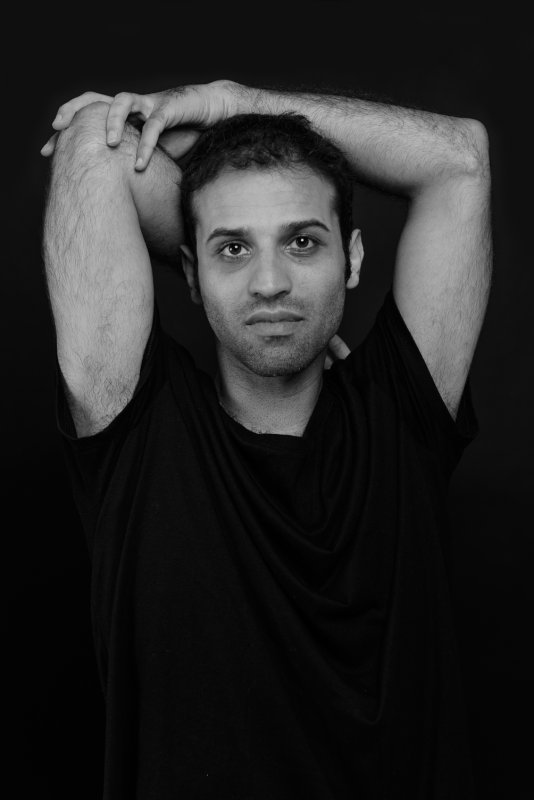
Name: Hamed Shafaneh Rad
Program: danceweb
Year: 2025
Coach: Raja Feather Kelly
Nationality: Iran
Country: France
Report:
First of all, I would like to express my gratitude to my dear mentor Raja Feather Kellyall and the lovely DanceWEBbers for the many beautiful moments we shared together.
A huge thank-you also goes to everyone who made this wonderful ImPulsTanz possible.
Vienna is a beautiful yet insincere city — and still, how could one not love it?
Its mesmerizing architecture, vibrant rhythm, lively nights, and distinctive atmosphere as a host city inevitably shape the experience of the festival itself.
Surely everyone describes this journey from their own perspective. For me, as someone whose life and artistic path in Europe have been extremely challenging and exhausting — living in a state of constant survival — programs like DanceWEB offer a precious opportunity to suspend all the pressure for a while and truly listen to myself and my heart.
I tried to fill the DanceWEB space with all my love, without worrying whether that love would return to me or not. I did everything my heart desired — and that alone keeps me deeply satisfied. Remembering those moments still brings me joy.
Living and dancing intensively for five continuous weeks was a profoundly enriching experience. It allowed me to refresh my spirit and motivation and to rediscover my own capacities. I met many wonderful and dear friends, and I am eager to see them again.
Based on my personal needs, artistic research, and after consulting former DanceWEBbers and studying the biographies and workshop descriptions of the artists, I selected a variety of workshops and research projects. Some of them had a deep impact on me, for which I am truly grateful.
****2025 Cohort Statement of Solidarity ****
As participants in DanceWEB, we encountered both the generosity and the structural challenges of the program. DanceWEB used to be known as a full scholarship programme. Today, the system requires that artists secure funding of 2,500 euros through the countries they live in, which makes it possible for us to come here. This model may have worked for a long time, but it now tends to benefit a select number of artists from wealthier, particularly Western European, countries with strong economies and a supportive attitude toward the arts. Artists from other regions, who lack such institutional structures, are often left to find their own means to arrive here. Beyond the co-funding fee itself, there are also visa, travel, and living costs to manage.
Many participants did not receive any state or private financial support to attend. In fact, 31 people paid from their own pockets a total of 14,435 euros. Some went into debt, some borrowed from friends and family, some relied on savings or crowdfunding. Others were given last-minute ultimatums to pay or lose their place. These are not isolated cases, they reflect a larger imbalance in access and opportunity.
A core strength of this festival is its international scope: it brings together artists from all over the world. This diversity is part of what defines ImPulsTanz, part of what makes it vibrant and unique. Yet, the artists who create this very diversity are often the ones who bear the greatest financial burden to be here. We do not all arrive equally.
This is not a personal grievance but a structural issue; one that disproportionately affects racialized and precarious artists. Everyone in this field is impacted by shifting funding systems and political uncertainty, but these inequalities are felt unevenly. As many cohorts before us have also observed, these concerns have been raised repeatedly over the years without sufficient structural response.
We therefore call on ImPulsTanz to publicly acknowledge these disparities and to take concrete steps toward addressing them. This includes developing a transparent and equitable funding model, creating dedicated support for artists without institutional backing, and ensuring that the program’s commitment to internationality is matched by genuine accessibility.
We urge the festival to engage directly with current and former DanceWEB participants in this process not only as beneficiaries, but as collaborators with valuable insight and lived experience. The sustainability and integrity of the program depend on it.
We are asking ImPulsTanz to adapt, respond, and act now in alignment with the values it promotes.
Carro Sharkey
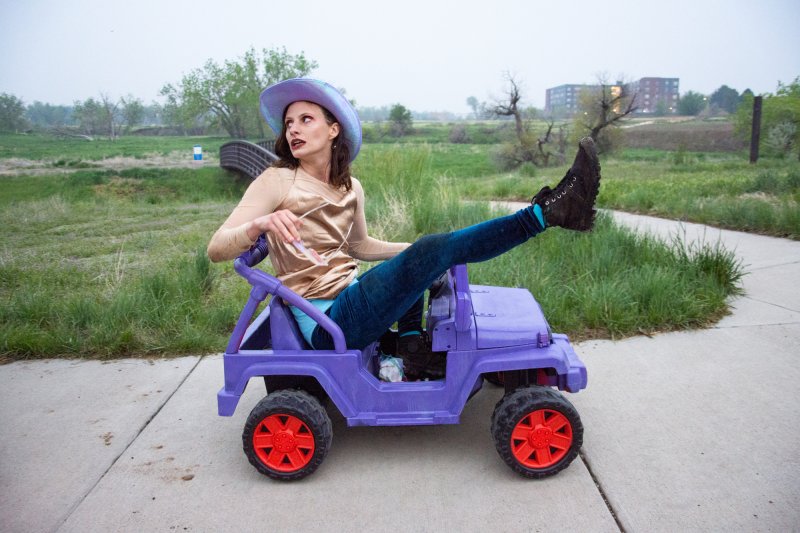
Name: Carro Sharkey
Program: danceweb
Year: 2025
Coach: Raja Feather Kelly
Nationality: United States
Country: Germany
Report:
In a mentoring meeting with Raja, he said “everyone keeps talking about what to do ‘post DanceWeb’, and the answer is I think you just keep going about your life”. This is the starkest part of it all, things don’t change immediately, there is rarely a singular pivotal moment in life. But I must say DanceWEB is maybe the closest thing to it.
When I first found out I had been chosen for DanceWEB after many years of applying, I was filled with excitement and a whole lot of confusion. After having combed through years of statements like what I am writing I was still left with the question of “would DanceWEB actually be worth it, with all of the structural inequities and problems brought up year after year?” especially as a dancer brand new to Europe where every moment not making money is a strike against a visa renewal, to not get paid for 5 weeks felt terrifying, even though I still had no real revenue stream and official visa at the time of acceptance. As an American, I knew automatically that there was no utility for me to even hope that I would gather this co-funding fee without crowdfunding. DanceWEB is a place where you see privileges and cultural understandings of money and funding crash into one another (conversations and insight I am grateful to have muddled through with my cohort). Some people moved under the assumption that DanceWEB/ImPulsTanz would be a support or even pay a per diem. And for some they did. Myself and others had no doubt about the fact that we were working within an institution that liked the idea of a “global village” in the 90s and ran with it for 30 years without ever taking time to reconsider.
All of this being said, I am so grateful that things did eventually work out to a degree that I was able to attend. I find the lessons of my time there still unfolding before me after many months away. I would not trade this summer for the world, angst and rain included. I hold so much love and admiration for my entire danceWEB cohort, and I still have a crush on each and every one of you, and I’m excited to once again, see how they all unfold.
The festival itself had much to offer- Jassem Hindi changed the way I thought about sound, Jonathan Burrows changed the way I thought about composition, Maria Scaroni and Olympia Bukkakis changed the way I thought about drag and somatics, Luigi Guerrieri’s performance changed the way I think about voice in performance, Melissa Guex and Michael Turinsky reaffirmed my love for moving audience through space, Adam Russell-Jones reaffirmed my love for theatricality, and I still find myself thinking about the magic of Pina Bausch’s Nelken.
ImPulsTanz was my first hint of what contemporary dance could look like outside of classical training or competition dance hidden in the pages of Dance Magazine in 2013. I’m so happy to have lived out that dream that was seeded 12 years ago this summer, now onto new dreams.
If you are in Berlin, please do not hesitate to reach out with questions, concerns, or anything of the like. I'm so serious. ig :) @carroshark
Solidarity Statement:
DanceWEB used to be known as a full scholarship programme. Today, the system requires that artists secure funding of 2,500 euros through the countries they live in, which makes it possible for us to come here. This model may have worked for a long time, but it now tends to benefit a select number of artists from wealthier, particularly Western European, countries with strong economies and a supportive attitude toward the arts. Artists from other regions, who lack such institutional structures, are often left to find their own means to arrive here. Beyond the co-funding fee itself, there are also visa, travel, and living costs to manage.
Many participants did not receive any state or private financial support to attend. In fact, 12 people paid from their own pockets a total of 21.435 euros. Some went into debt, some borrowed from friends and family, some relied on savings or crowdfunding. Others were given last-minute ultimatums to pay or lose their place. These are not isolated cases, they reflect a larger imbalance in access and opportunity.
A core strength of this festival is its international scope: it brings together artists from all over the world. This diversity is part of what defines ImPulsTanz, part of what makes it vibrant and unique. Yet, the artists who create this very diversity are often the ones who bear the greatest financial burden to be here. We do not all arrive equally.
This is not a personal grievance but a structural issue; one that disproportionately affects racialized and precarious artists. Everyone in this field is impacted by shifting funding systems and political uncertainty, but these inequalities are felt unevenly. As many cohorts before us have also observed, these concerns have been raised repeatedly over the years without sufficient structural response.
We therefore call on ImPulsTanz to publicly acknowledge these disparities and to take concrete steps toward addressing them. This includes developing a transparent and equitable funding model, creating dedicated support for artists without institutional backing, and ensuring that the program’s commitment to internationality is matched by genuine accessibility.
We urge the festival to engage directly with current and former DanceWEB participants in this process not only as beneficiaries, but as collaborators with valuable insight and lived experience. The sustainability and integrity of the program depend on it.
We are asking ImPulsTanz to adapt, respond, and act now in alignment with the values it promotes.
Aaron Josi Sternbauer
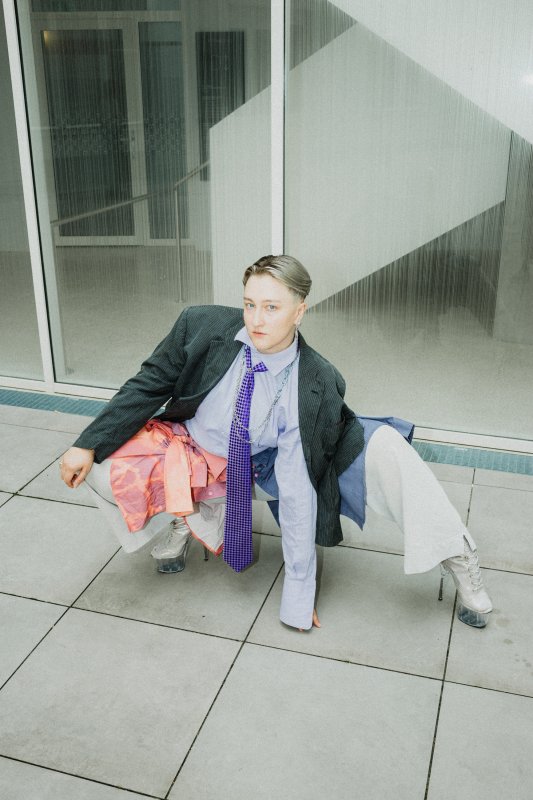
Name: Aaron Josi Sternbauer
Program: danceweb
Year: 2025
Coach: Raja Feather Kelly
Nationality: Austria
Country: Austria
Report:
AJ: "Hi loves! I was inspired by the people sharing poems, so I also want to share one that resonates with me 🩷
Harryette Mullen (1953)
Pulling out of the old scarred skin
(old rough thing I don't need now
I strip off
slip out of
leave behind)
I slough off dead scales
flick skin flakes to the ground
Shedding toughness
peeling layers down
to vulnerable stuff
And I'm blinking off old eyelids
for a new way of seeing
By the rock I rub against
I'm going to be tender again
Raja: What does this poem mean to you?
AJ: My body has been hurting and changing a lot within just a few weeks, which makes me question myself and my mechanisms. My body and mind are so interconnected that my “just sore” muscles don’t feel purely physical — it feels like a transformative process.
I imagine an animal that’s growing, shedding skin that no longer fits.
I’ve never moved or trained this intensely in my life, nor been in such large groups for so long — that was scary at first, but I see growth now.
Instead of trying to hold onto old patterns and that old skin, it’s time to shed — to give my newer, rawer, more vulnerable version space to breathe and shine.
And yes, it’s painful. But through movement, it becomes easier to let go of the old skin — to dance it off. 🩷
That’s what this poem means to me."
Impulstanz… Danceweb… lifelong burning… privilege… systems… power… white supremacy… dancing… high culture… KUNST… what art is worthy… physicality… musicality… vulnerability… mascs… masc 4 persona 4 drag 4 clown 4 camp… confusion… school-camp-vibe… who are you?! old friends… new friends… will we stay friends? seeing my home from a new angle… bubble… feeling like a queer gang occupying Vienna with pink bikes.
This summer was a rollercoaster I’m grateful to have ridden, even though I’m not yet ready to process it all. Five weeks felt long, but they flew by. I learned so much — from individuals, from the group, from our mentor, my friends, and myself.
Yet this scholarship is such a privilege. Many of us tried for several years to get in — and some didn’t.
It’s a unique experience, and I’m happy to have lived it.
I’m happy to have built stronger connections with people I already knew, and to have opened myself to new ones — curious where they might lead.
I’m grateful, too, to my body and my emotional mind, both of which were challenged in so many good ways.
I couldn’t have imagined a better mentorship than the one we had with Raja. Raja knows how to teach confidence — and not the performative kind, but the one that grows from the inside out.
Also, if you are a future Dancewebber: I recommend to read through the reports from previous years.
What hasn’t changed are the systemic flaws that have been addressed year after year.
I encourage you: gather as a group, demand space to talk. Impulstanz needs structural change — not just to accessorize itself with beautiful tokens, but to truly take the opportunity to transform systems for the better.
The intentions are good, but the execution still lacks.
——
****2025 Cohort Statement ****
As participants in DanceWEB, we encountered both the generosity and the structural challenges of the program. DanceWEB used to be known as a full scholarship programme. Today, the system requires that artists secure funding of 2,500 euros through the countries they live in, which makes it possible for us to come here. This model may have worked for a long time, but it now tends to benefit a select number of artists from wealthier, particularly Western European, countries with strong economies and a supportive attitude toward the arts. Artists from other regions, who lack such institutional structures, are often left to find their own means to arrive here. Beyond the co-funding fee itself, there are also visa, travel, and living costs to manage.
Many participants did not receive any state or private financial support to attend. In fact, 12 people paid from their own pockets a total of 21.435euros. Some went into debt, some borrowed from friends and family, some relied on savings or crowdfunding. Others were given last-minute ultimatums to pay or lose their place. These are not isolated cases, they reflect a larger imbalance in access and opportunity.
A core strength of this festival is its international scope: it brings together artists from all over the world. This diversity is part of what defines ImPulsTanz, part of what makes it vibrant and unique. Yet, the artists who create this very diversity are often the ones who bear the greatest financial burden to be here. We do not all arrive equally.
This is not a personal grievance but a structural issue; one that disproportionately affects racialized and precarious artists. Everyone in this field is impacted by shifting funding systems and political uncertainty, but these inequalities are felt unevenly. As many cohorts before us have also observed, these concerns have been raised repeatedly over the years without sufficient structural response.
We therefore call on ImPulsTanz to publicly acknowledge these disparities and to take concrete steps toward addressing them. This includes developing a transparent and equitable funding model, creating dedicated support for artists without institutional backing, and ensuring that the program’s commitment to internationality is matched by genuine accessibility.
We urge the festival to engage directly with current and former DanceWEB participants in this process not only as beneficiaries, but as collaborators with valuable insight and lived experience. The sustainability and integrity of the program depend on it.
We are asking ImPulsTanz to adapt, respond, and act now in alignment with the values it promotes.
Elvan Tekin
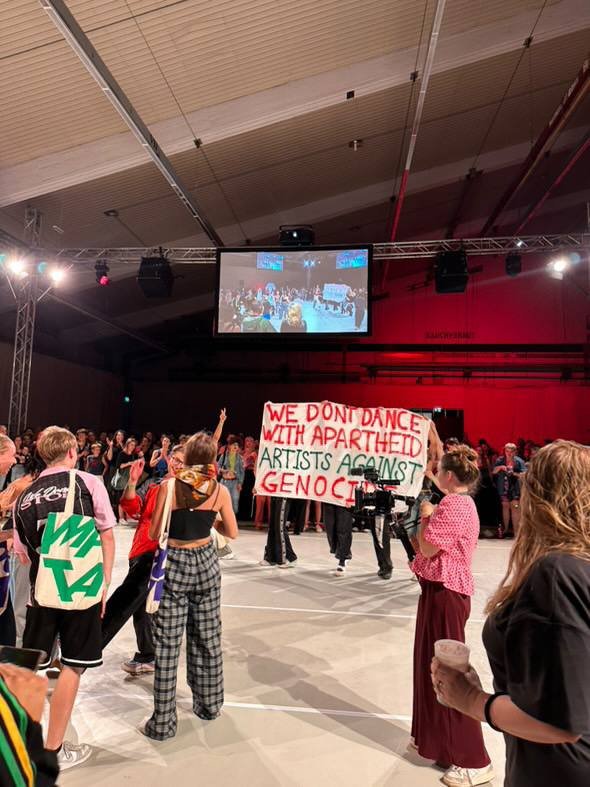
Name: Elvan Tekin
Program: danceweb
Year: 2025
Coach: Raja Feather Kelly
Nationality: Turkey
Country: Germany
Report:
You can read the speech given by the Danceweb Cohort 2025 during the closing Gala event:
We wanted to offer a warm thank you to Carl and the entire impulstanz team. This is an incredible festival that you manage to keep going, bringing together artists from all around the world to share their work, to exchange in workshops and in social life. There is very little like it in the world, and we are so thankful to be here with you. It's a meeting point for artists worldwide, and it's quite special for us to be here. Tonight is about celebrating the financial support which allows us to be here. Danceweb is a scholarship program, and is not possible without the support from our host countries, so to those countries who supported this journey we also want to say thank you. You have impacted our careers for a lifetime to come.
And, we have to mention as well, that many of us did not receive any financial support from state or private institutions to be here. In fact 31 people paid from their own pocket a total of 14,435 euros. A few still are in payment programs to impulstanz.
Danceweb was created with the intention of being a full scholarship programme. The system requires that artists secure funding of 2500 euros through partnerships with the countries they live in, which makes it possible for us to come here. This may have worked well for a long time, however now this seems to mostly work for a select number of artists from wealthier countries, and specifically western european countries. Countries which benefit both from strong economies and a generous sensibility towards the arts. Those that do not have that privilege to arrive from these countries are forced to come up with their own means to arrive here. Not only the co-funding fee becomes an issue, but also visa, travel, and food expenses.
While Impulstanz attempts to treat all artists entering danceweb equally, we are not equal and come from a variety of circumstances and contexts.There are those of us who have gone into debt to be here right now, who worry about not being able to afford food, who borrow from friends and family to arrive here, taken from savings, and countless go fund me campaigns were made. This means that many artists, without the possibility of support from their home countries are asked to do the groundwork to access the festival. This exacerbates the inequality in the political situation, what artists can access Impulstanz, and what their experience is like when they arrive.
A part of what makes this festival so special is how international it is, that it attracts artists from all over the world. This internationality is a part of its brand. It's a very "diverse," festival. However, the artists who produce this branding of diversity are often the ones who have to pay from their own pocket to be here. We do not arrive here equally.
This is a structural issue that unevenly impacts racialized and precarious artists. Everyone in this room is impacted by shifting funding structures and political circumstances, we are asking Impulstanz to adapt and respond to it. We are not here to blame the impulsetanz team for this. This is the situation we find ourselves in collectively. And we want to be here together. To dance and to drink a glass of wine at the same table with a feeling of care and belonging. Simply, we want to enjoy it together.
Therefore, What we ask is this, Impulstanz, would you kindly make a pledge to support to give the roughly 15,000 euros for the artist in the danceweb cohort who did not receive co-funding? At least 5,000 euros of this is urgent, as there are artists who are struggling to pay for the basic necessities and even the program. This is one of the realities of our economic and political situation.
We ask you for this money in order to truly be able to live in the world that we are performing and pretending to exist in. This is an ethical imperative, right here and now. Can you make a pledge to help us find this co-funding in the budget of the festival or through sponsors, and can you also pledge that in future generations of danceweb this can be more thoughtfully, carefully, and considerately accounted for?
Eliza Trefas
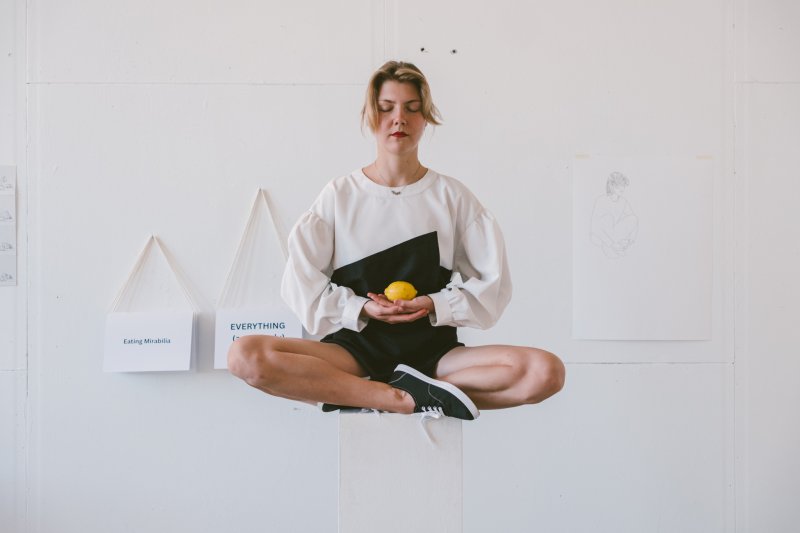
Name: Eliza Trefas
Program: danceweb
Year: 2025
Coach: Raja Feather Kelly
Nationality: Romania
Country: Romania
Report:
First of all thanks to everyone involved in making this happen. Thanks to the team for being responsive and helping when in a situation of need. Overall I enjoyed most workshops I booked at ImPulsTanz within danceWeb, and I highly appreciate the clarity and flexibility (when needed) in regards to the workshop booking.
I'm highly grateful for getting to know the artistic practice of artists I don't easily meet and even make good connections with some. For ex., after taking a research project in ImPulsTanz, the artist kindly invited me further into their research process and future performance. Highly grateful! Grateful for the bikes and all the shows one can see.
The downside, as everyone knows and has probably repeatedly pointed out, it's the very overwhelming schedule. Especially for artists like me, coming from a country that is less in touch with the international scene, it's highly unavoidable to not book all the works one wishes to see/do and has no other occasion for doing so. At some point the exhaustion takes over and makes the participation in danceweb more painful than productive. Missing classes, becoming unsocial, depleted of energy and sometimes even getting ill. From my perspective it would be helpful to have one day per week free of workshops so one can peacefully rest and digest all the information from workshops and shows. Another downside is that, by having such a full schedule and being always on the run, we don't analyze anymore the art that we see/do, it's not a space that integrates also artistic reflection but stays limited more to consumption. Both the festival's content and the participants can become diminished in artistic quality in such a rushed and time limited festival.
The meetings with the mentor sometimes were too long or too late, in the context of the festival. It seems that danceweb wants to connect people but.. I don't think connection can happen voluntarily or on purpose. That's much more likely later in workshops and at shows.
Thank you for everything,
Eliza Trefas
Alisson Valentina Trigos Sanabria
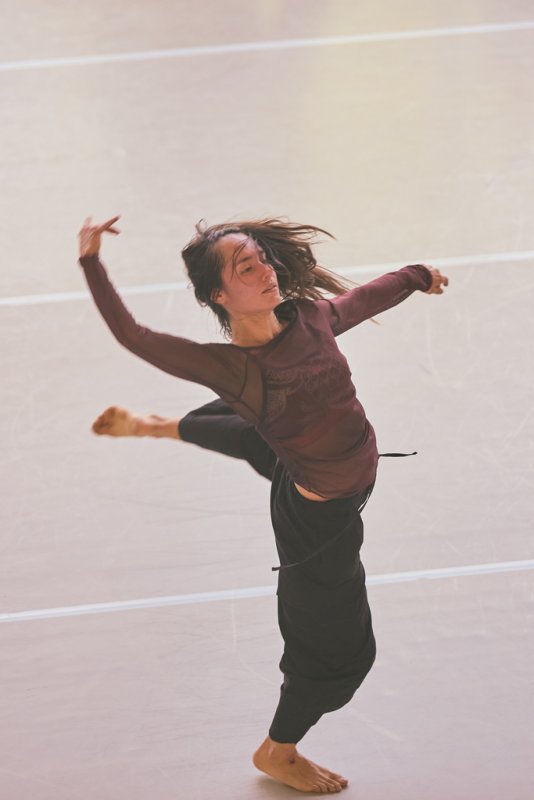
Name: Alisson Valentina Trigos Sanabria
Program: danceweb
Year: 2025
Coach: Raja Feather Kelly
Nationality: Colombia
Country: Colombia
Report:
Heart to Voice: A DanceWeb Reflection
From the heart rises the voice, from the voice, words — and from words, action. Sincerity and honesty walk together, like breath and movement. I am a woman who has proven to herself that the best within her can awaken the best in others — those whose discipline, devotion, and love have become art.
The DANCEWEB experience is far more than an educational or professional journey; it is an act of reverence — a living pilgrimage traced across the most luminous and enduring festival of contemporary dance in Europe. As Victor Hugo wrote, “To learn to read is to light a fire,” and so it is to dance among many worlds — to ignite understanding through the body, to let perception move before thought.
I learned to admire the multiplicity of cultures, the fabric of new identities, the delicate art of coexistence — where everyone is free to be as they believe themselves to be. Most of all, I learned not to follow merely the path of ‘what I like,’ but to venture into the unknown, where true learning and transformation reside. There, in that deeper field of courage, difference becomes dialogue, and discovery becomes dance.
During my first week, I attended performances that aligned with my taste; by the second, I sought those that unsettled me, that I believed I would not understand or enjoy. And that was when life truly happened. I found myself witnessing new architectures of performance — improvisations sculpted with structure and clarity, narratives that questioned comfort and convention. One particular work, Lamentations by Lucca Bonnamore, stood before me as a mirror of raw humanity — intimate, fearless, and disturbingly beautiful. It revealed how narrow the path of comfort can be, how essential it is to walk into the depths and heights of experience to truly encounter oneself.
Art, I realized, is not a refuge — it is a responsibility. It demands truth. It demands that we humanize through creation, that we awaken perception so that thought, dialogue, and compassion may take form. As Ayn Rand wrote, “Art is the technology of the soul.”
Through DANCEWEB, I witnessed the luminous worlds built by extraordinary artists and teachers — Laura Arís, Germán Jáuregui, Joe Alegado, José Agudo, Terence Lewis, Risa Steinberg, Gregory Maqoma, Damien Jalet, Aimilios Arapoglou — each one a garden of movement, sowing seeds of honesty and devotion in every dancer. Their classes were not only training grounds but living philosophies: discipline transformed into freedom, repetition into revelation.
Each tool they offered remains within me — some as technique, others as light. July and August of 2025 will forever echo in my body; time flew, yet every sensation remains engraved in muscle and memory. If you, reader of the future, become part of DANCEWEB, remember: to be wise is not to choose only what you like — it is to risk, to sweat, to burn.
Dance until your muscles tremble with exhaustion and grace. Fall and fly with Laura Arís. Run wild with Germán Jáuregui, where animality meets the stillness of a turtle’s pulse. Let the rainbows of invisible music embrace you with Joe Alegado, and discover courage in the hands of partners guided by Alexander and Emma. Above all, recognize yourself in the eyes reflected before you — that splendid mirror of the other who dances with you.
My name is Alisson Trigos, and if you wish to follow this journey, visit my website [@alissontrigosart], where I share:
1) A 45-minute documentary of my DANCEWEB ImPulsTanz experience, with interviews, shoots of dancers, theaters, meetings, parties etc.
2) Reflections on the performances I witnessed,
3) Writings on the workshops that shaped me.
And yes — don’t forget the parties. Attend at least three; they are the night pulse of ImPulsTanz, the shadow where laughter and fatigue merge, the place where bread, joy, and sweat coexist — all fermented with care by the ImPulsTanz team.
Be grateful — first to yourself, for your courage, and then to the entire ImPulsTanz community, including its director Karl Regensburger, who for over 42 years has cultivated this global garden of contemporary dance. They are generous, visionary people who understand that dance is not part of life — dance is life itself.
42, 43, 45, and infinite years more for ImPulsTanz — for us, for those who came before, and for those yet to come.
Sincerity and honesty — that is the true value of ImPulsTanz, and my greatest epiphany as dancer, performer, choreographer, audience, and friend.
“To love beauty is to see light.” — Victor Hugo
“The question isn’t who is going to let me; it’s who is going to stop me.” — Ayn Rand
VIVIR ES ESFORZARSE Y ESFORZARSE ES VIVIR
Saharla Vetsch
Name: Saharla Vetsch
Program: danceweb
Year: 2025
Coach: Raja Feather Kelly
Nationality: United States
Country: United States
Report:
DanceWEB was a transformative fever dream, and you just had to be there. The gift of this experience was constant awe at the desire of all these people to gather for the love of dance. Fully and unabashedly exploring prompts such as moving from each chakra, singing into someone’s bones, mimicking a piece of paper someone else controls, telling a story to strangers as they dance it back to you. The 2 hour silent unprompted exploration of objects that created a solo with two sticks, the deep focus I found in codifying and deepening my house dance vocabulary, the surprising ease of taking “dance as inclusion” in German and it being the best research and learning of my time in Vienna. So much joy and play came out of these moments of research which may seem odd and uncomfortable for folks on the outside. Everyone spoke the language of dance and understood it was sacred. Artists are brilliant committed souls, and I got to be saturated in witnessing and experiencing this for 5 weeks. Despite 2-3 2 and a half hour workshops a day I found myself in deep self transformation and solo thought. I found power in myself that was already there but this experience confirmed that and made me ready to dive into producing my first evening length work back home.
DanceWEB Solidarity Statement 2026
As participants in DanceWEB, we encountered both the generosity and the structural challenges of the program. DanceWEB used to be known as a full scholarship programme. Today, the system requires that artists secure funding of 2,500 euros through the countries they live in, which makes it possible for us to come here. This model may have worked for a long time, but it now tends to benefit a select number of artists from wealthier, particularly Western European, countries with strong economies and a supportive attitude toward the arts. Artists from other regions, who lack such institutional structures, are often left to find their own means to arrive here. Beyond the co-funding fee itself, there are also visa, travel, and living costs to manage.
Many participants did not receive any state or private financial support to attend. In fact, 12 people paid from their own pockets a total of 21.435 euros. Some went into debt, some borrowed from friends and family, some relied on savings or crowdfunding. Others were given last-minute ultimatums to pay or lose their place. These are not isolated cases, they reflect a larger imbalance in access and opportunity.
A core strength of this festival is its international scope: it brings together artists from all over the world. This diversity is part of what defines ImPulsTanz, part of what makes it vibrant and unique. Yet, the artists who create this very diversity are often the ones who bear the greatest financial burden to be here. We do not all arrive equally.
This is not a personal grievance but a structural issue; one that disproportionately affects racialized and precarious artists. Everyone in this field is impacted by shifting funding systems and political uncertainty, but these inequalities are felt unevenly. As many cohorts before us have also observed, these concerns have been raised repeatedly over the years without sufficient structural response.
We therefore call on ImPulsTanz to publicly acknowledge these disparities and to take concrete steps toward addressing them. This includes developing a transparent and equitable funding model, creating dedicated support for artists without institutional backing, and ensuring that the program’s commitment to internationality is matched by genuine accessibility.
We urge the festival to engage directly with current and former DanceWEB participants in this process not only as beneficiaries, but as collaborators with valuable insight and lived experience. The sustainability and integrity of the program depend on it.
We are asking ImPulsTanz to adapt, respond, and act now in alignment with the values it promotes.
Andrea Vezga Acevedo
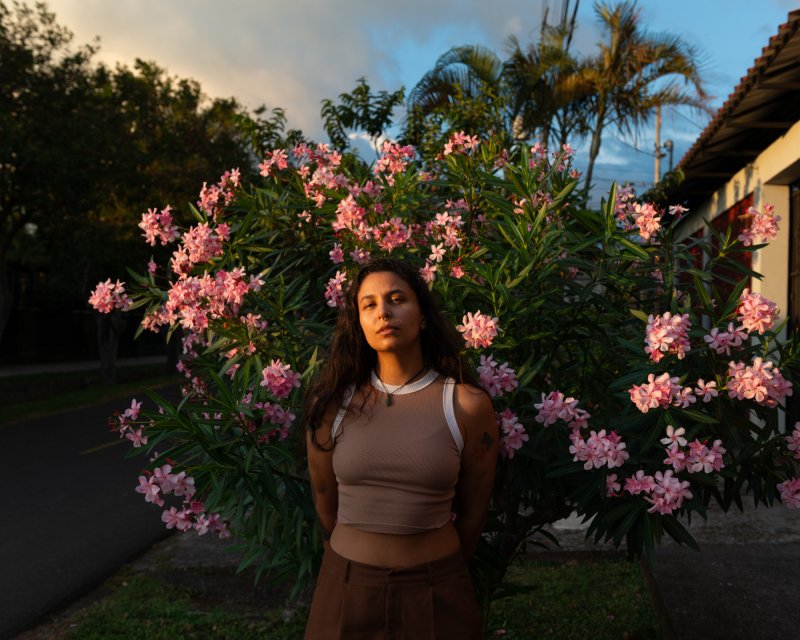
Name: Andrea Vezga Acevedo
Program: danceweb
Year: 2025
Coach: Raja Feather Kelly
Nationality: Costa Rica
Country: Austria
Report:
Being part of DanceWeb was overwhelming at times, but also incredibly satisfying. The program gave me the chance to see and do so much. Not every workshop I took felt fulfilling in the moment, but even those experiences became part of my learning. I started to see them as valuable in their own way, reminding me that growth doesn’t always come from what feels immediately rewarding.
One of the highlights for me was the people. Connecting with the group and getting to know artists from so many different places was truly special. I feel very grateful to have built those relationships and to now be part of that wider community. Another part I really valued was seeing so many performances, which opened up my understanding and challenged me to expand the way I experience and think about dance.
I also appreciated the resources that were available to us, like physiotherapy and the studio space. At the same time, I sometimes found it hard to manage daily life around the rhythm of the program. Some people managed to cook regularly at the dorms, but for me it was difficult with the long days, late nights, and early mornings. Having the kitchen space in the DanceWeb room even just to warm up food or make tea, would have made a big difference. The discounts at Arsenal vendors were helpful, but over four weeks the costs still added up. If a kitchen isn’t possible, I think more accessible food options for scholarship recipients would go a long way in supporting us.
Securing funding to be here was also a challenge. Like many others have shared in the past, the process felt stressful and sometimes overwhelming. I wish there were more transparent ways to address the structural inequalities that exist, so that this part of the journey could feel less like a burden and more like an encouraging step toward the program.
****2025 Cohort Statement ****
As participants in DanceWEB, we encountered both the generosity and the structural challenges of the program. DanceWEB used to be known as a full scholarship programme. Today, the system requires that artists secure funding of 2,500 euros through the countries they live in, which makes it possible for us to come here. This model may have worked for a long time, but it now tends to benefit a select number of artists from wealthier, particularly Western European, countries with strong economies and a supportive attitude toward the arts. Artists from other regions, who lack such institutional structures, are often left to find their own means to arrive here. Beyond the co-funding fee itself, there are also visa, travel, and living costs to manage.
Many participants did not receive any state or private financial support to attend. In fact, 31 people paid from their own pockets a total of 14,435 euros. Some went into debt, some borrowed from friends and family, some relied on savings or crowdfunding. Others were given last-minute ultimatums to pay or lose their place. These are not isolated cases, they reflect a larger imbalance in access and opportunity.
A core strength of this festival is its international scope: it brings together artists from all over the world. This diversity is part of what defines ImPulsTanz, part of what makes it vibrant and unique. Yet, the artists who create this very diversity are often the ones who bear the greatest financial burden to be here. We do not all arrive equally.
This is not a personal grievance but a structural issue; one that disproportionately affects racialized and precarious artists. Everyone in this field is impacted by shifting funding systems and political uncertainty, but these inequalities are felt unevenly. As many cohorts before us have also observed, these concerns have been raised repeatedly over the years without sufficient structural response.
We therefore call on ImPulsTanz to publicly acknowledge these disparities and to take concrete steps toward addressing them. This includes developing a transparent and equitable funding model, creating dedicated support for artists without institutional backing, and ensuring that the program’s commitment to internationality is matched by genuine accessibility.
We urge the festival to engage directly with current and former DanceWEB participants in this process not only as beneficiaries, but as collaborators with valuable insight and lived experience. The sustainability and integrity of the program depend on it.
We are asking ImPulsTanz to adapt, respond, and act now in alignment with the values it promotes.
Kim Manuel Walz
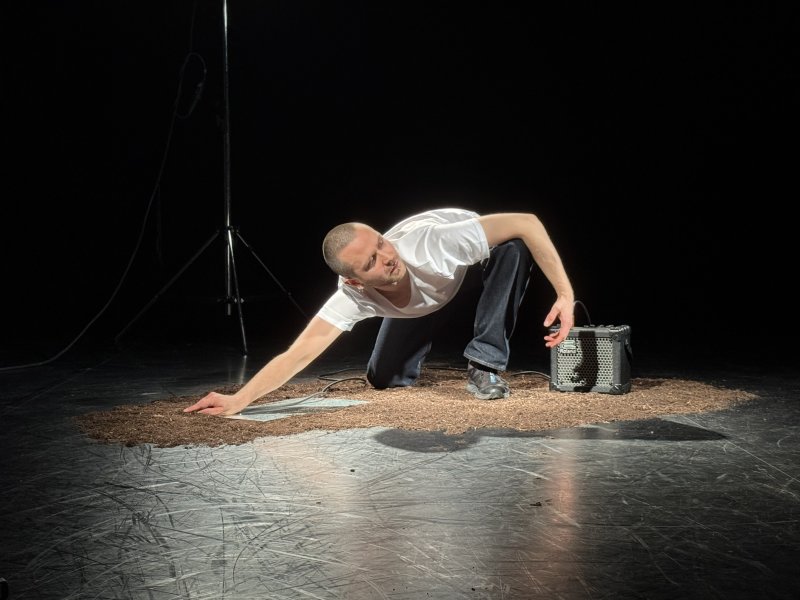
Name: Kim Manuel Walz
Program: danceweb
Year: 2025
Coach: Raja Feather Kelly
Nationality: Germany
Country: Germany
Report:
The time in Vienna was intense – perhaps too intense?
First of all, I need to outline the overall situation.
When I received the acceptance for the danceWEB program, I could hardly believe it – and yet there it was: that moment when a door opens without knowing what awaits on the other side.
I arrived in Vienna at a time when many things in my life were in motion. Four days before my departure, I had given up my apartment in Berlin – a process that stirred up many emotional layers. At the same time, I was standing on the edge of a major transition: the beginning of my Master’s studies in Choreography in Montpellier – right after the danceWEB program – for which I had been accepted a few weeks earlier. Without a classical educational background, but with a long, restless, and determined path full of practice and shifting roles – mostly offstage, in assistant or production positions for other artists – I now found myself facing two milestones I would not have dared to dream of a few years ago.
The danceWEB program fell precisely into this in-between space – between departure and arrival, exhaustion and motivation, doubt and possibility.
Since I had my dog with me – a dream that came true in the summer of 2024 – I needed to find accommodation for both of us, so we moved five times during the five weeks. In parallel, there was the organizational chaos of preparing my move to France, as well as unresolved matters from Berlin. On top of that came the financial strain accompanying all these changes – the existential insecurity that emerged, not least because I had not received any additional funding for the danceWEB program. And amidst all this: the hypertrophic danceWEB itself – with its workshops, encounters, performances, and conversations, all interwoven into a dense experience. I was overwhelmed, physically and mentally, and couldn’t enjoy the experience as deeply as I wished to – or so I thought. Perhaps I had already sensed beforehand that this program might be one step too many in the chain of new beginnings. But who turns down danceWEB lightly, without knowing if such an opportunity will ever return?
Despite – or perhaps because of – all these turbulences, the program became one of the most valuable experiences of my life. The workshops, the encounters, the performances – they were not only inspiring but also confronting. I learned what sustains me and what overwhelms me, which forms of collaboration support me and where I lose myself. For me, danceWEB was not a linear program but a condensation – a mirror of my life situation, my decisions, my restlessness.
Sometimes I think I would like to do it again – with more calm, more space, less chaos. But perhaps it was precisely this sense of overload that brought me to a point of greater clarity. danceWEB gave me perspective – not in terms of direction, but in terms of breadth.
I leave this experience with the realization – once again, but different – that chaos can also be a form of structure, if you learn to listen to it, to allow it, and to move from one station to the next, staying present in the here and now.
You’re doing great, however you do.
Cassie Wang
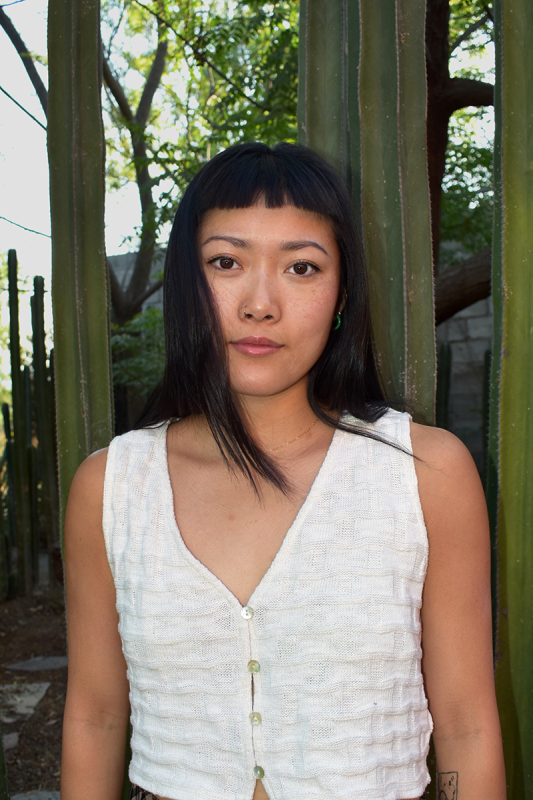
Name: Cassie Wang
Program: danceweb
Year: 2025
Coach: Raja Feather Kelly
Nationality: United States
Country: United States
Report:
Five weeks and two full moons… oh, to measure time and transformation by the moon—perfect bookends for a spectacular, blurry, overwhelming, saturated blip in time. It felt both like an entire lifetime and like it never happened.
Raja prefaced, from the second our danceWEB journeys began, that we chose ourselves. I found danceWEB to be exactly that—a continuous investment and attunement to oneself and one’s interests—and I don’t think I could have fully understood what this meant until I was in it. It’s a gift to be able to invest in yourself so deeply, and I tried to not take that lightly. At times, it feels selfish to nurture myself and my curiosities so intently, but I trust that this investment will be spread and shared and worthwhile and meaningful in some way or another. I felt a lot of gratitude for all of the choice and access I had within the festival: to workshops, performances, parties, to change my mind, to belong to a community, to dance. I had practically no responsibilities to anyone except myself during danceWEB, and it was a gift to not feel obligated to my life, to shed that temporarily and step into this one fully.
I was surprised by how confronted I felt by myself during those five weeks, constantly encountering my tendencies, habits, instincts reflected back to me. It was a dance of embracing and challenging these habits. I loved every second. I felt uncomfortable a lot of the time, but I never wished to be somewhere else. I loved the newness, all of the experiences I was having, and observing the cacophony of dance, connections, feelings, and ideas swirling around me. Natural chemistries exist, people operating at different wavelengths and frequencies—the way I would slip into harmony or dissonance against others felt potent, clear, undeniable.
And as much as it was about the dancing I did and the workshops I took and the shows that I saw, it was also about the people and the city and summer. Our last week there was so magical, biking around in our big, pink fleets from the arsenal to the river to the lounge to the river. Basking in the sun with beers and our assemblage of snacks, from sunset to sunrise. Go to the river, cook with each other, go to Prater, hop between room to room, and try not to wait until the end to do it. I wish I had more time like the end, but maybe it was only good because it was the end.
I’m grateful for my cohort’s kindness and inclusivity and togetherness that was present to the end—I would have had a much worse experience without this. I wish for all cohorts that I will be a part of in the future to be as good as this one.
There was a lot of talk about how this is a Life Changing Event, about how I’d be transformed into a new me. I wonder if this is true. I met a former danceWEBber who did the program 10 years ago, and they assured me that it was true (unprompted)—that this experience did change their life entirely. So I’ll believe it, and I’ll wonder where I’ve departed from and where I’m bound.
Some writings from my journal:
It’s a constant balance of coming to terms with myself/who I am and wanting to change myself
I think i hate somatic work?
What the fuck how do you become an icon
Ok bet I’m about to really think about things & reflect & journal & record & make good on my goals & my PLAN that I laid out & I’m NOT GOING TO SUCCUMB TO MY HUMANLY NEEDS OF SLEEP OR FOOD OR ENTERTAINMENT
To relate to the world through the body—we love it so we keep investing in this way of receiving & interpreting the world
Paraphrased from a friend, "As artists, we get to say yes to our desires everyday. Saying yes, following, pursuing them, while so many others have to shut them away. Chasing desire keeps you young, I guess.
Also, [remember] that having desires is good and not a bad thing and a reminder that you want to keep living and are being alive!"
Plunge.
Plummet.
Fly.
The joy of dance overtook me! For real!
DESIRE TO STEP OUTSIDE OF MY DANCING PERFORMING BODY OF KNOWLEDGE & THE JUDGEMENT IT HOLDS
sensory junkie forever
WE HAVE THE AGENCY TO CONTINUALLY RECREATE OURSELVES
In all honesty, I liked being taken away from my own life.
what i found:
Rules are merely propositions and don’t need to be regarded
Horizontal learning
Proposals!
Constant confrontation of the Self
opening portals for collective imagining is so generative
The feeling of giving
cosmic timing/the universe
Permission to be opaque
(surprisingly) exactly what I wanted to find (as per my letter of interest)
Floaty, lofty, untethered me
****2025 Cohort Statement ****
As participants in DanceWEB, we encountered both the generosity and the structural challenges of the program. DanceWEB used to be known as a full scholarship programme. Today, the system requires that artists secure funding of 2,500 euros through the countries they live in, which makes it possible for us to come here. This model may have worked for a long time, but it now tends to benefit a select number of artists from wealthier, particularly Western European, countries with strong economies and a supportive attitude toward the arts. Artists from other regions, who lack such institutional structures, are often left to find their own means to arrive here. Beyond the co-funding fee itself, there are also visa, travel, and living costs to manage.
Many participants did not receive any state or private financial support to attend. In fact, 12 people paid from their own pockets a total of 21.435€. Some went into debt, some borrowed from friends and family, some relied on savings or crowdfunding. Others were given last-minute ultimatums to pay or lose their place. These are not isolated cases, they reflect a larger imbalance in access and opportunity.
A core strength of this festival is its international scope: it brings together artists from all over the world. This diversity is part of what defines ImPulsTanz, part of what makes it vibrant and unique. Yet, the artists who create this very diversity are often the ones who bear the greatest financial burden to be here. We do not all arrive equally.
This is not a personal grievance but a structural issue; one that disproportionately affects racialized and precarious artists. Everyone in this field is impacted by shifting funding systems and political uncertainty, but these inequalities are felt unevenly. As many cohorts before us have also observed, these concerns have been raised repeatedly over the years without sufficient structural response.
We therefore call on ImPulsTanz to publicly acknowledge these disparities and to take concrete steps toward addressing them. This includes developing a transparent and equitable funding model, creating dedicated support for artists without institutional backing, and ensuring that the program’s commitment to internationality is matched by genuine accessibility.
We urge the festival to engage directly with current and former DanceWEB participants in this process not only as beneficiaries, but as collaborators with valuable insight and lived experience. The sustainability and integrity of the program depend on it.
We are asking ImPulsTanz to adapt, respond, and act now in alignment with the values it promotes.
jee chan
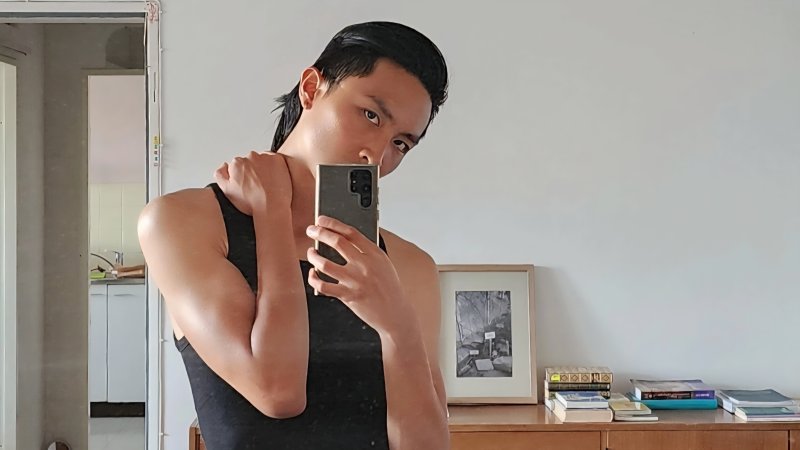
Name: jee chan
Program: danceweb
Year: 2025
Coach: Raja Feather Kelly
Nationality: Singapore
Country: Germany
Report:
"For in a very concrete way Europe has stuffed herself inordinately with the gold and raw materials of the colonial countries ... from all these continents, under whose eyes Europe today raises up her tower of opulence, there has flowed out for centuries toward that same Europe diamonds and oil, silk and cotton, wood and exotic products. Europe is literally the creation of the Third World. The wealth which smothers her is that which was stolen from the underdeveloped peoples. The ports of Holland, the docks of Bordeaux and Liverpool were specialized in the Negro slave trade, and owe their renown to millions of deported slaves. So when we hear the head of a European state declare with his hand on his heart that he must come to the aid of the poor underdeveloped peoples, we do not tremble with gratitude. Quite the contrary; we say to ourselves: It's just a reparation which will be paid to us." — Frantz Fanon, The Wretched of the Earth (1961)
[ 2025 Cohort Statement ]
As participants in danceWEB, we encountered both the generosity and the structural challenges of the program. danceWEB used to be known as a full scholarship programme. Today, the system requires that artists secure funding of 2,500 euros through the countries they live in, which makes it possible for us to come here. This model may have worked for a long time, but it now tends to benefit a select number of artists from wealthier, particularly Western European, countries with strong economies and a supportive attitude toward the arts. Artists from other regions, who lack such institutional structures, are often left to find their own means to arrive here. Beyond the co-funding fee itself, there are also visa, travel, and living costs to manage.
Many participants did not receive any state or private financial support to attend. In fact, 12 people paid from their own pockets a total of 21,435 euros. Some went into debt, some borrowed from friends and family, some relied on savings or crowdfunding. Others were given last-minute ultimatums to pay or lose their place. These are not isolated cases, they reflect a larger imbalance in access and opportunity.
A core strength of this festival is its international scope: it brings together artists from all over the world. This diversity is part of what defines ImPulsTanz, part of what makes it vibrant and unique. Yet, the artists who create this very diversity are often the ones who bear the greatest financial burden to be here. We do not all arrive equally.
This is not a personal grievance but a structural issue; one that disproportionately affects racialized and precarious artists. Everyone in this field is impacted by shifting funding systems and political uncertainty, but these inequalities are felt unevenly. As many cohorts before us have also observed, these concerns have been raised repeatedly over the years without sufficient structural response.
We therefore call on ImPulsTanz to publicly acknowledge these disparities and to take concrete steps toward addressing them. This includes developing a transparent and equitable funding model, creating dedicated support for artists without institutional backing, and ensuring that the program’s commitment to internationality is matched by genuine accessibility.
We urge the festival to engage directly with current and former danceWEB participants in this process not only as beneficiaries, but as collaborators with valuable insight and lived experience. The sustainability and integrity of the program depend on it.
We are asking ImPulsTanz to adapt, respond, and act now in alignment with the values it promotes.
Justin de Luna
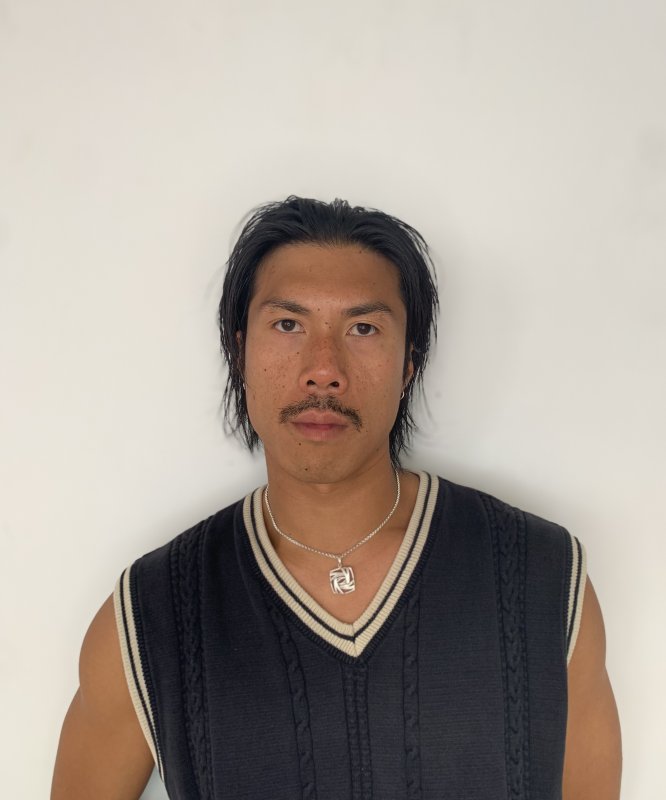
Name: Justin de Luna
Program: danceweb
Year: 2025
Coach: Raja Feather Kelly
Nationality: Canada
Country: Canada
Report:
The word is appetite.
It starts when you make the choice to apply — beginning by making yourself appetizing.
Hoping that you make the selection, while simultaneously articulating what you’re hungry for, your motivation.
For some, this flops the first time. Perhaps even the second.
Do you really want this?
Once you get in and decide to do it, you agree to jump through the hoops to secure the finances to fund your participation.
This looks different for everyone. Some have more, perhaps larger hoops to jump than others.
Still… another test.
Do you really want this?
By the time you arrive, your mouth is primed with desire.
You are permitted to consume.
You have a seat at the table — though not necessarily at the ~tent~
sometimes you do, sometimes you don’t.
They will wine you but they will not dine you.
And you start to wonder:
What even is this?
For five weeks you eat, you nourish, you go get what you’re after.
Some things you’ll need to chew on longer; others you might want to spit out.
But what comes is having taste — discernment — values.
Amidst the smorgasbord of offerings, people, and encounters, you decipher what actually feeds you.
You refine your taste.
You get closer to who you are.
You get better at doing you.
You develop an appetite to ‘do you’ but better.
You catch a glimpse of a version of yourself
that you see on the horizon — another destination to desire.
I was told that when you fall in love, you fall for the things that mirror back to you
something that hasn’t yet been expressed, but is innate within you.
I think I fell in love while I was at danceWEB — with dance, with what I do.
But how could you not?
You are surrounded by some of the most inspiring people you’ll ever meet,
within a framework that propels intimacy very quickly.
Fertile terrain to fall in love.
I left with a heart swollen with desire.
The sound of hearing your own heartbeat
after a hit of poppers.
Desire feeling like your own blood
bubbling up in temperature.
The feeling of feeling so alive.
My capacity to want — widened.
My palette of desire — deepened.
My own vitality fed,
but wanting more.
- Justin de Luna
****2025 Cohort Statement ****
As participants in DanceWEB, we encountered both the generosity and the structural challenges of the program. DanceWEB used to be known as a full scholarship programme. Today, the system requires that artists secure funding of 2,500 euros through the countries they live in, which makes it possible for us to come here. This model may have worked for a long time, but it now tends to benefit a select number of artists from wealthier, particularly Western European, countries with strong economies and a supportive attitude toward the arts. Artists from other regions, who lack such institutional structures, are often left to find their own means to arrive here. Beyond the co-funding fee itself, there are also visa, travel, and living costs to manage.
Many participants did not receive any state or private financial support to attend. In fact, 12 people paid from their own pockets a total of 21,435 euros. Some went into debt, some borrowed from friends and family, some relied on savings or crowdfunding. Others were given last-minute ultimatums to pay or lose their place. These are not isolated cases, they reflect a larger imbalance in access and opportunity.
A core strength of this festival is its international scope: it brings together artists from all over the world. This diversity is part of what defines ImPulsTanz, part of what makes it vibrant and unique. Yet, the artists who create this very diversity are often the ones who bear the greatest financial burden to be here. We do not all arrive equally.
This is not a personal grievance but a structural issue; one that disproportionately affects racialized and precarious artists. Everyone in this field is impacted by shifting funding systems and political uncertainty, but these inequalities are felt unevenly. As many cohorts before us have also observed, these concerns have been raised repeatedly over the years without sufficient structural response.
We therefore call on ImPulsTanz to publicly acknowledge these disparities and to take concrete steps toward addressing them. This includes developing a transparent and equitable funding model, creating dedicated support for artists without institutional backing, and ensuring that the program’s commitment to internationality is matched by genuine accessibility.
We urge the festival to engage directly with current and former DanceWEB participants in this process not only as beneficiaries, but as collaborators with valuable insight and lived experience. The sustainability and integrity of the program depend on it.
We are asking ImPulsTanz to adapt, respond, and act now in alignment with the values it promotes.
Sóley Ólafsdóttir
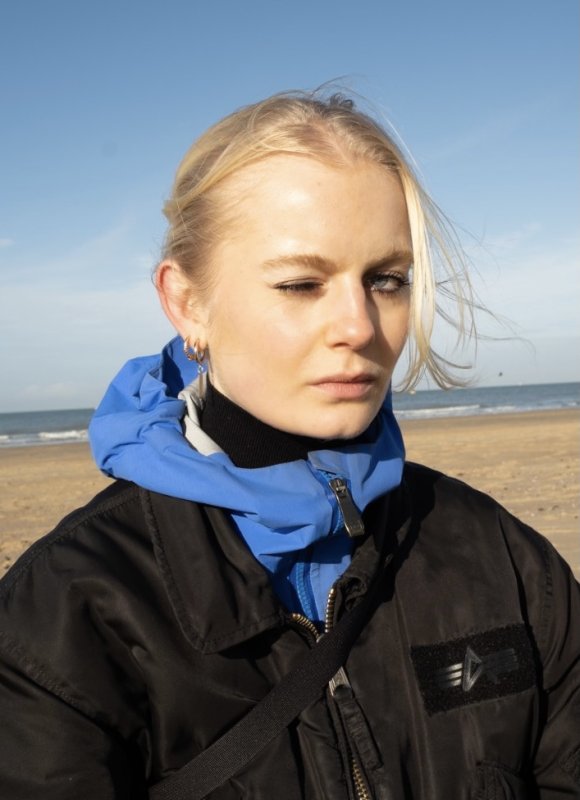
Name: Sóley Ólafsdóttir
Program: danceweb
Year: 2025
Coach: Raja Feather Kelly
Nationality: Iceland
Country: Iceland
Report:
I write reflecting on my summer being spent at the Impulstanz festival in Vienna as a DanceWEB’ber. I don’t know if I can speak of dancing, unless dance is a way to ask, to deeply know, to care and to fantasize of the unforeseen future. I can’t grasp to corner my impression of this DanceWEB journey from a place of simply telling about. Coming home from Vienna, I felt anew, overwhelming my senses and impressions shook me to the core, most importantly, to seeing who I want to be for and with others. DanceWEB really is about my impression of being in this beautiful group. I think that Raja did a wonderful job choosing people to come together. We embraced each other in ways I will keep close to my heart forever.
There were five weeks of madness… sliding between a state of overextended bliss and absolute fatigue… A circus that only exists once.
A group of DanceWEB’ber’s, brought together by mentor sensational, Raja Feather Kelly. From the first letter sent to us, 23.’rd of January 2025, the tone was SET: “Now is your time to get ready, say goodbye to your old self, a new you will be back in August. If you want, if you lean in. If you find your CUNT - your Curious Underdog of Nuance and Understanding.” The first days we were invited to ponder and explore through notions of; Mask, Persona, Clown, Drag and Camp. These notions became an influential force in my navigation through the festival, coping with self-awareness and identity in absurd scenarios, revealing encounters and new-found performative states. A force of fools in the most wise and aware direction of wind. Force in knowing that we can make new meanings. Dancing is meaning-making in a deeply political and campy way (though, we can’t mention that… camp is unaware of itself, so, stay camp, but… shhh…).
“The old world is dying. And the new world struggles to be born. Now is the time of monsters.” (From a remarkable performance at the festival, “Work Body” by Michael Turinsky)
Irony is dead, let the clowns in, cry to the moon and laugh to the stars. Say too much rather than nothing at all. Sometimes we think we want people to be honest until somebody says something so real… It’s easy to put up the Mask and to abstract daily doings of being, then there is an eruption ´BOOM´, there is an ever present war and there is genocide. Our earth is crying to the void. We move aimlessly through the simulation. I am grateful for Angelique Wilkie's wisdom and influence in her workshop, and invite myself and all of us to think about who abstraction really belongs to.
It was absurd to be in Vienna when it started erupting in Iceland at the same time, my experience of sliding universes and perceptions became more exaggerated.
I am influenced by the Somatic Drag workshop with Olympia Bukakis and Maria Scorini, which I participated in wholeheartedly, as Markus the Marketing Man, whilst I was processing the eruptive news coming from home.
Magma is slithering
Norms, or even so, organic stability,
does not exist in the real world.
Stability is a simulation and
the binary perspective is a paper town.
The market
is now a mosquito,
inhabiting the ashes.
Simulation is dead,
the show is over
… a new show must go on …
Our foundation is togetherness and I acknowledge the care and dedication it takes to foster a community. I am very inspired by Raja, and the way he approached the mentorship with the group as a community. Furthermore I appreciate my group of Dancewebber’s, and the way we spoke together about the issues we were facing. I was lucky enough to receive co-funding for my scholarship, upon arriving I soon realized my privileged position in coming so comfortably to the program. It broke my heart to realize that the group was not arriving there equally or with the same structural support. Structures around the co-funding and how the load is distributed between artists needs to be seriously reconsidered!
Until next time, xx Sóley
****2025 Cohort Statement ****
As participants in DanceWEB, we encountered both the generosity and the structural challenges of the program. DanceWEB used to be known as a full scholarship programme. Today, the system requires that artists secure funding of 2,500 euros through the countries they live in, which makes it possible for us to come here. This model may have worked for a long time, but it now tends to benefit a select number of artists from wealthier, particularly Western European, countries with strong economies and a supportive attitude toward the arts. Artists from other regions, who lack such institutional structures, are often left to find their own means to arrive here. Beyond the co-funding fee itself, there are also visa, travel, and living costs to manage.
Many participants did not receive any state or private financial support to attend. In fact, 12 people paid from their own pockets a total of 21,435 euros. Some went into debt, some borrowed from friends and family, some relied on savings or crowdfunding. Others were given last-minute ultimatums to pay or lose their place. These are not isolated cases, they reflect a larger imbalance in access and opportunity.
A core strength of this festival is its international scope: it brings together artists from all over the world. This diversity is part of what defines ImPulsTanz, part of what makes it vibrant and unique. Yet, the artists who create this very diversity are often the ones who bear the greatest financial burden to be here. We do not all arrive equally.
This is not a personal grievance but a structural issue; one that disproportionately affects racialized and precarious artists. Everyone in this field is impacted by shifting funding systems and political uncertainty, but these inequalities are felt unevenly. As many cohorts before us have also observed, these concerns have been raised repeatedly over the years without sufficient structural response.
We therefore call on ImPulsTanz to publicly acknowledge these disparities and to take concrete steps toward addressing them. This includes developing a transparent and equitable funding model, creating dedicated support for artists without institutional backing, and ensuring that the program’s commitment to internationality is matched by genuine accessibility.
We urge the festival to engage directly with current and former DanceWEB participants in this process not only as beneficiaries, but as collaborators with valuable insight and lived experience. The sustainability and integrity of the program depend on it.
We are asking ImPulsTanz to adapt, respond, and act now in alignment with the values it promotes.
Anđela Žugić

Name: Anđela Žugić
Program: danceweb
Year: 2025
Coach: Raja Feather Kelly
Nationality: Serbia
Country: Serbia
Report:
DanceWEB 2025 Report
Words alone cannot express all the gratitude I feel for the people who made it possible for me to experience DanceWEB, and for everyone I met who made this journey truly special. There is so much to be thankful for.
“DanceWEB is an incredible and rich experience,” people who had already attended told me, as I gathered stories and advice while preparing myself for five weeks of intensive dance. I knew I wanted to make the most of it, trying to stay focused and absorb everything, even knowing it might not be possible to take it all in.
It is a place full of diverse workshops with world-class teachers, where one can explore innovative dance practices, witness performances by both emerging choreographers and international companies, and connect with people of different nationalities, cultures, and backgrounds, all in one place. I knew it would be life-changing, and it truly was.
On the very first day, when we met our mentor, the incredible Raja Feather Kelly, he reminded us that we all come with goals, conscious or unconscious, but that our constant reflection should be on our personas: Who am I? What do I want? How do I present myself in the different roles of my life? These were questions I carried with me. My main goal stayed the same throughout, but my desires and needs evolved week by week, bringing some answers and opening new questions.
Almost two months later, I am still processing my impressions, but what I clearly understand is that the questions never stop. The desire to continuously discover more about myself and the world, both in artistic and philosophical ways, is becoming stronger and more present. I also learned the importance of staying playful, open to discovery, and embracing fear by giving priority to the beauty found in the unknown.
The support, care, and generosity within the DanceWEB community, together with Raja’s guidance on being present, gentle with ourselves, and attentive to one another, as well as the support and understanding I received from people in the ATLAS program and other ImPulsTanz participants, was truly priceless. They inspired me to stay focused and aware, to be clear about my intentions, gentle with myself in moments of missed opportunities, conscious of my needs, mindful of time slipping away, and resilient in coping with the inevitable fatigue.
DanceWEB had a profound impact on me, on the decisions I want to make, the steps I want to take, and the goals I want to set. It gave me new energy and motivation for work that has been waiting on the side, as well as for fresh projects. The workshops of Angelique Willkie, Jonathan Burrows, Vasko Nasonov, Isabel Lewis, Jozef Frucek and Linda Kapetanea (Shifting Walls), and Raja Feather Kelly and Marie Kaae (Club Dance & choreography Beyond 8’s) left especially strong impact on me. Every workshop I attended, or even just observed, was valuable. Some were transformative, some taught me small but important lessons, and all of them contributed to my growth. I am deeply grateful for the knowledge I received.
Now, inspiration, creativity, and ideas are here—it’s about connecting the “pieces” through networking and, especially, financial support, which is often challenging in my region. Still, I want to remain here, to bring back everything I’ve seen, felt, and learned, and to share it. I want to be one of those who offer advice and guidance to new DanceWEB participants, and to ensure that the connections made at DanceWEB remain alive and continue to grow and flourish.